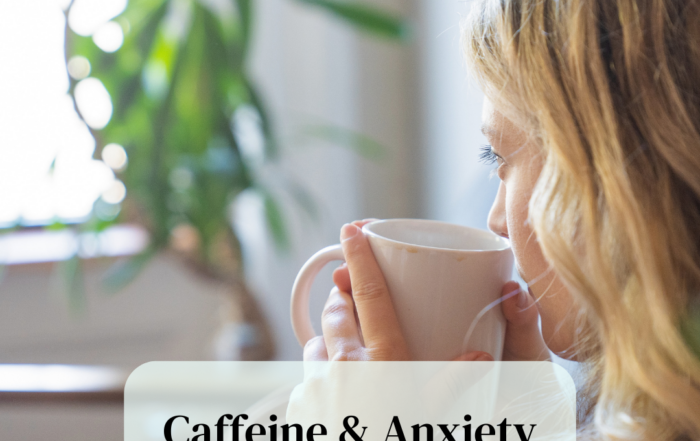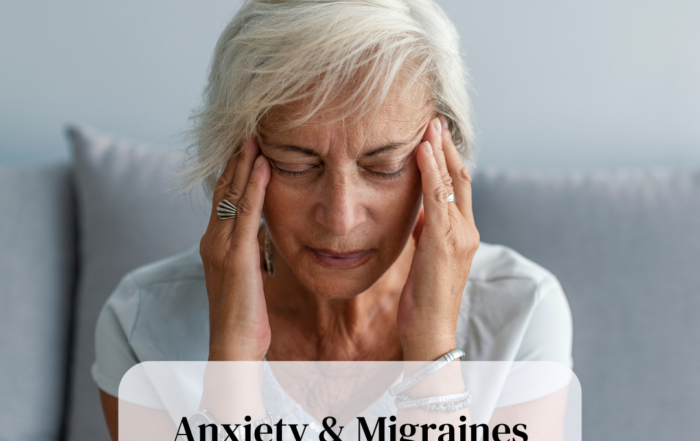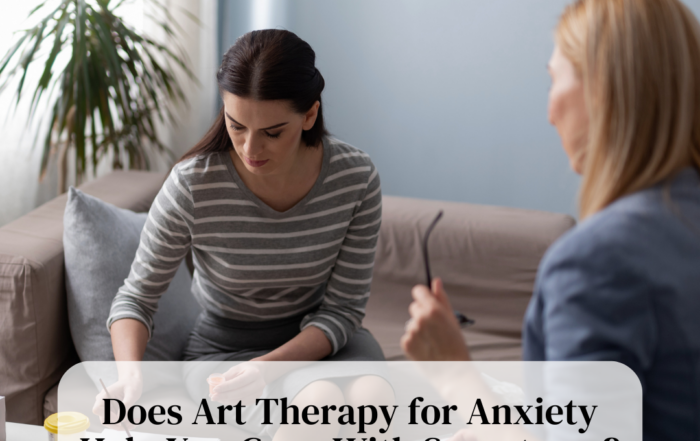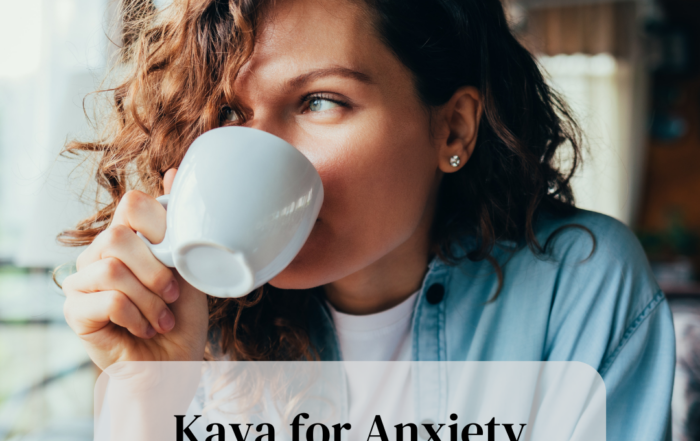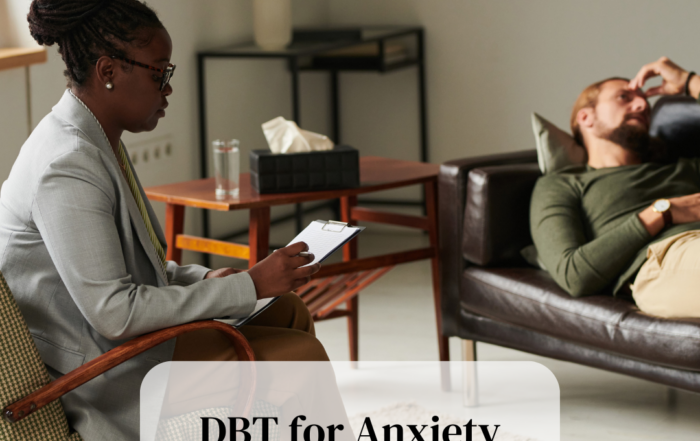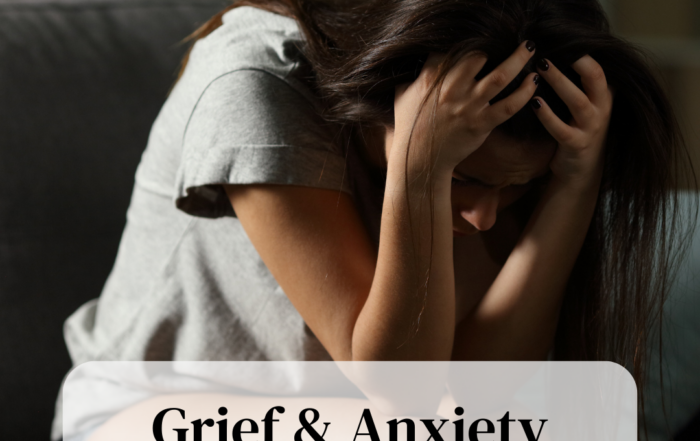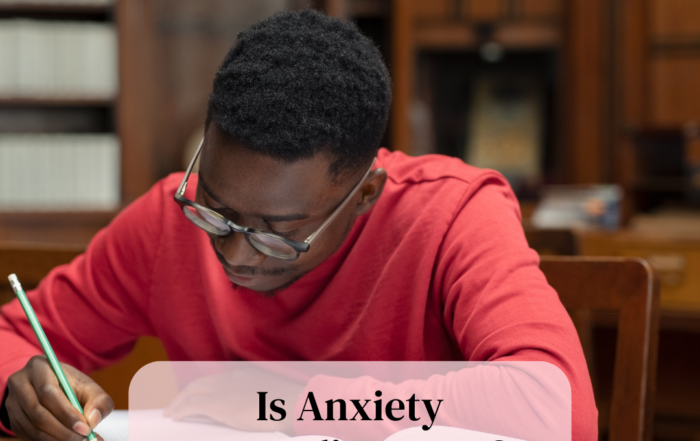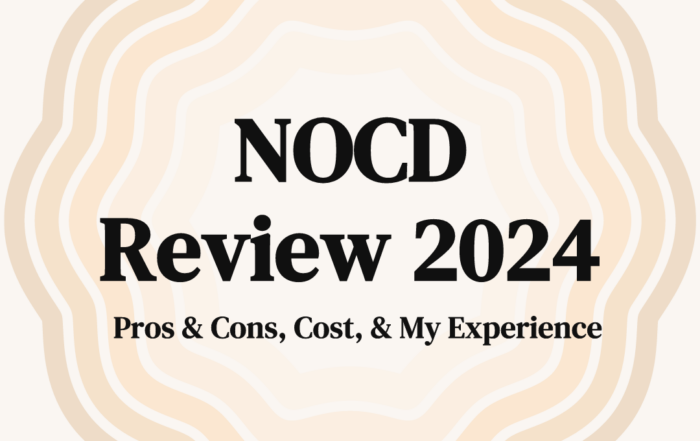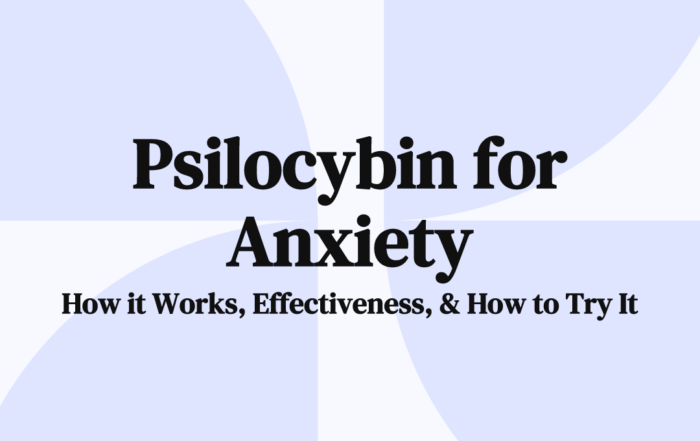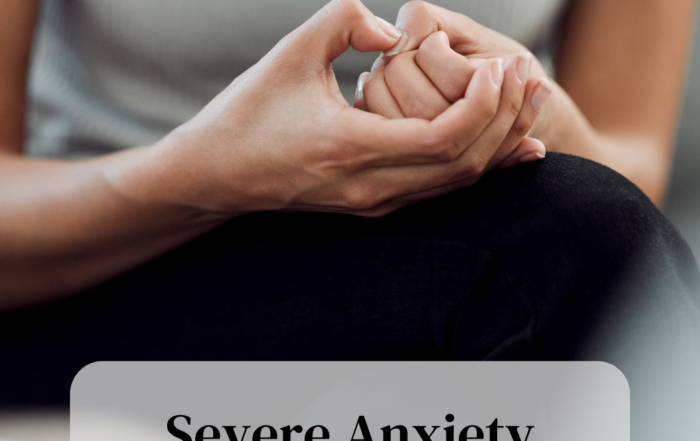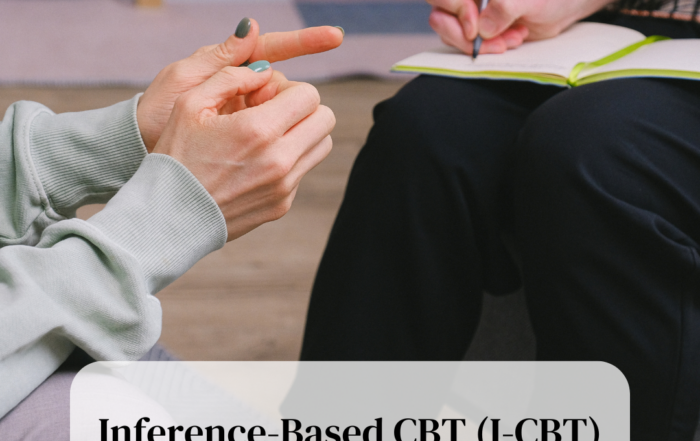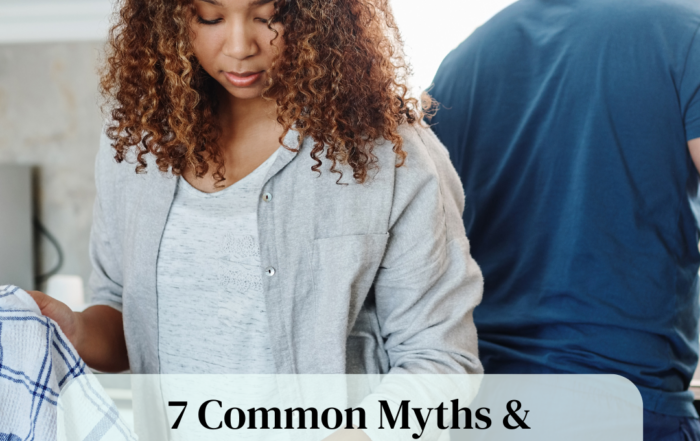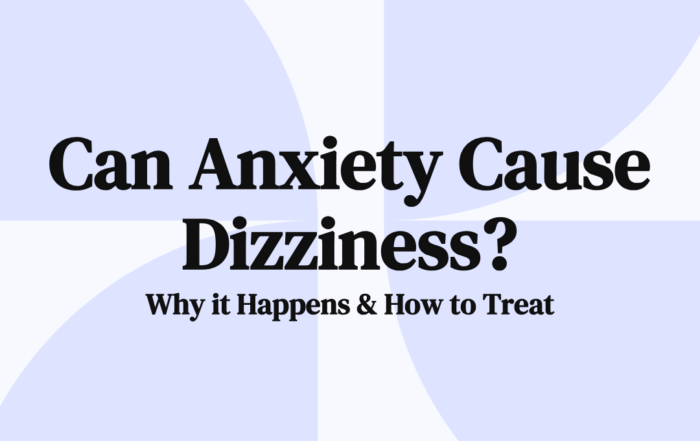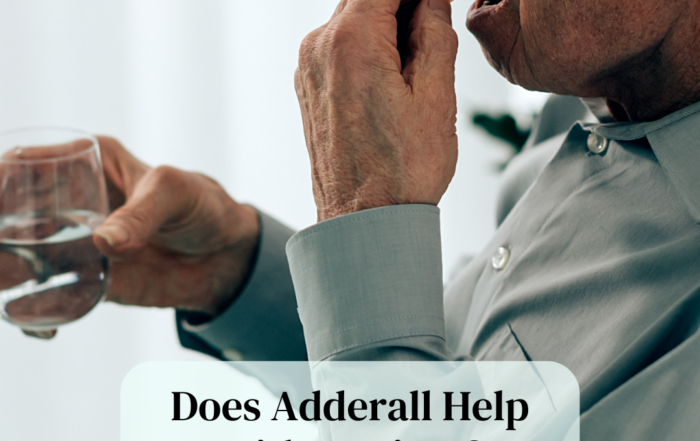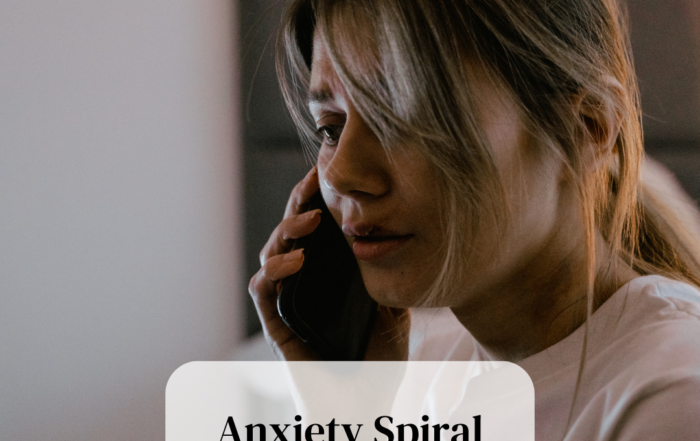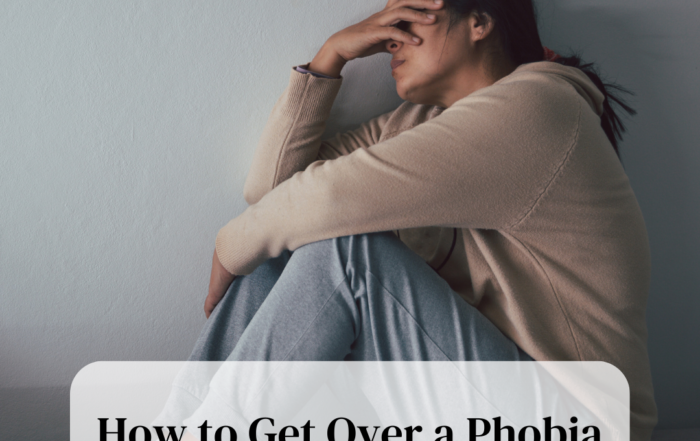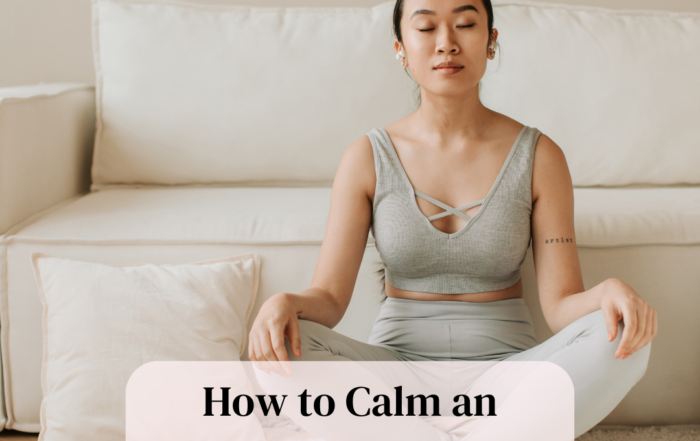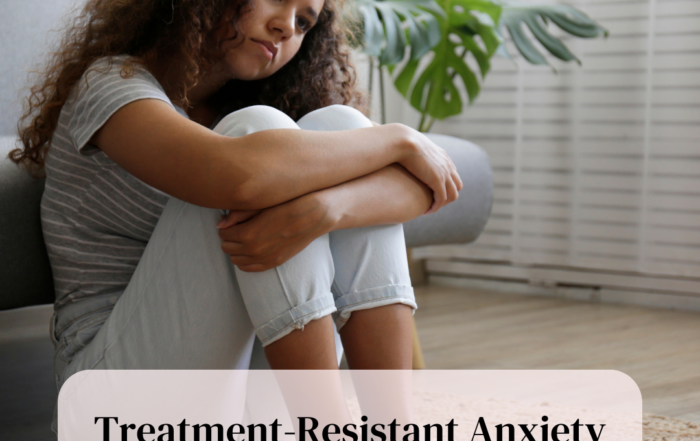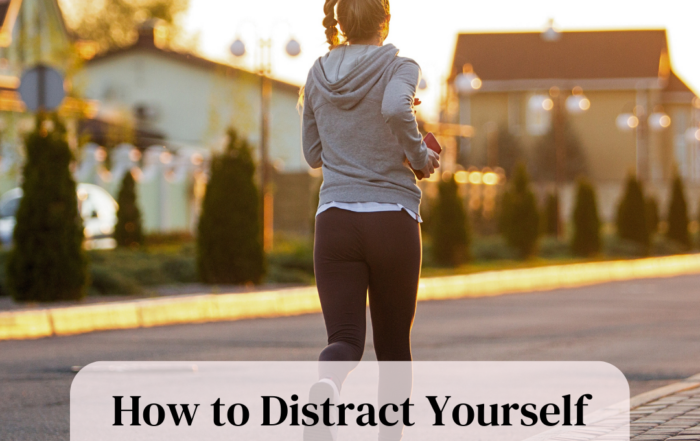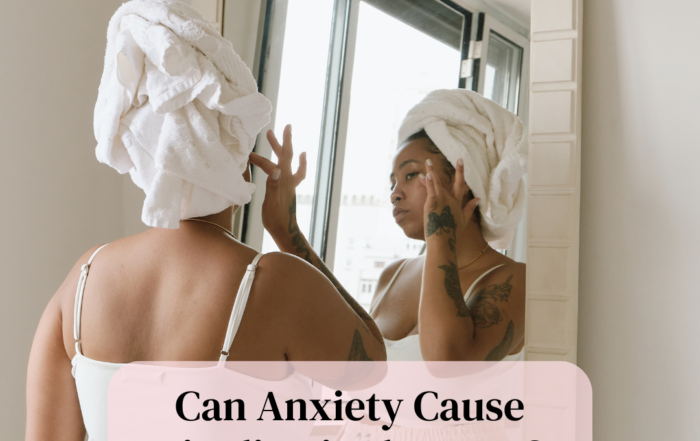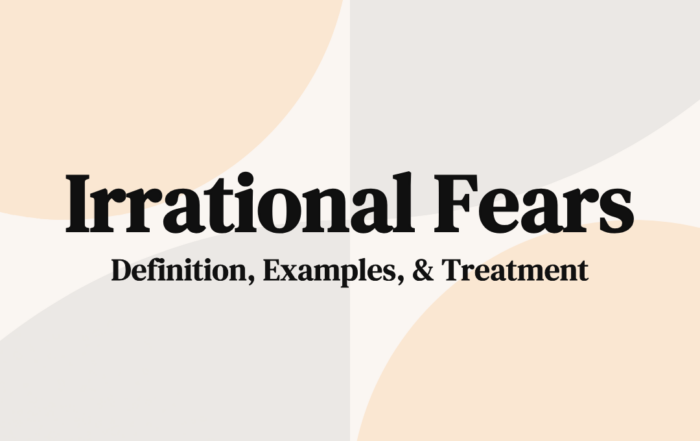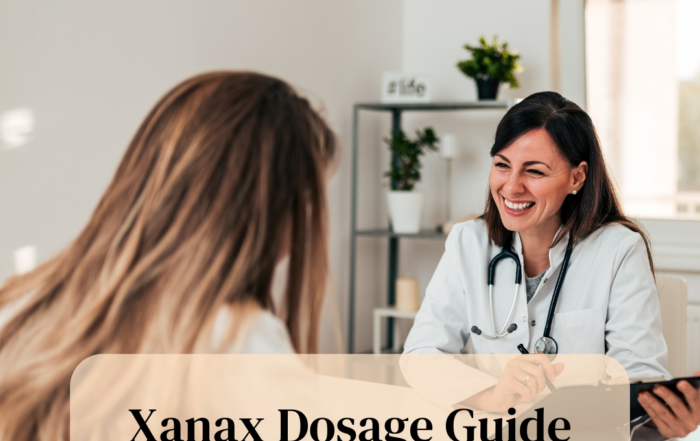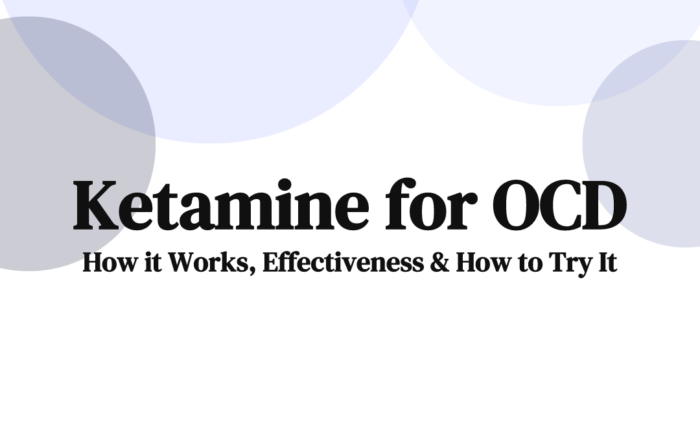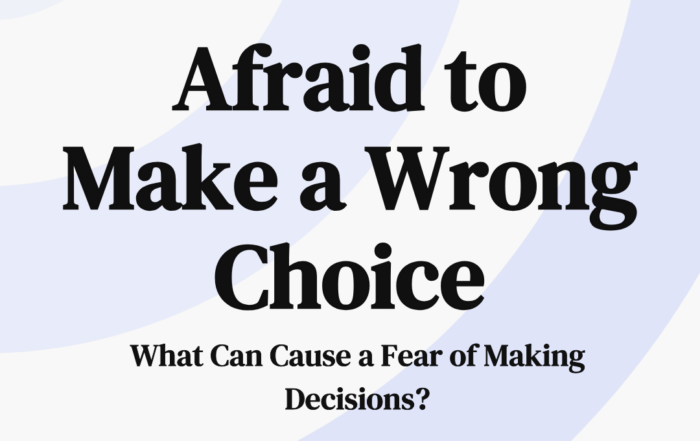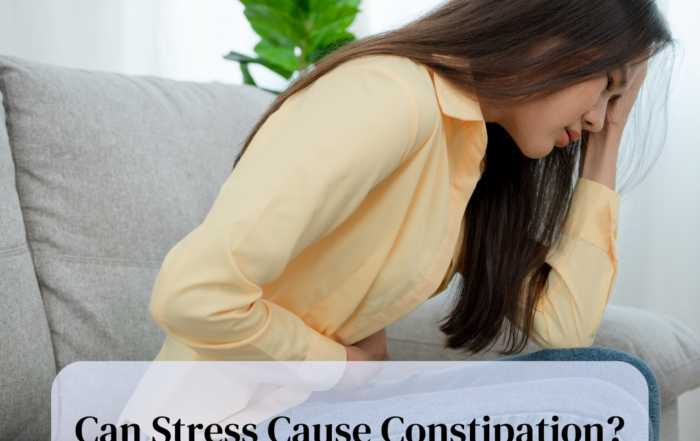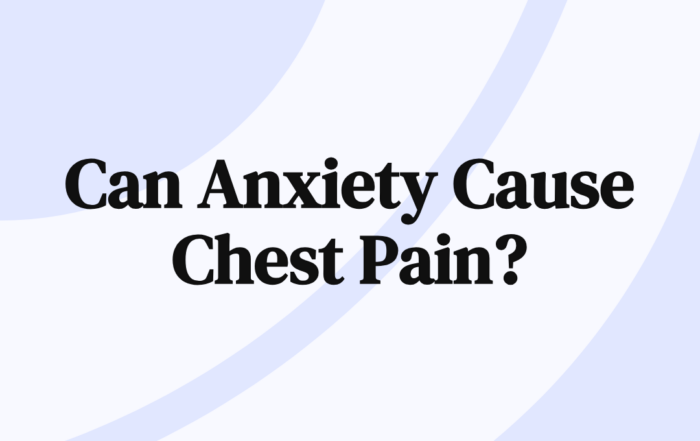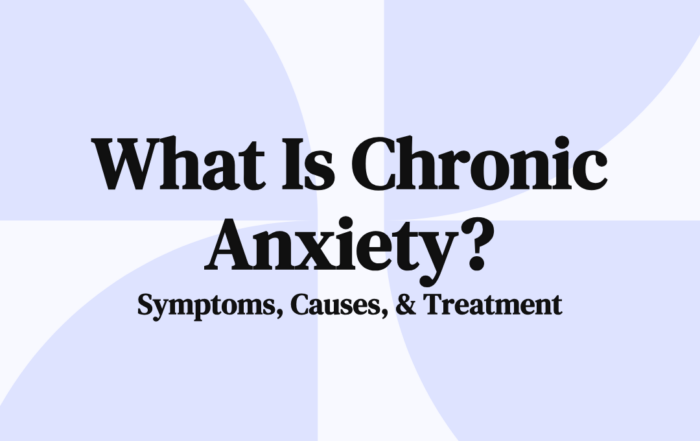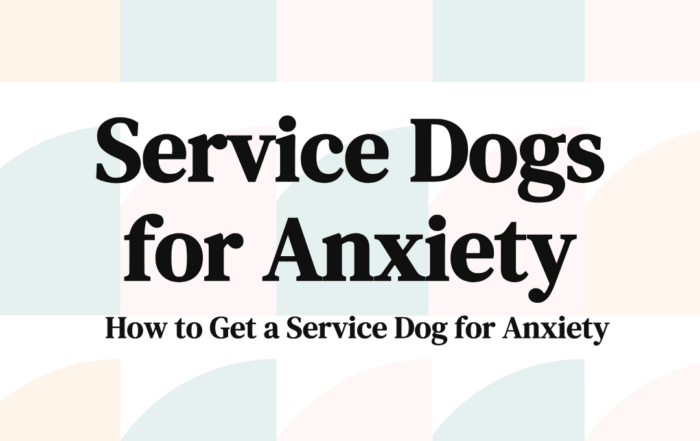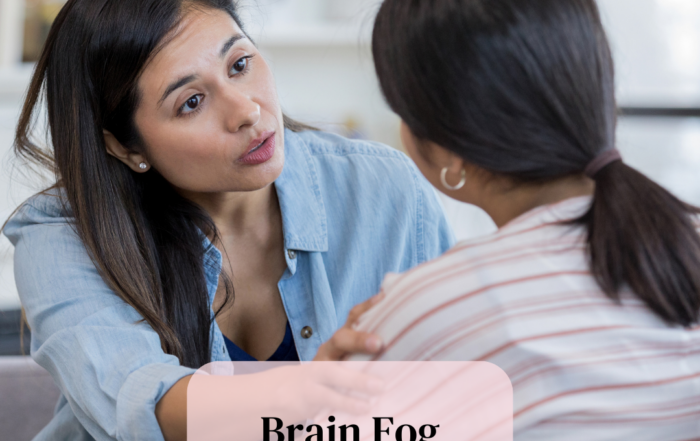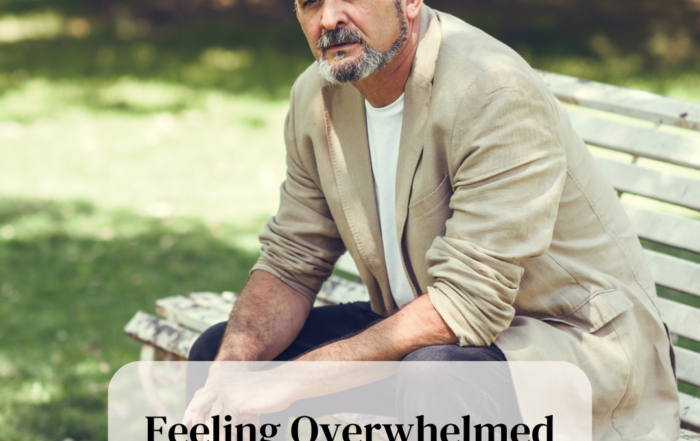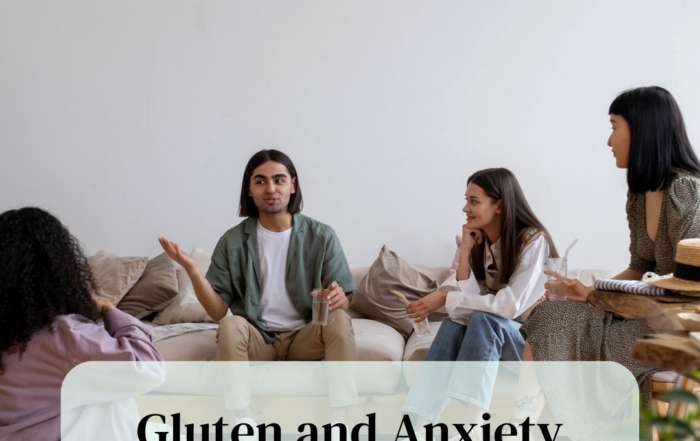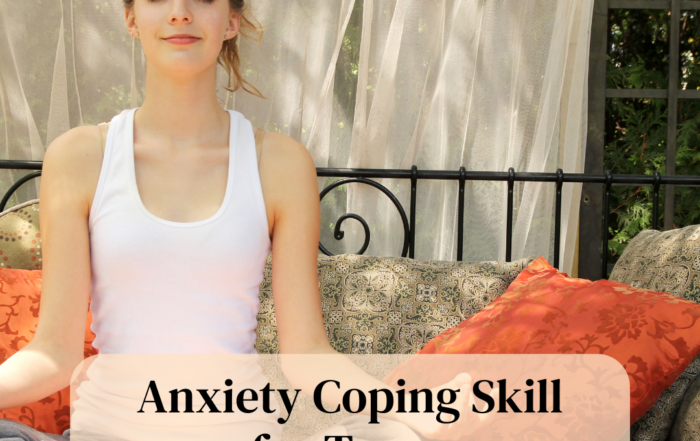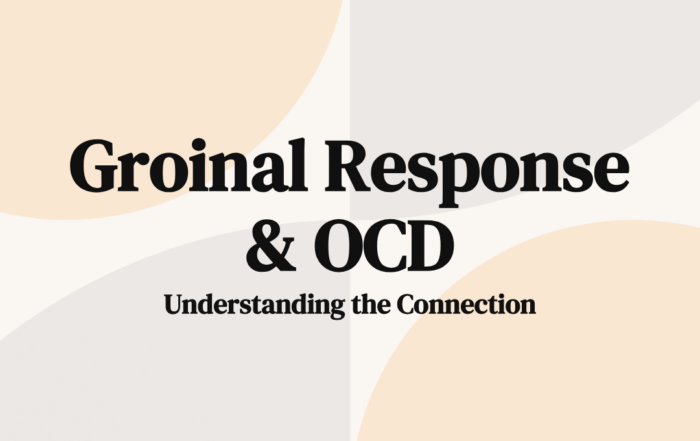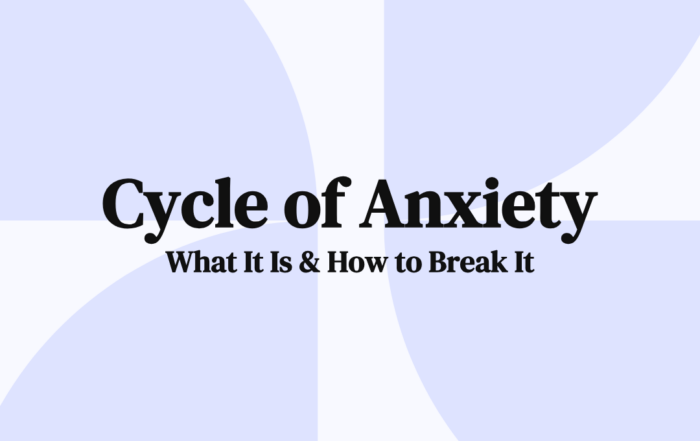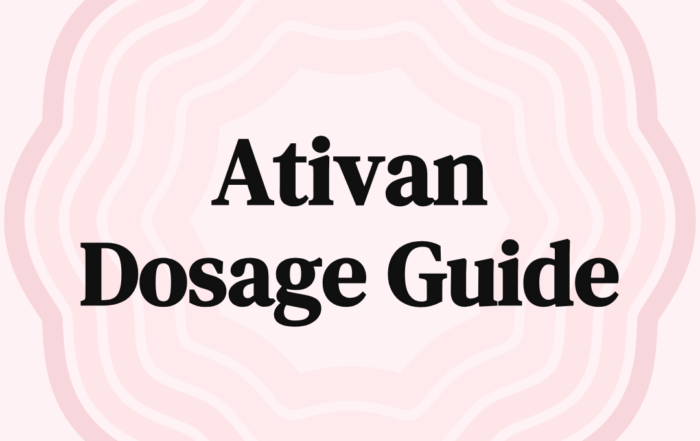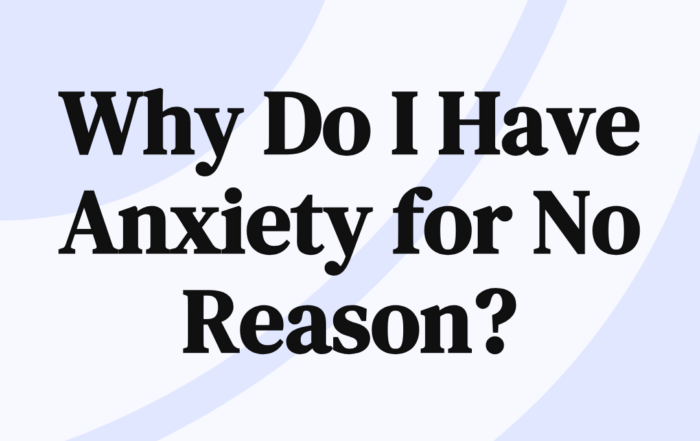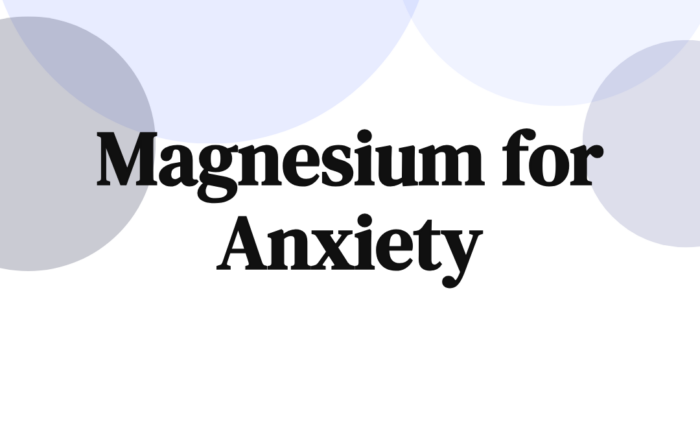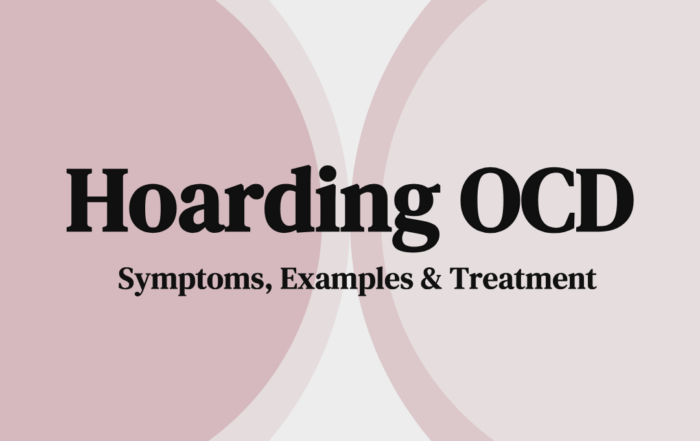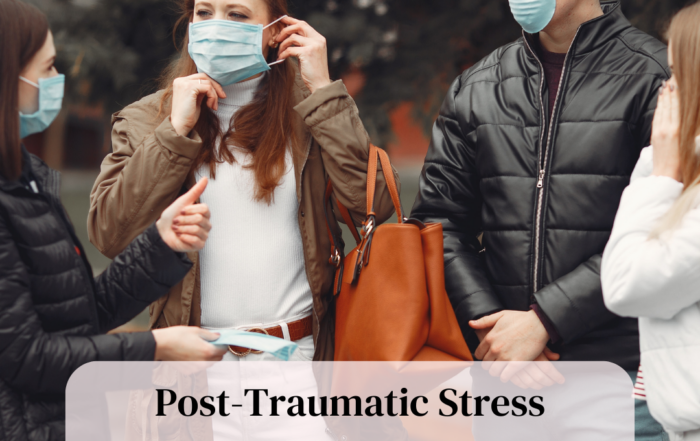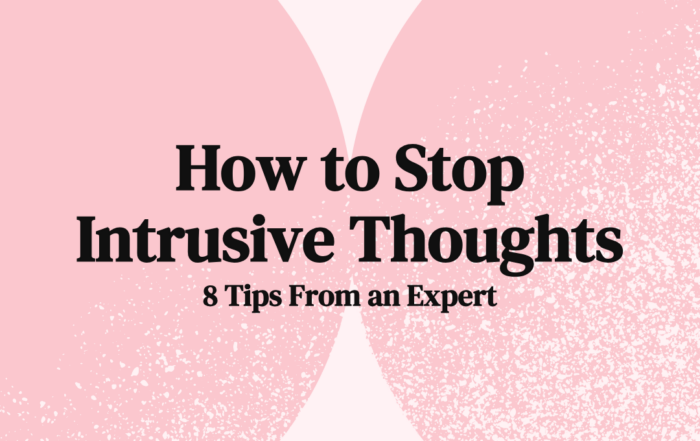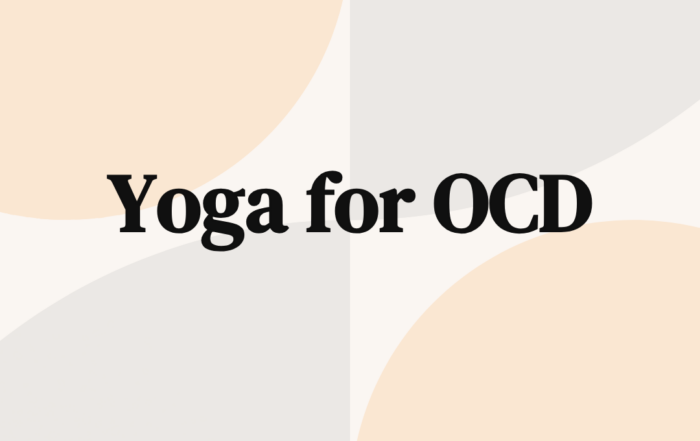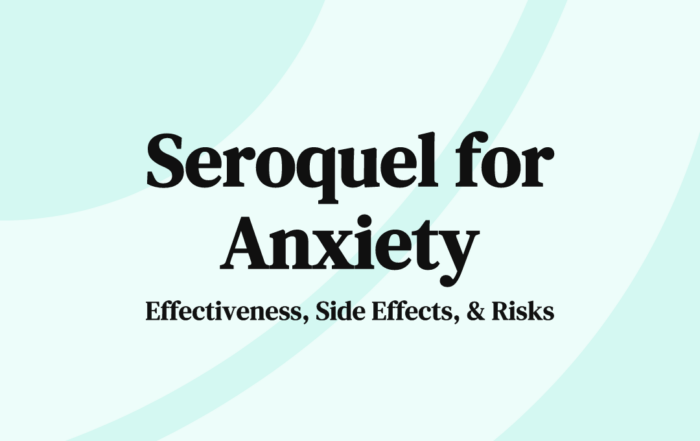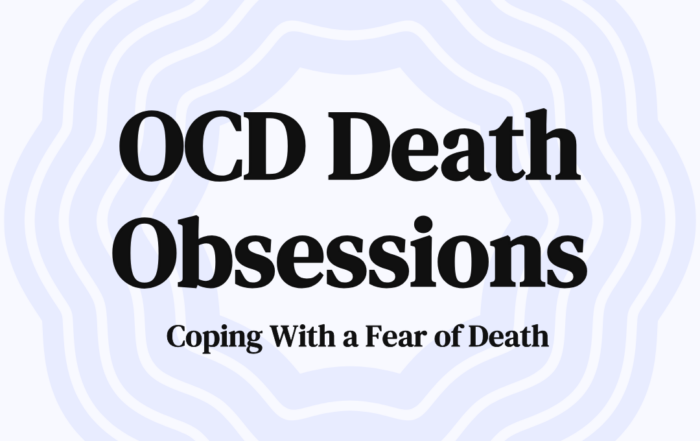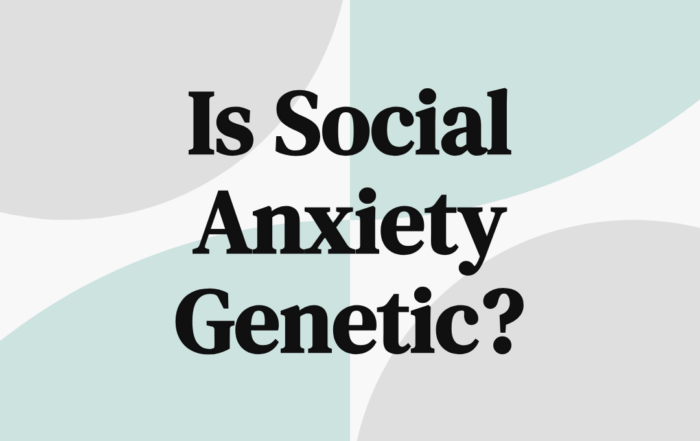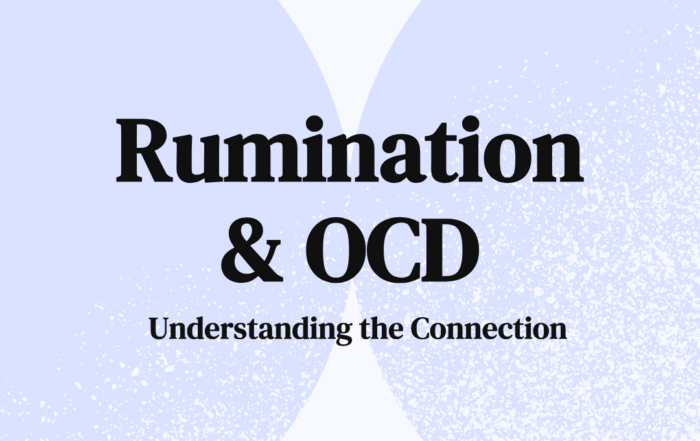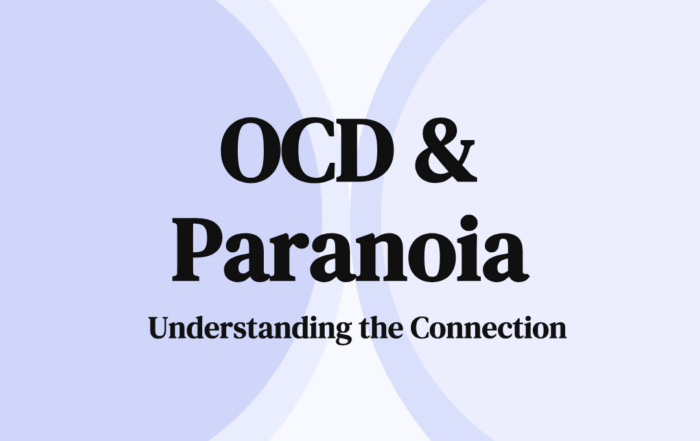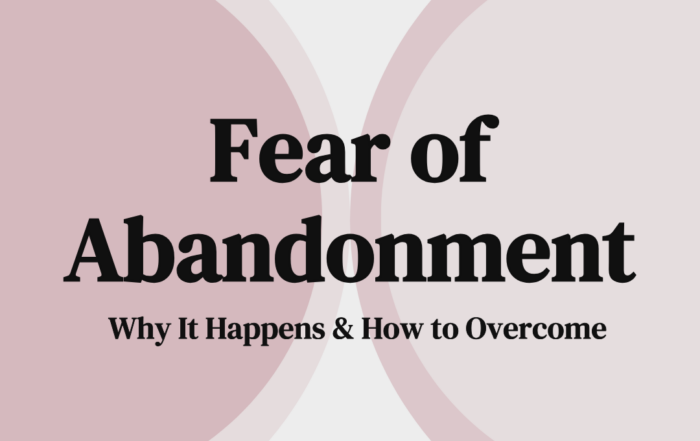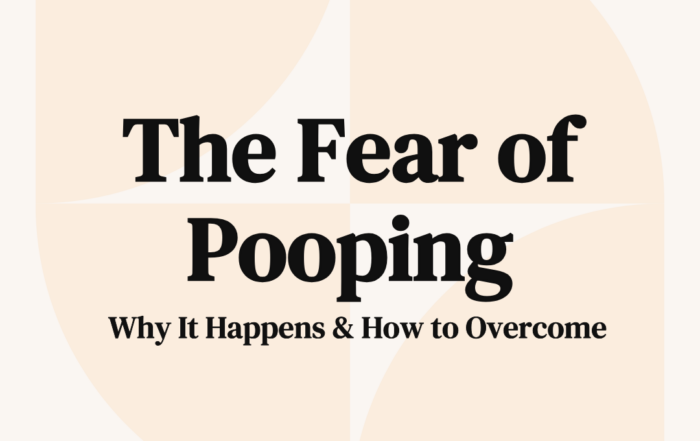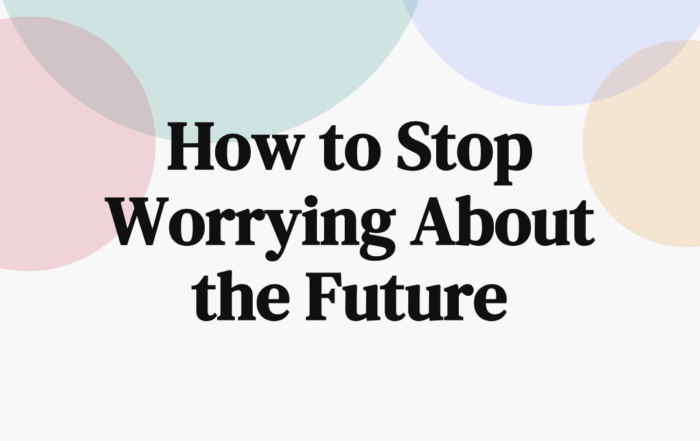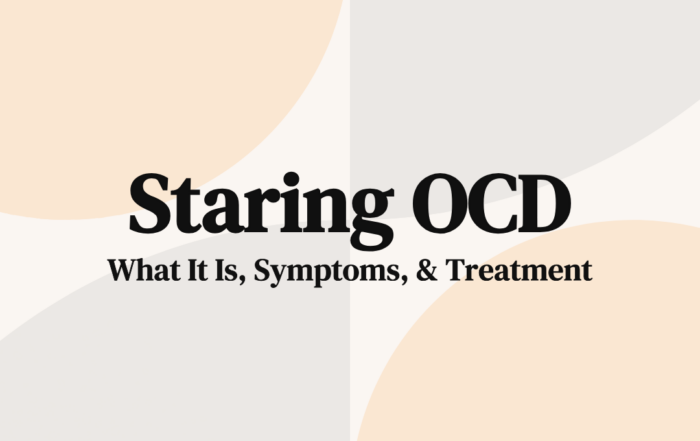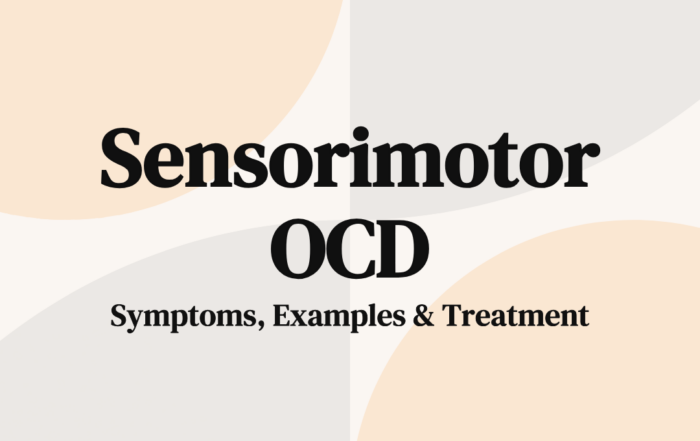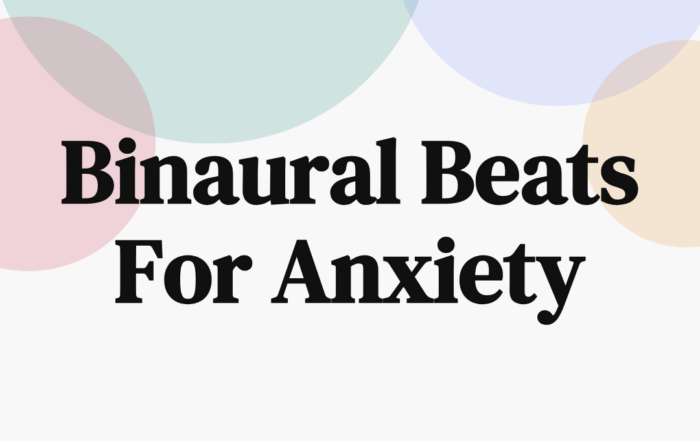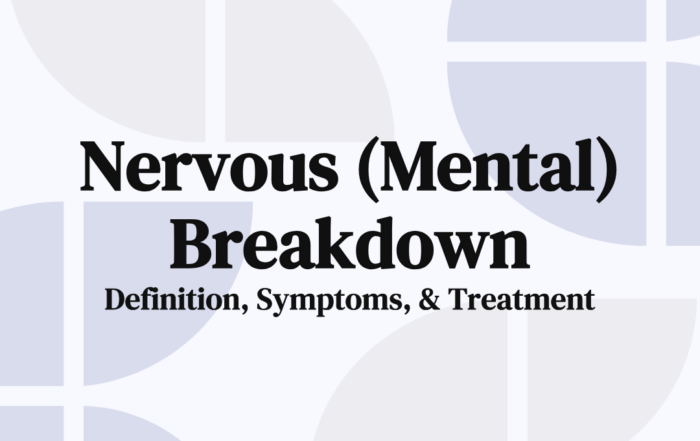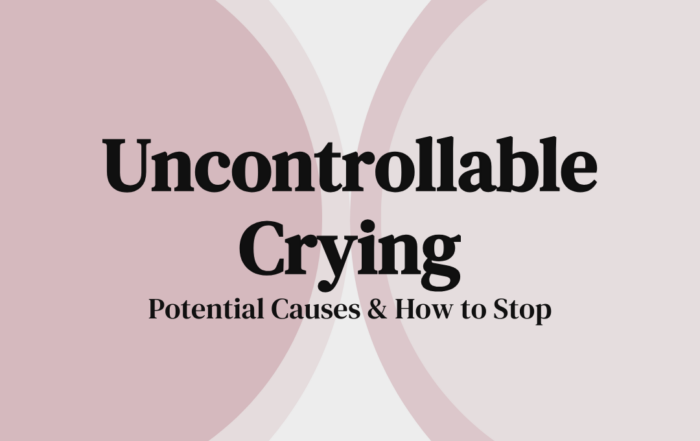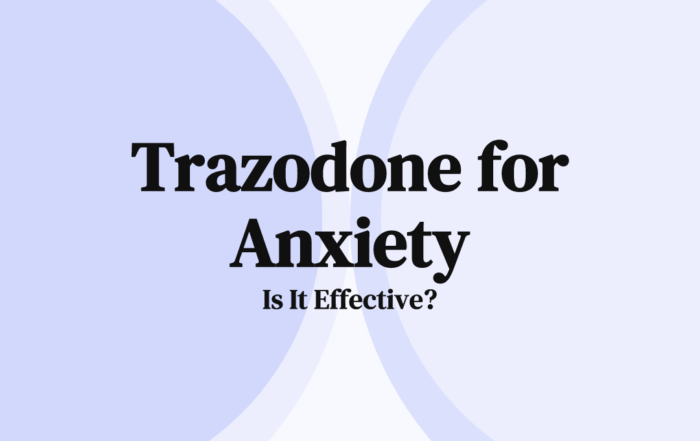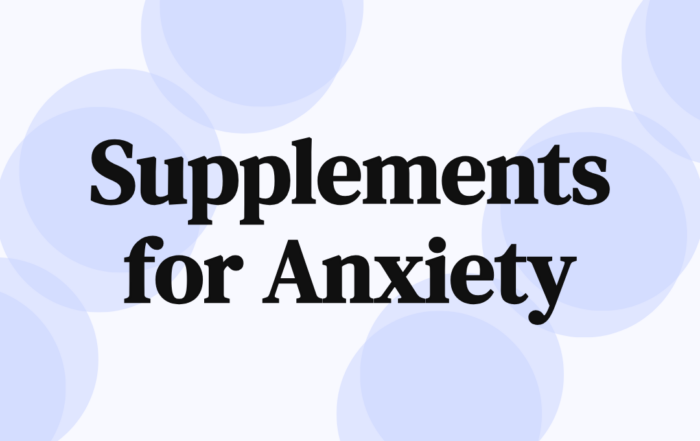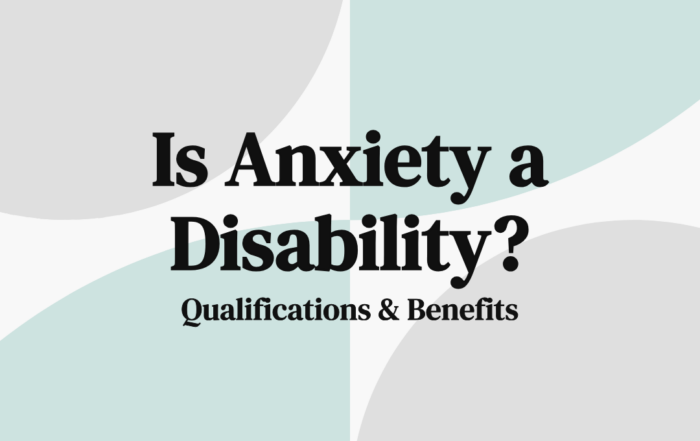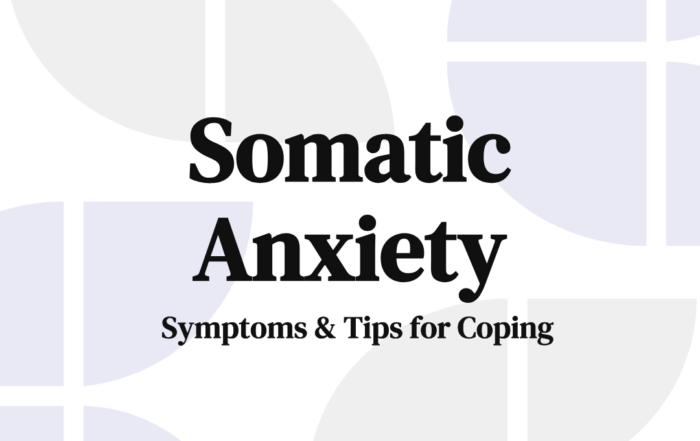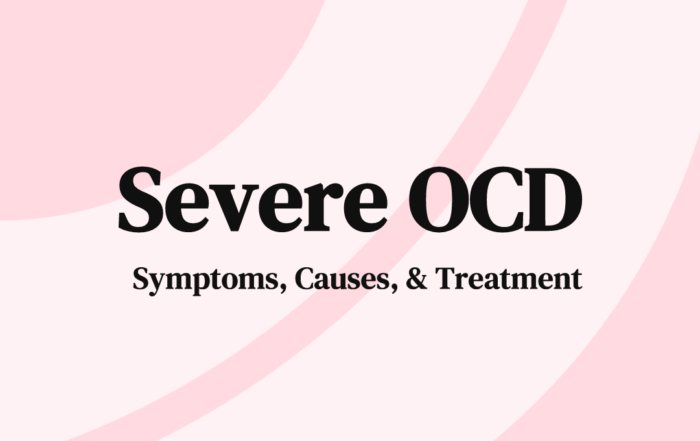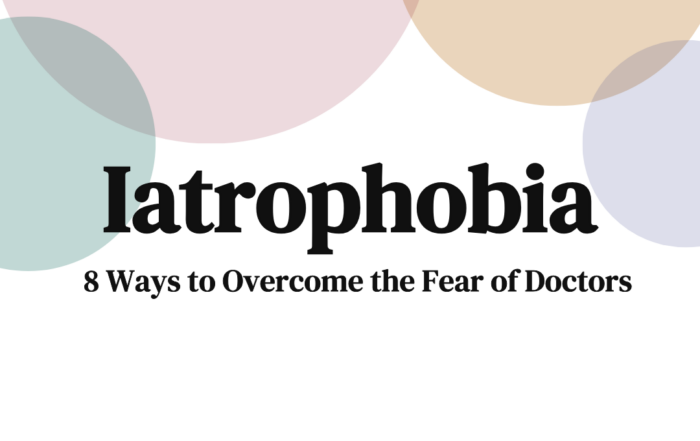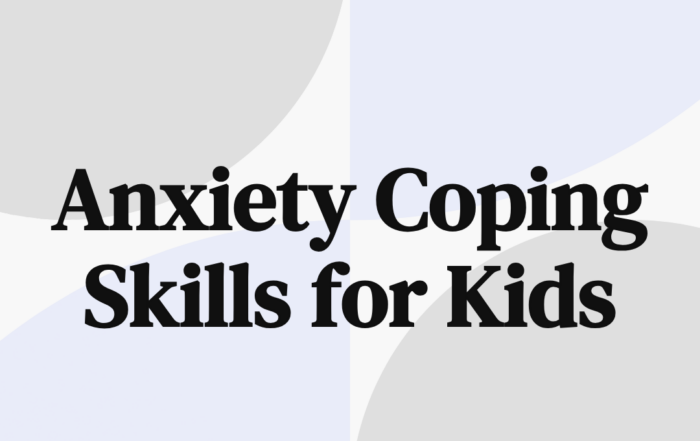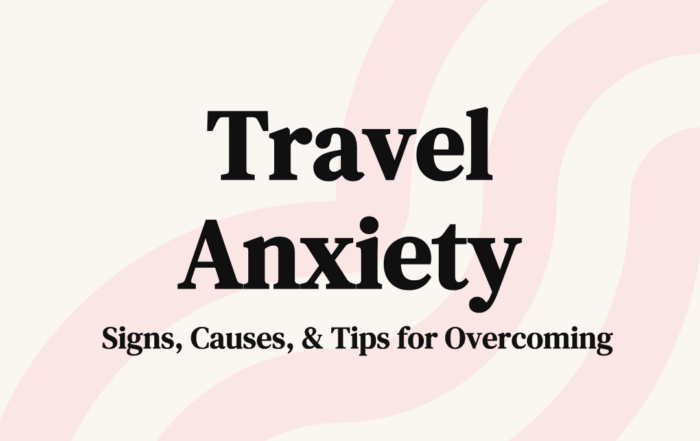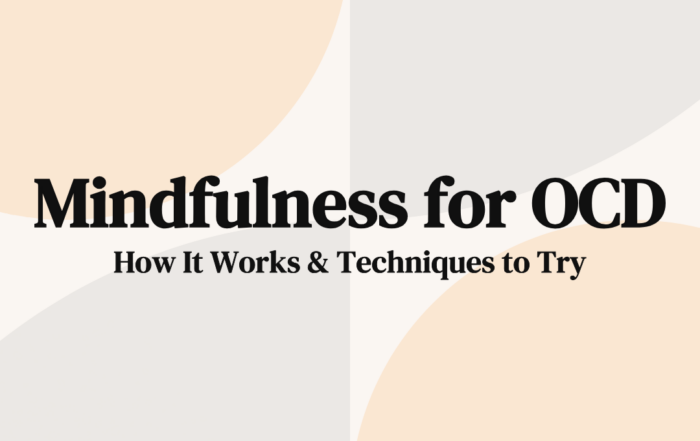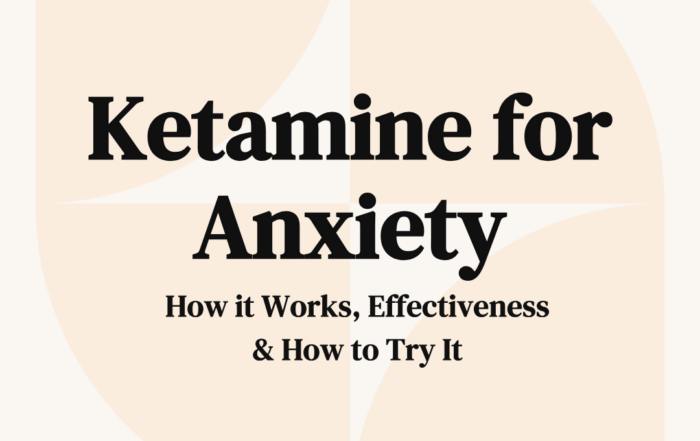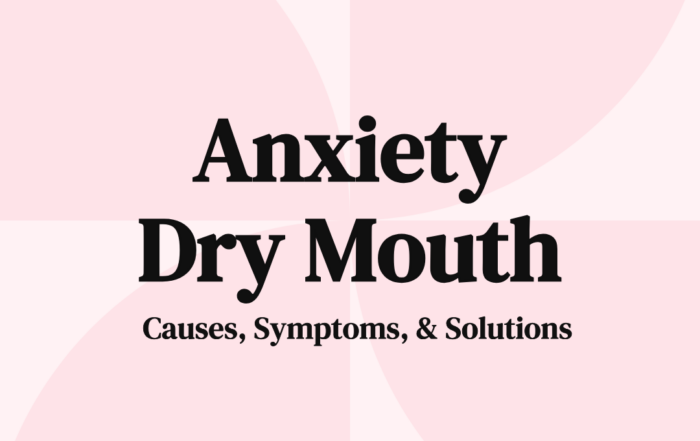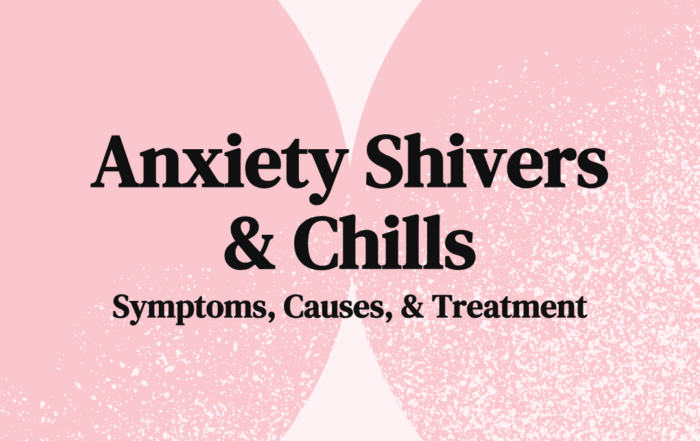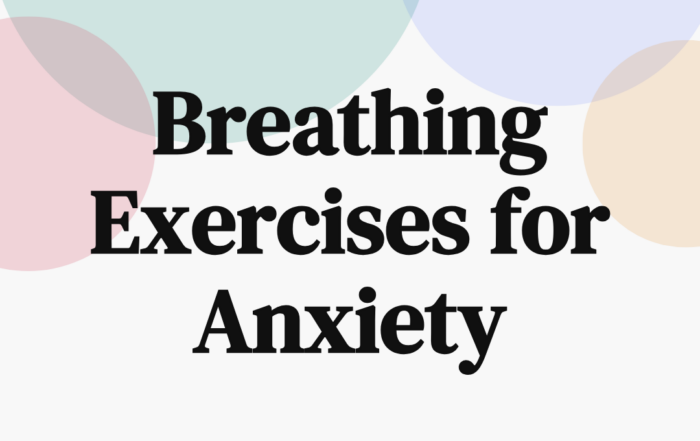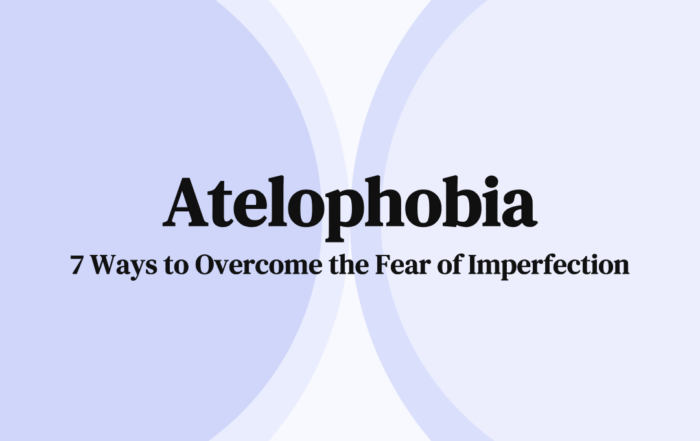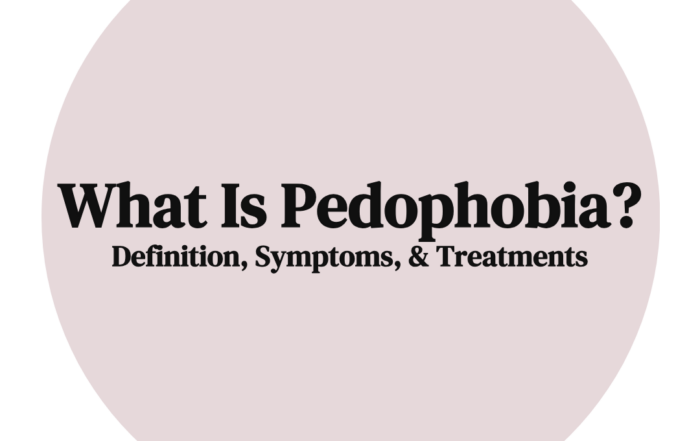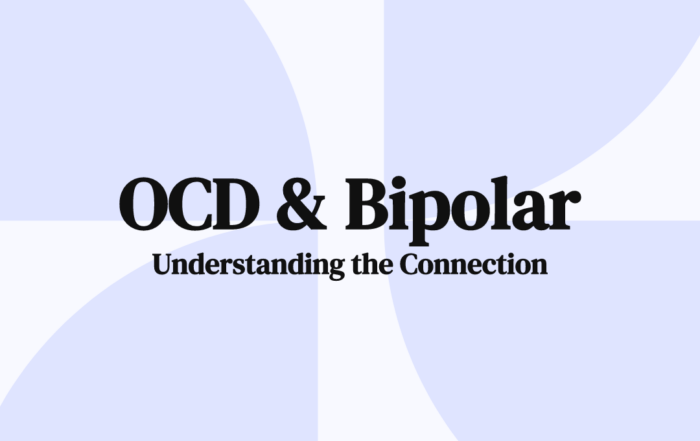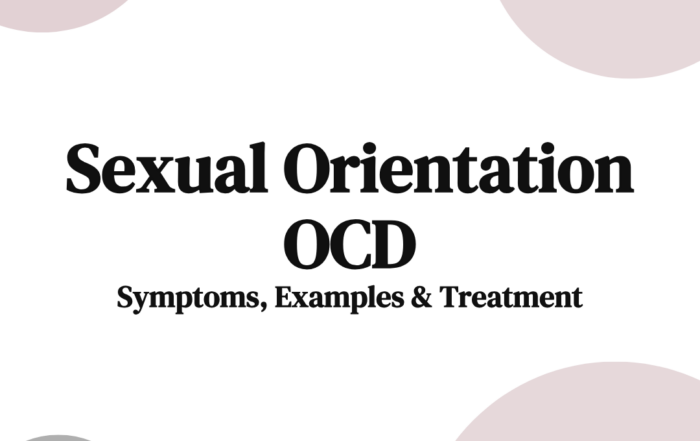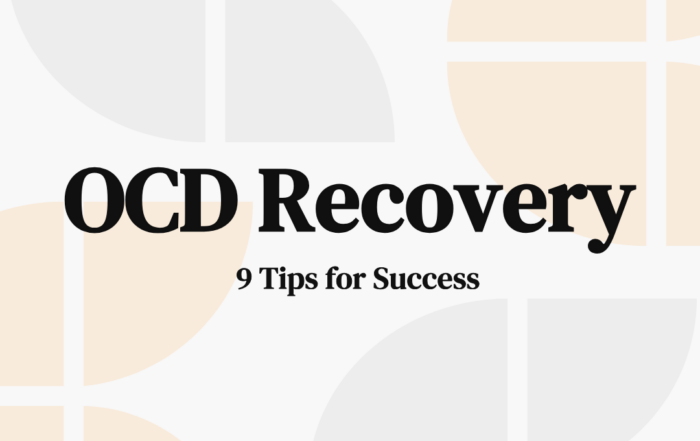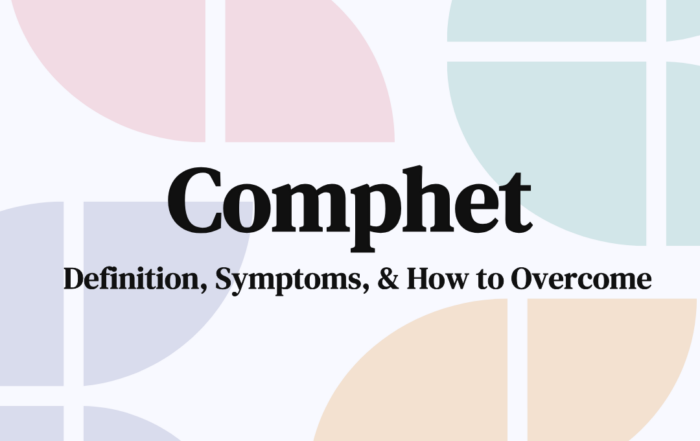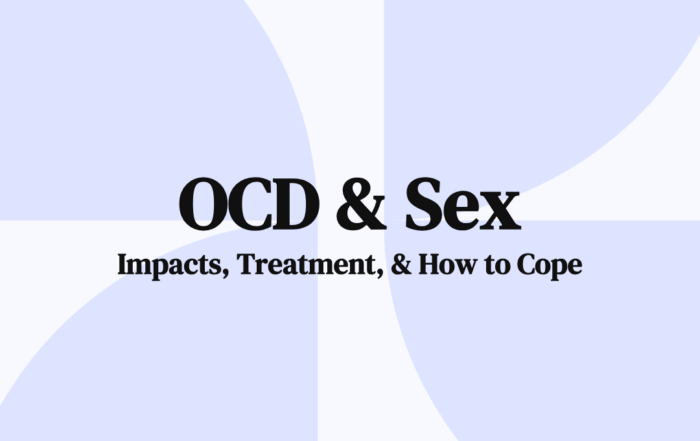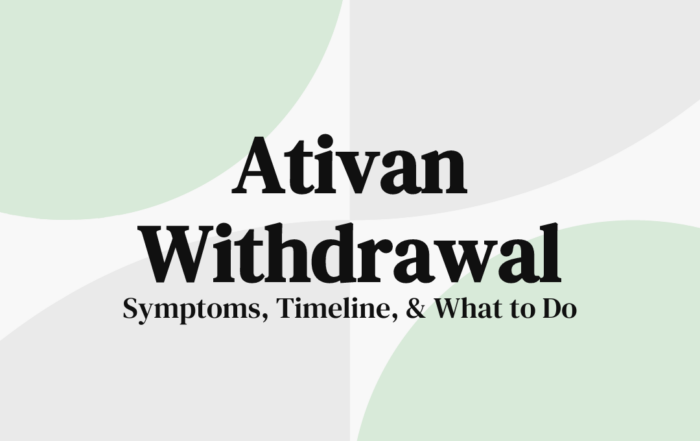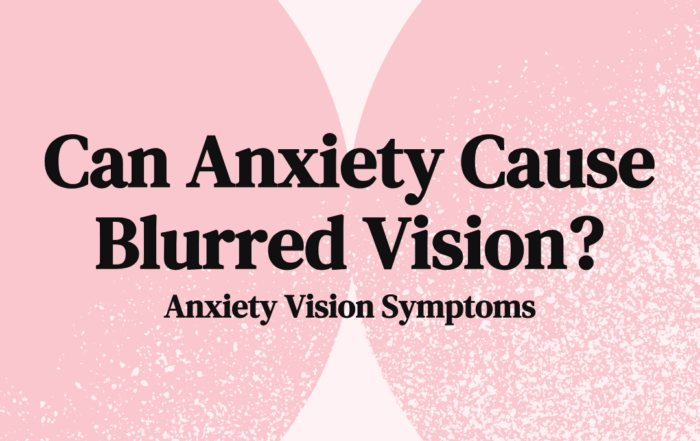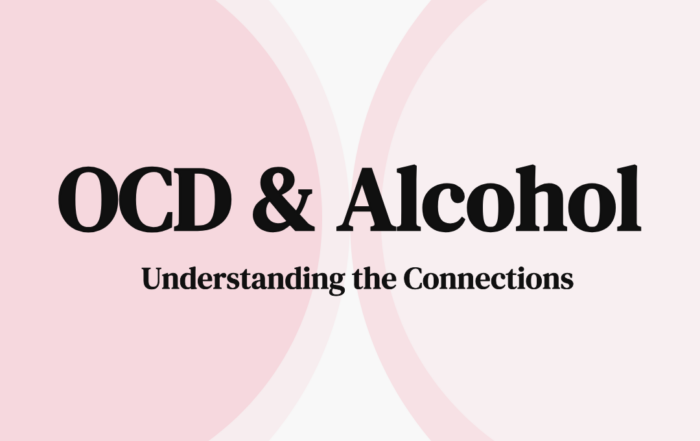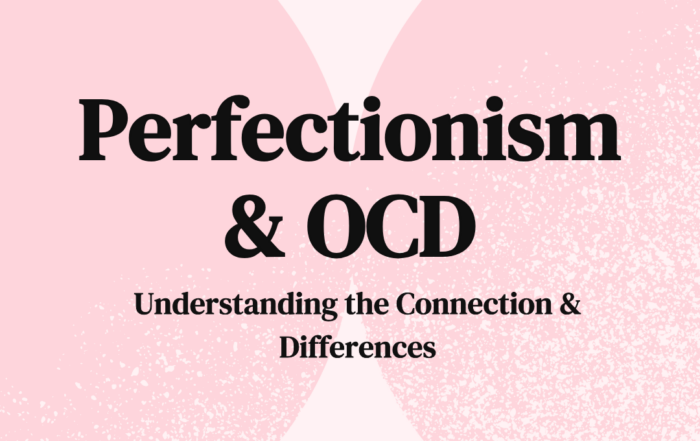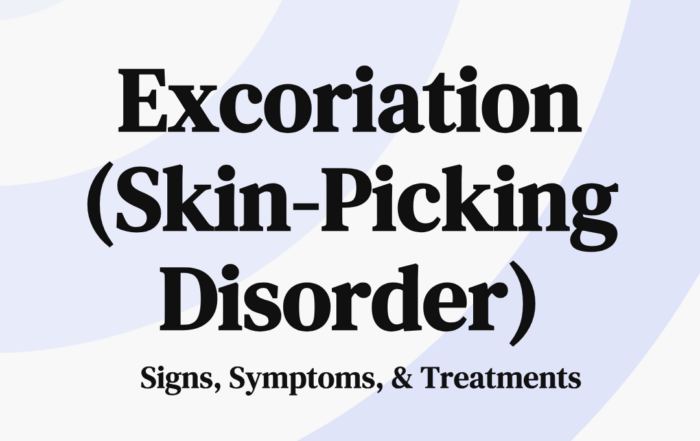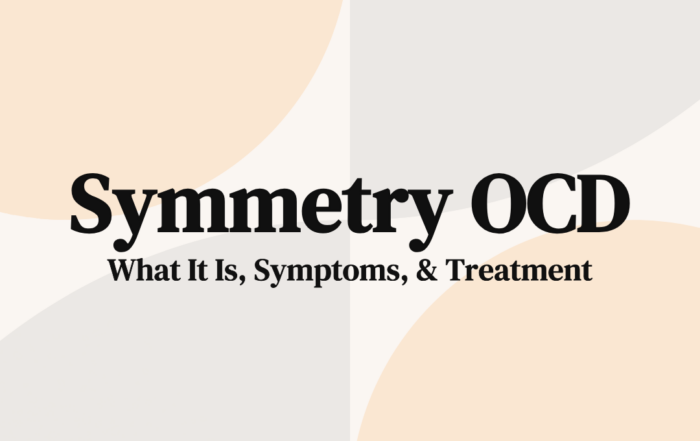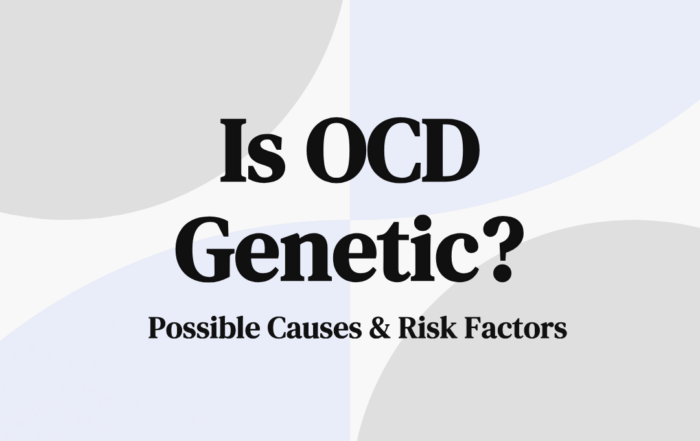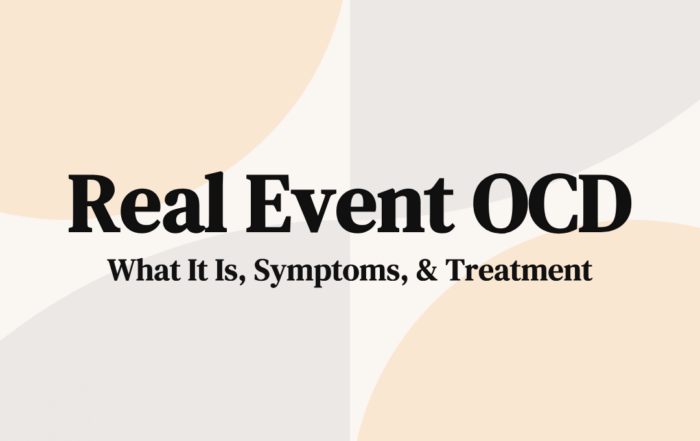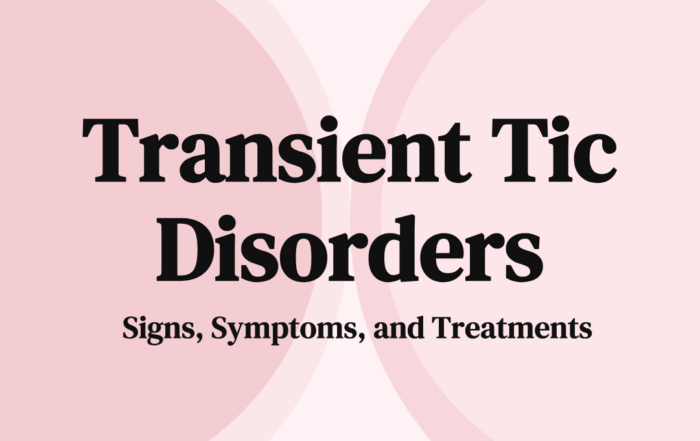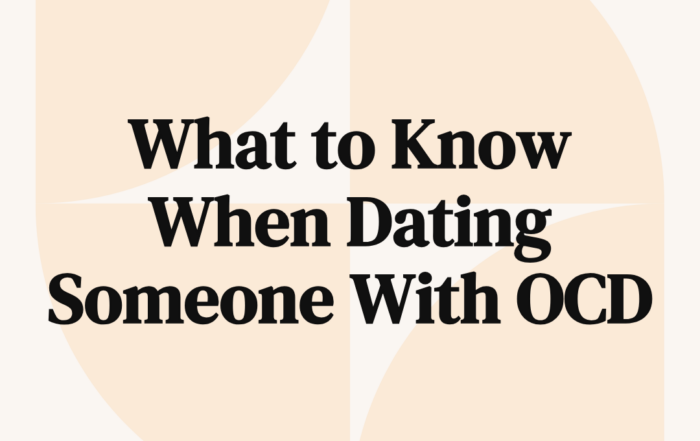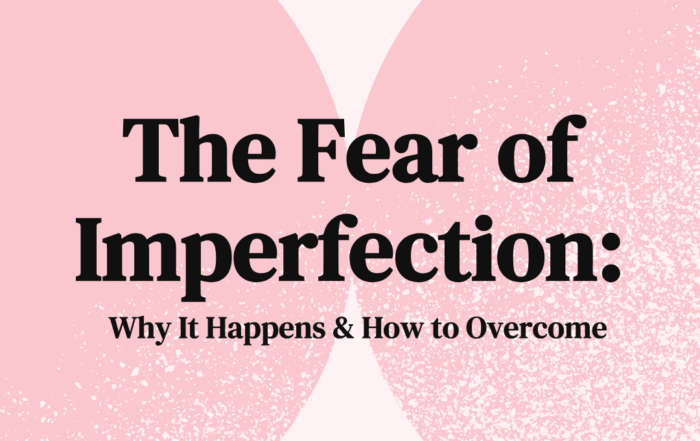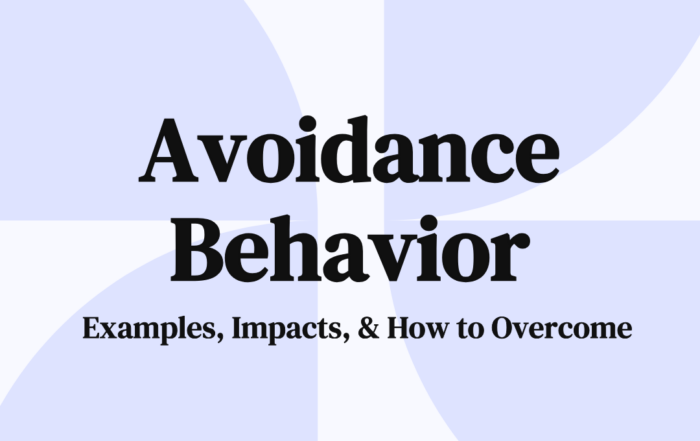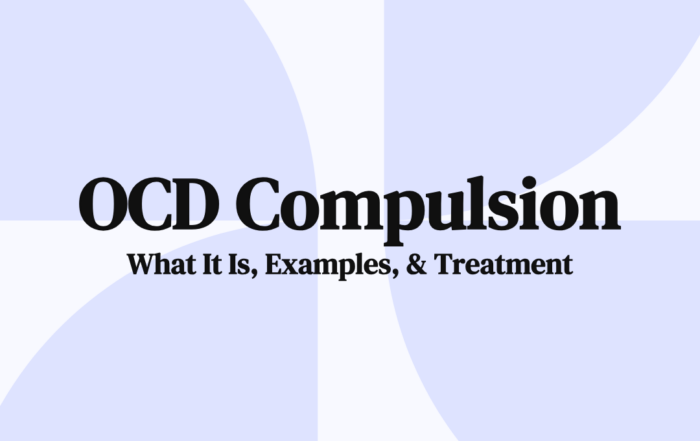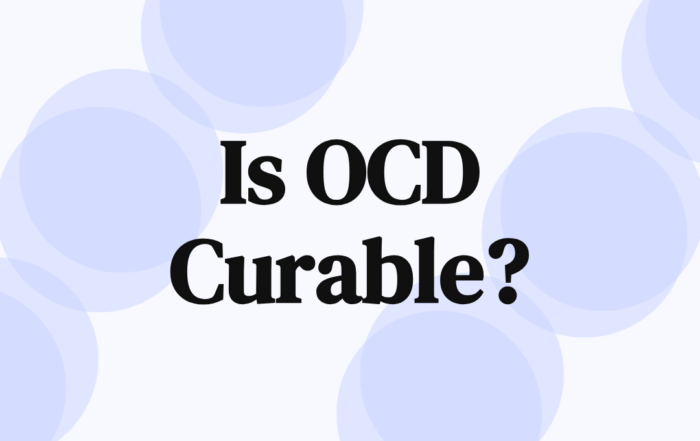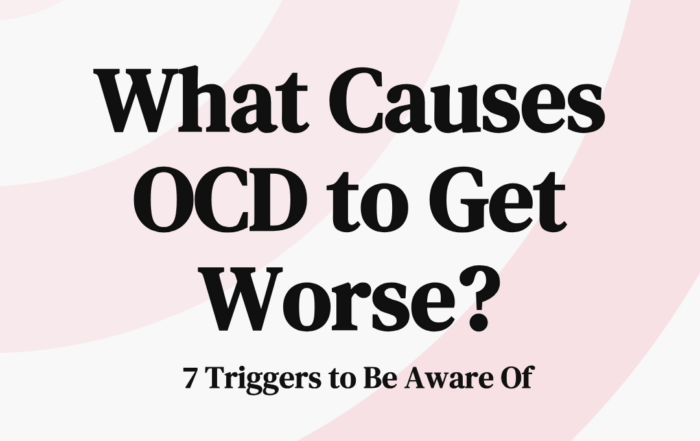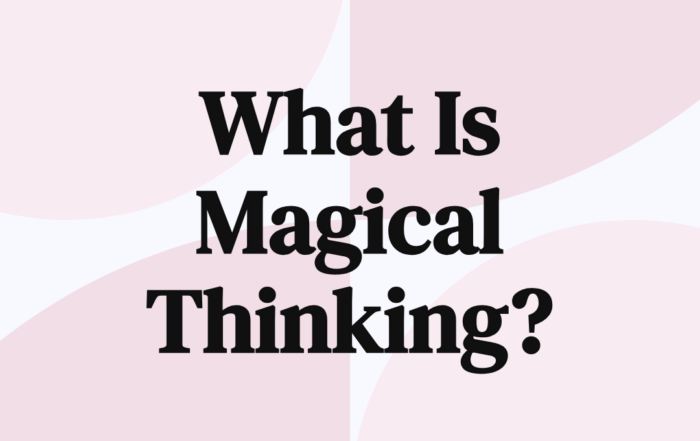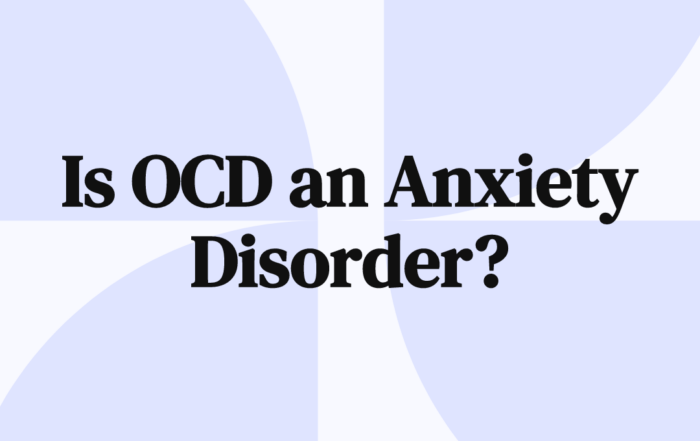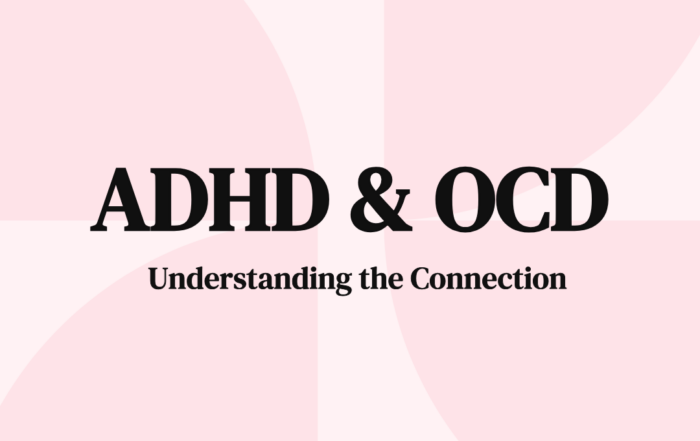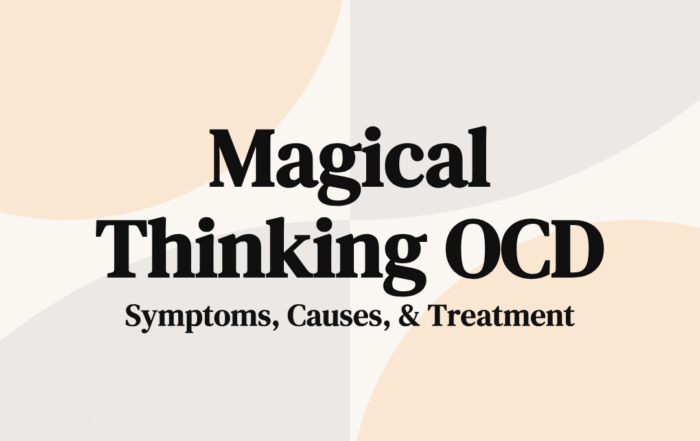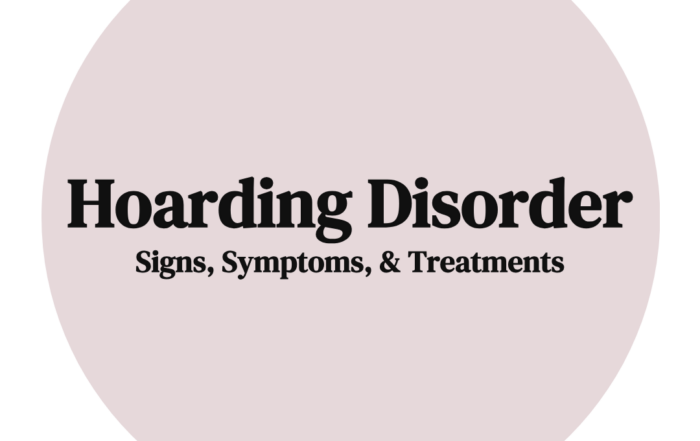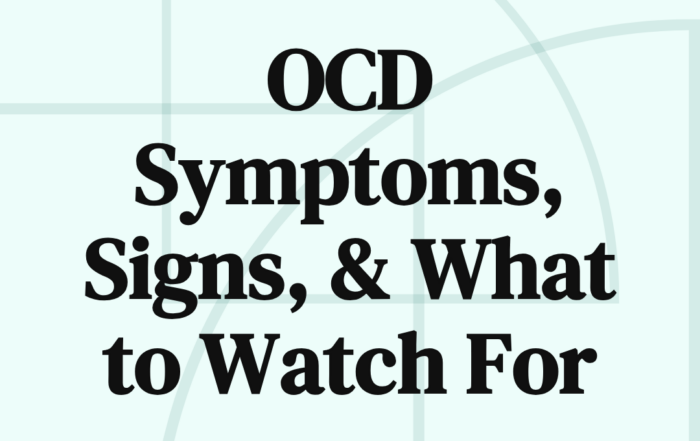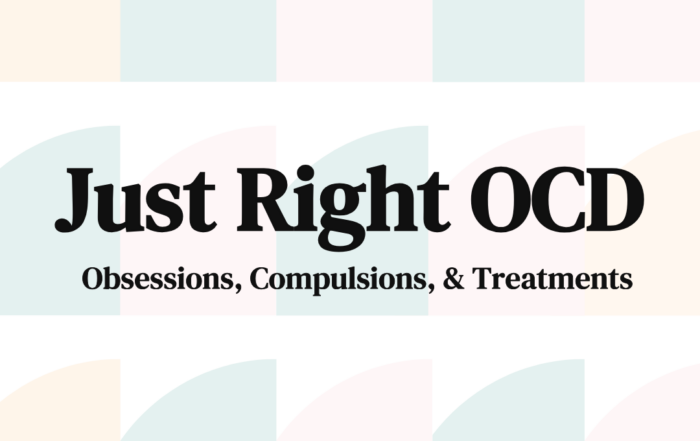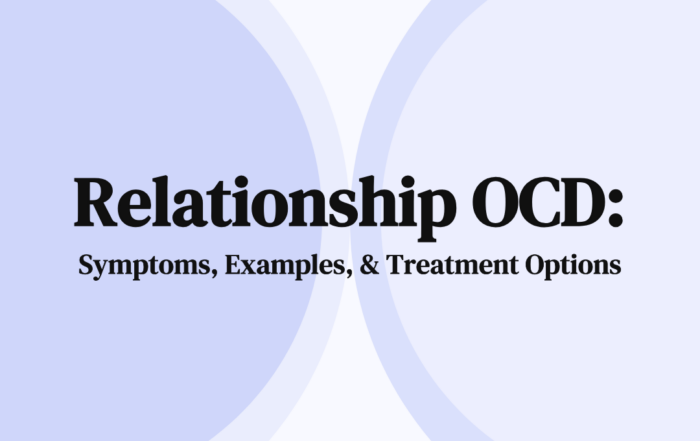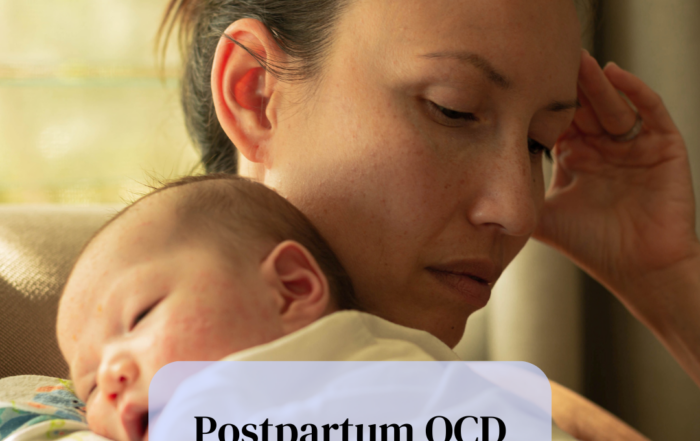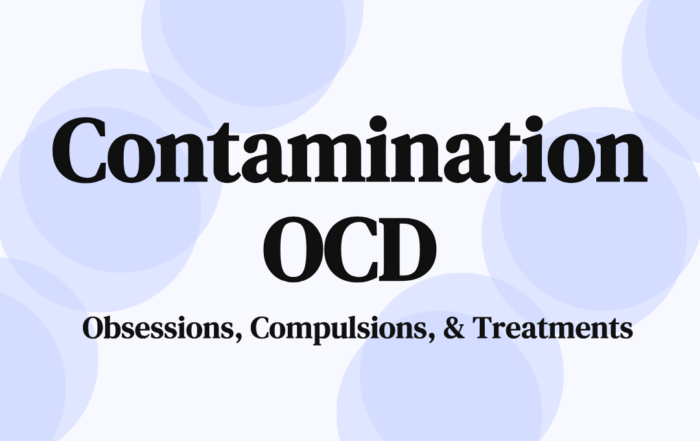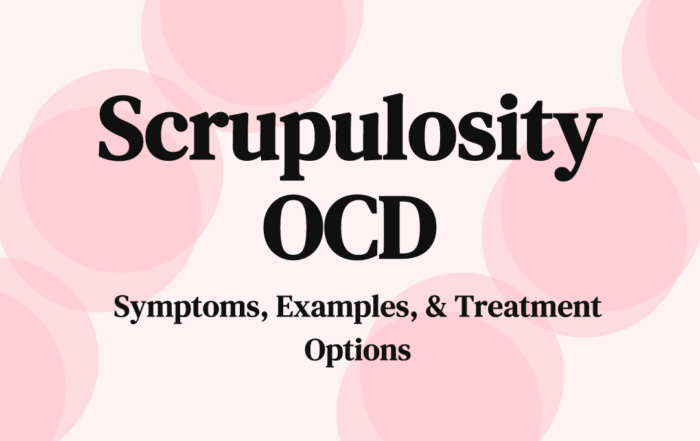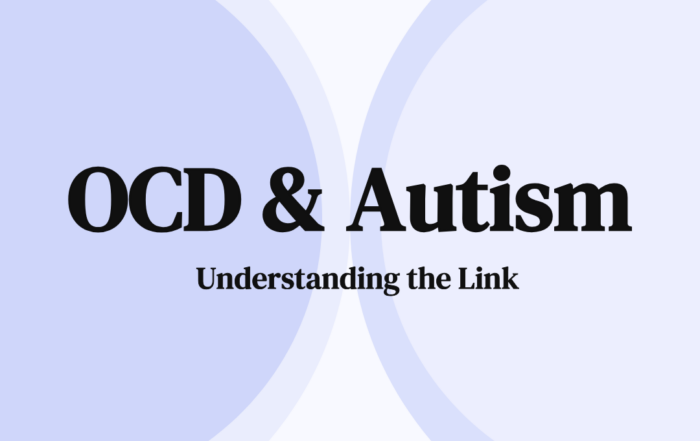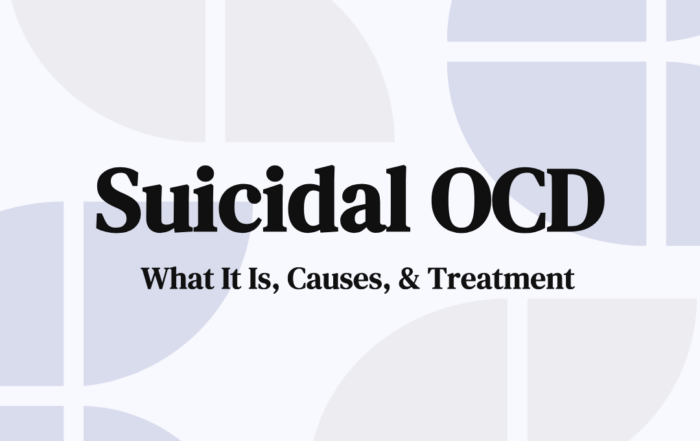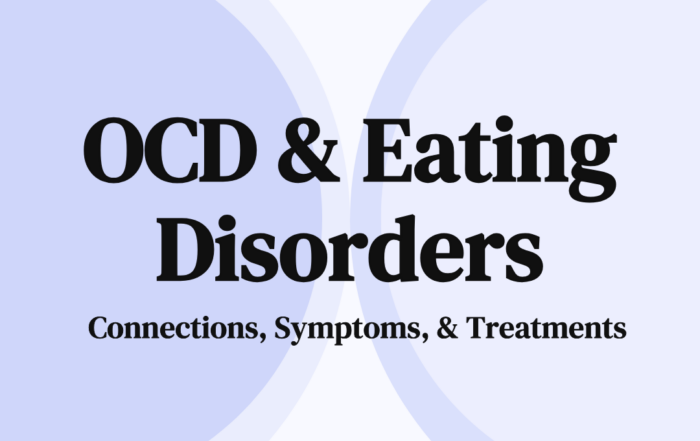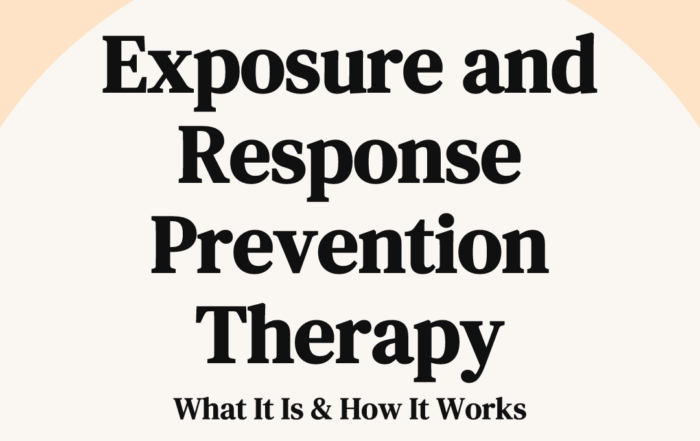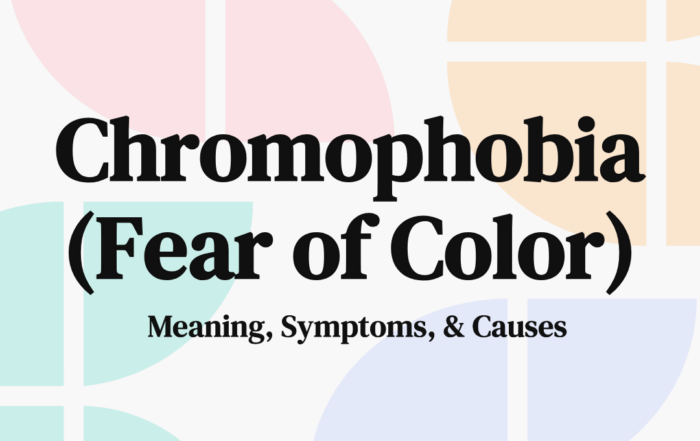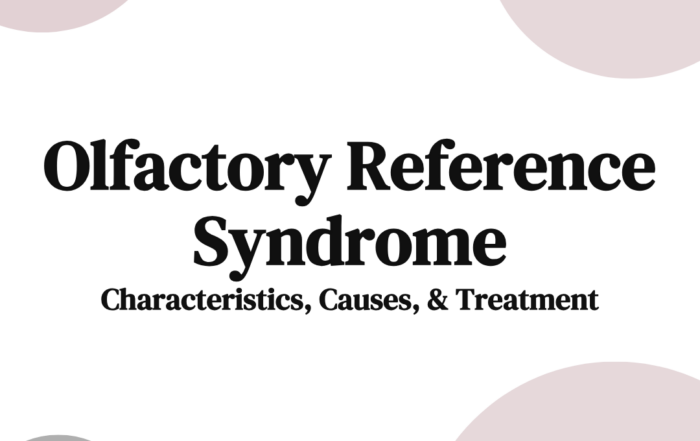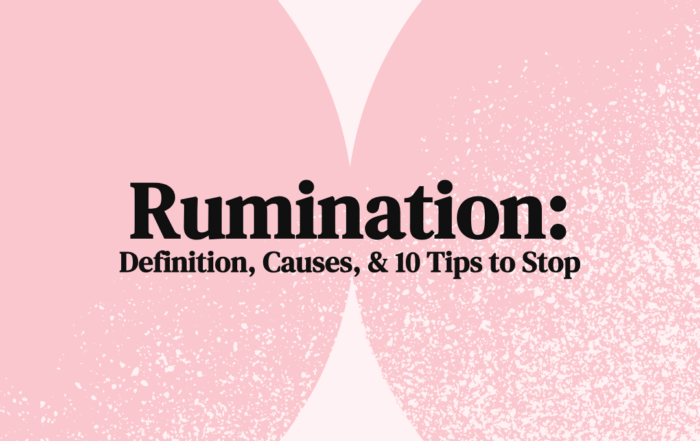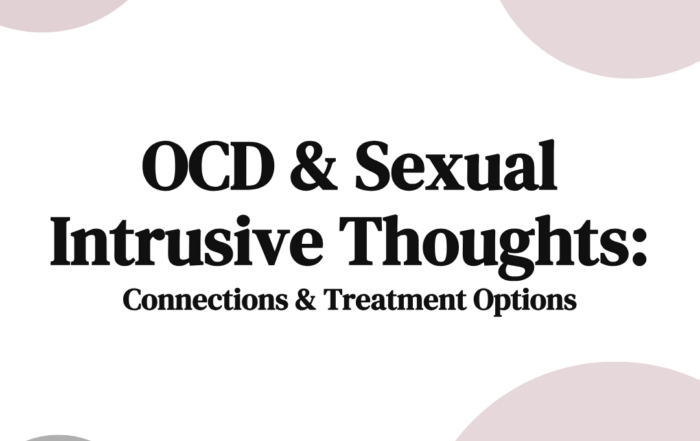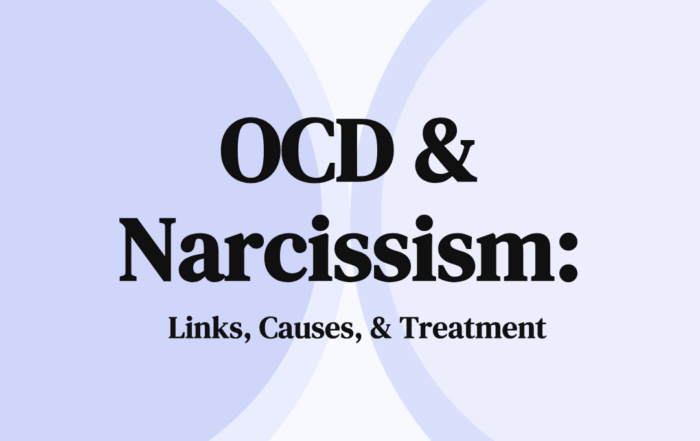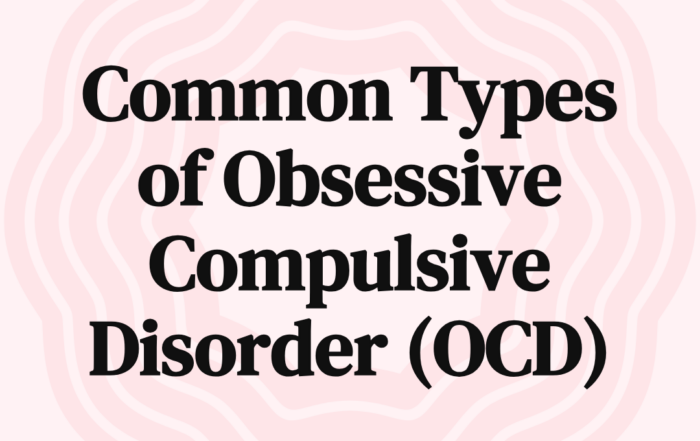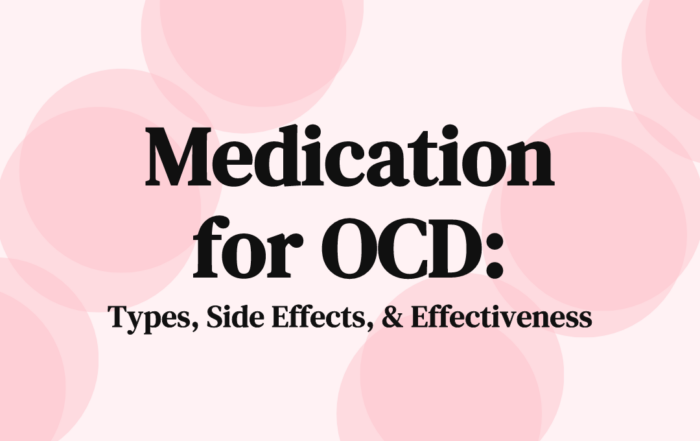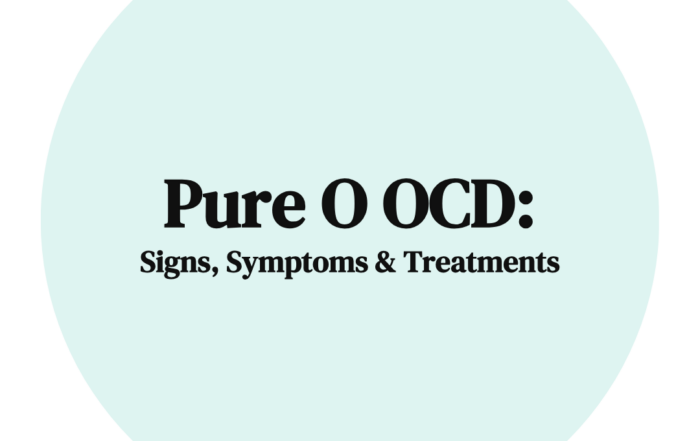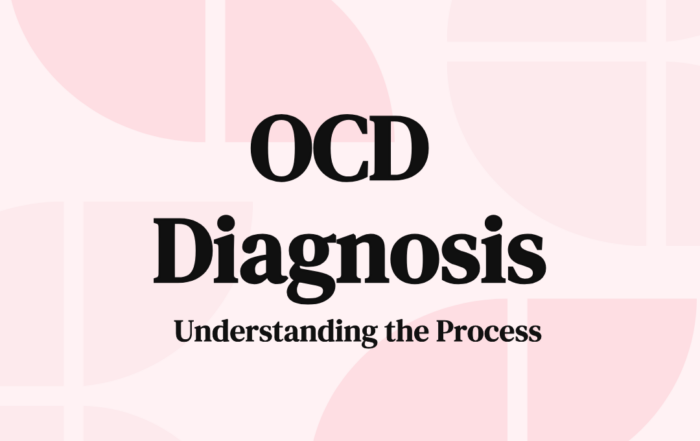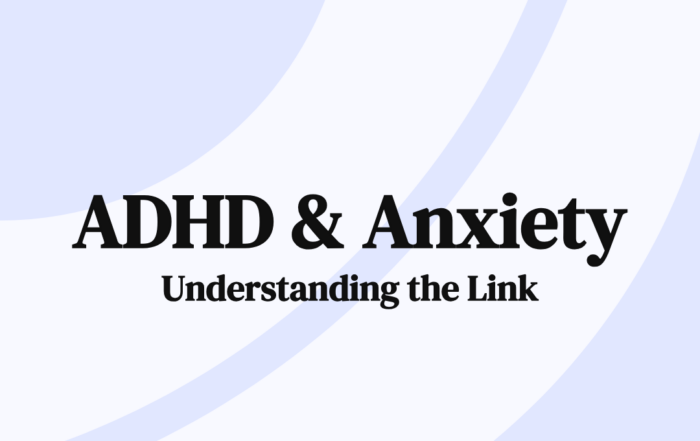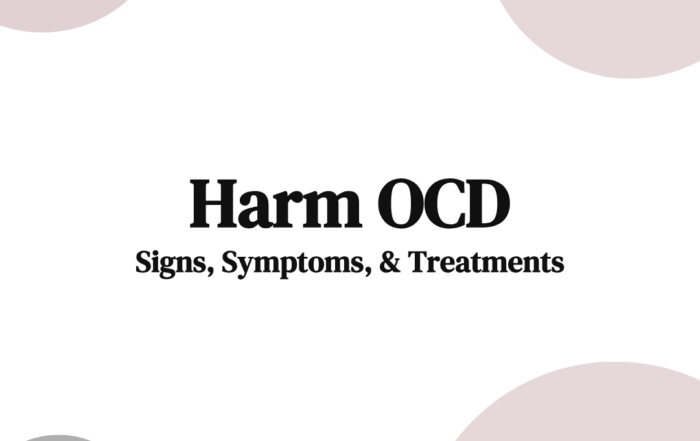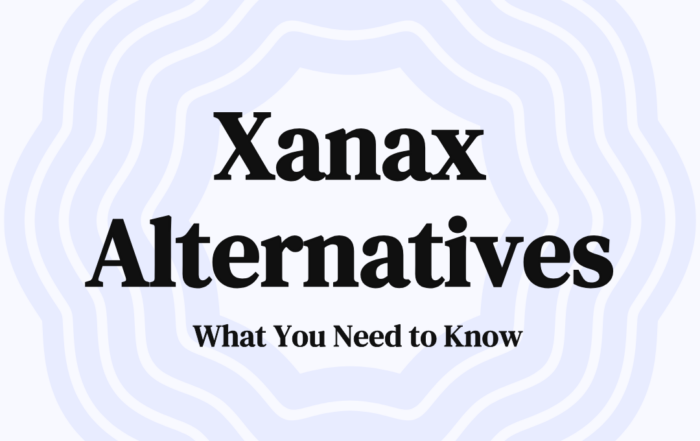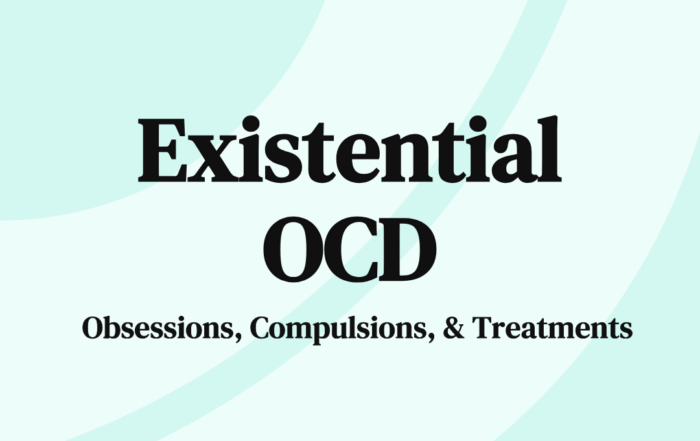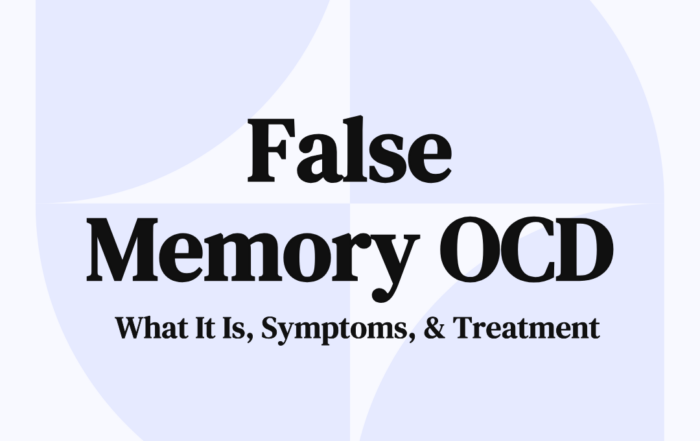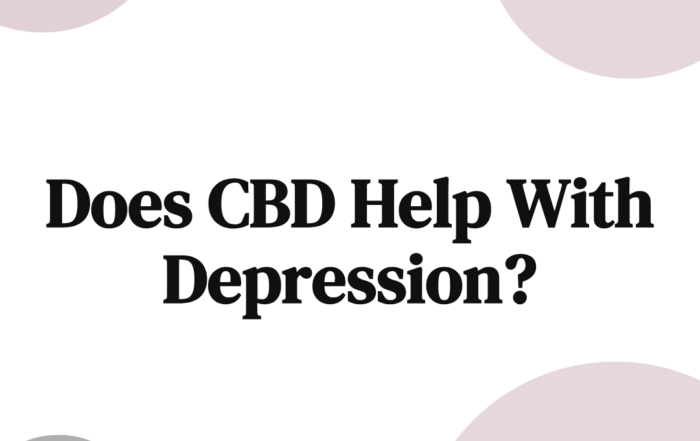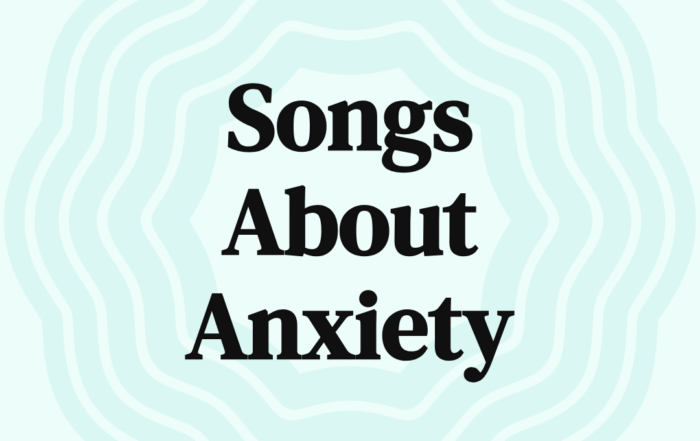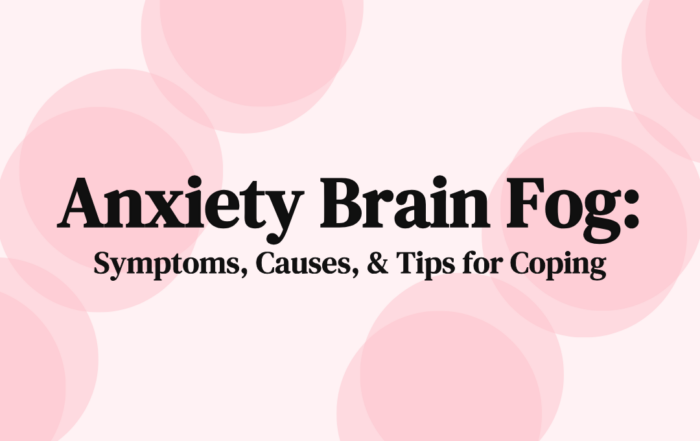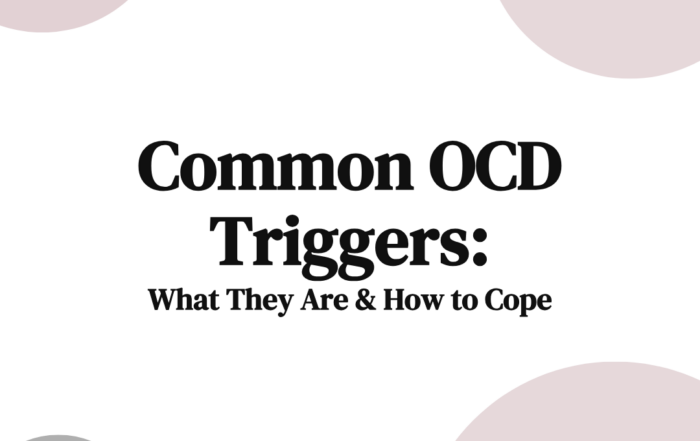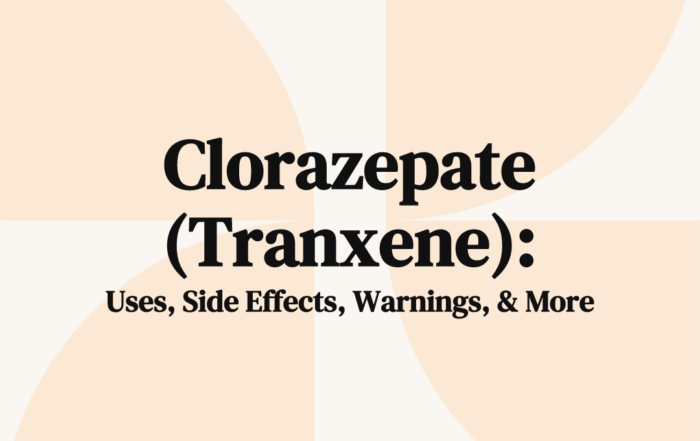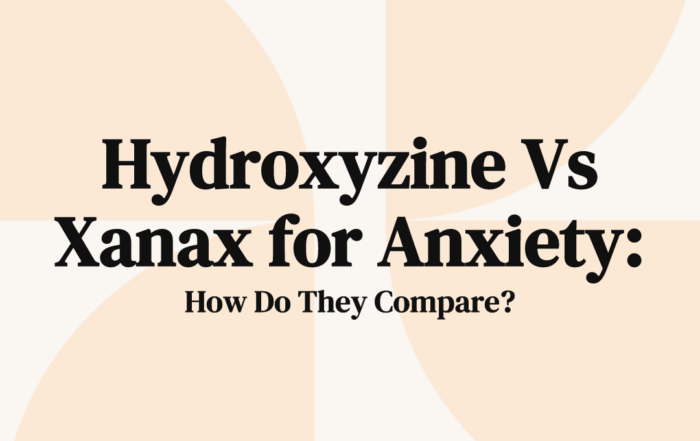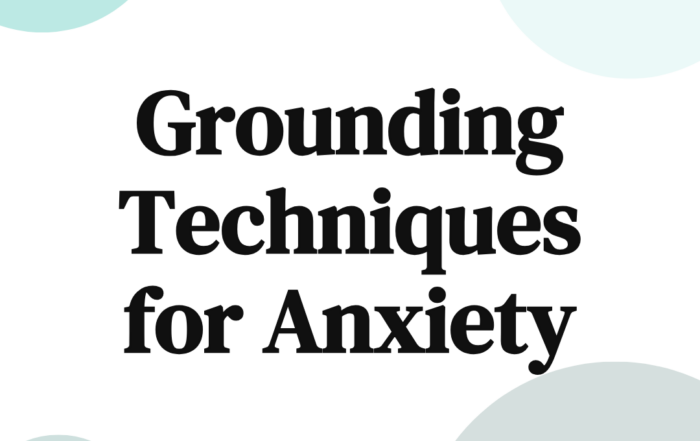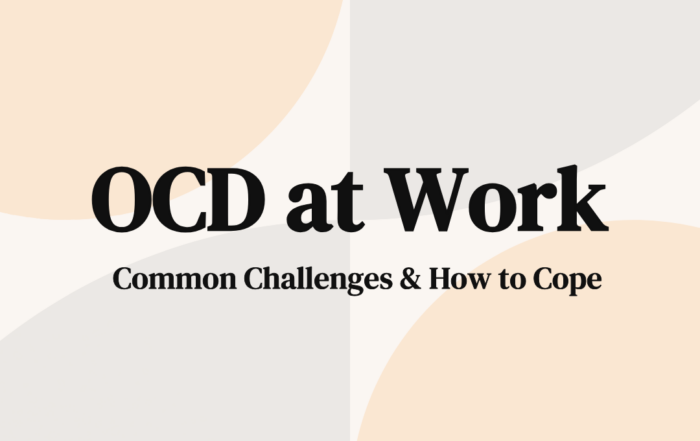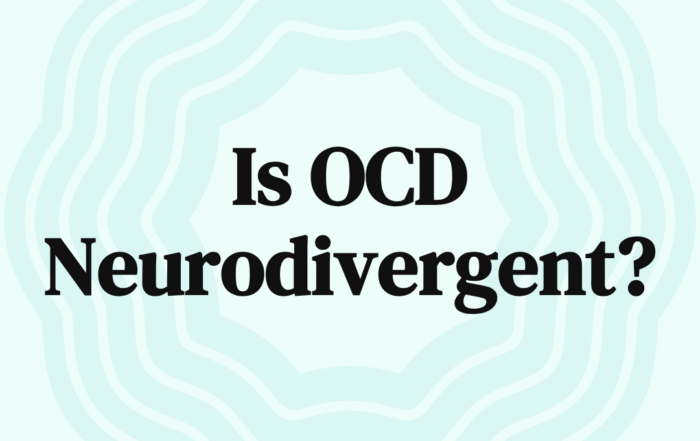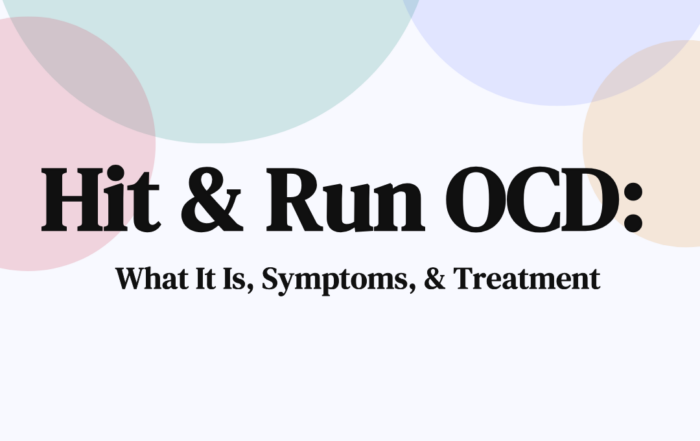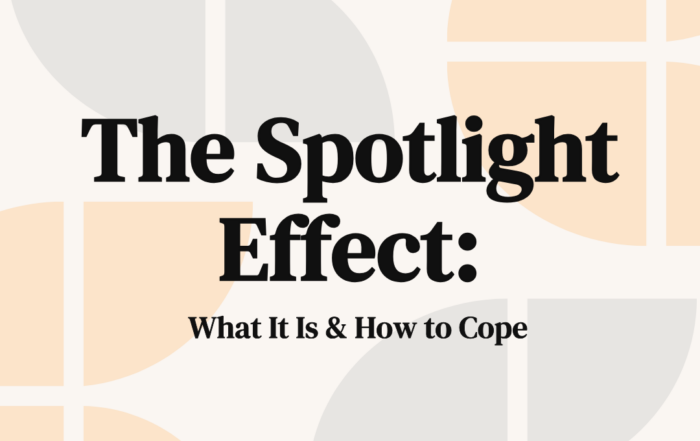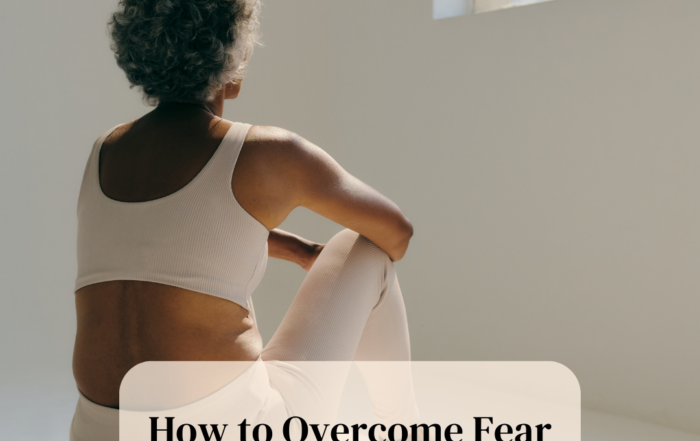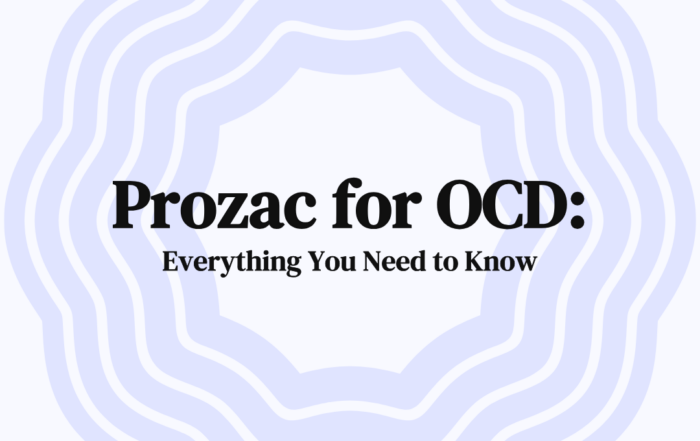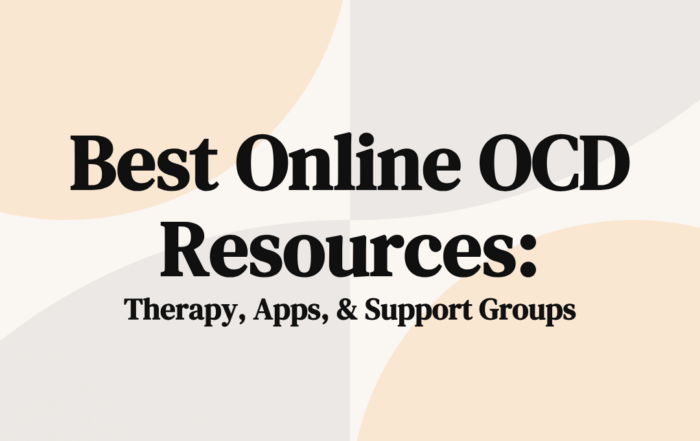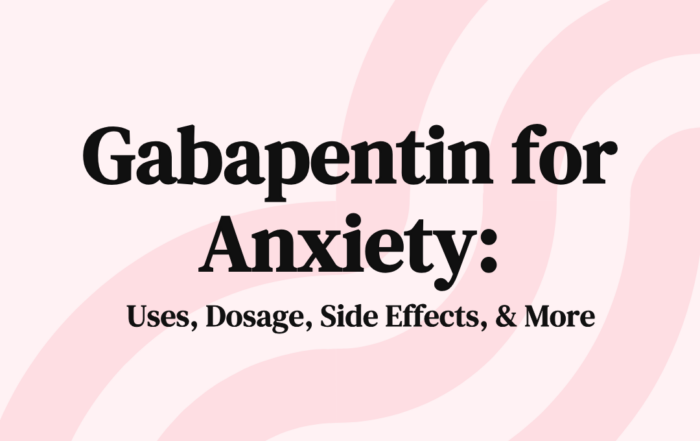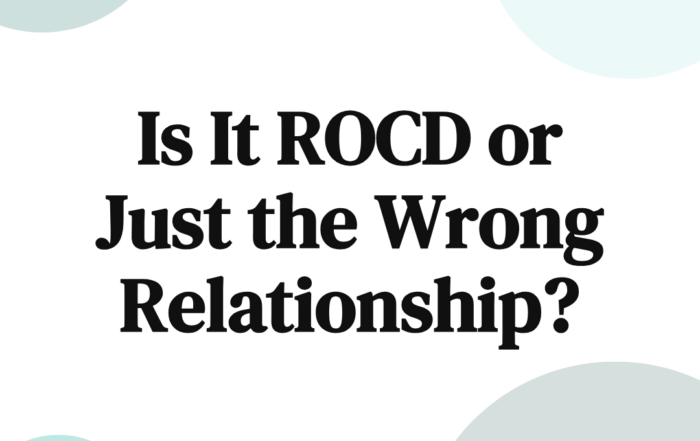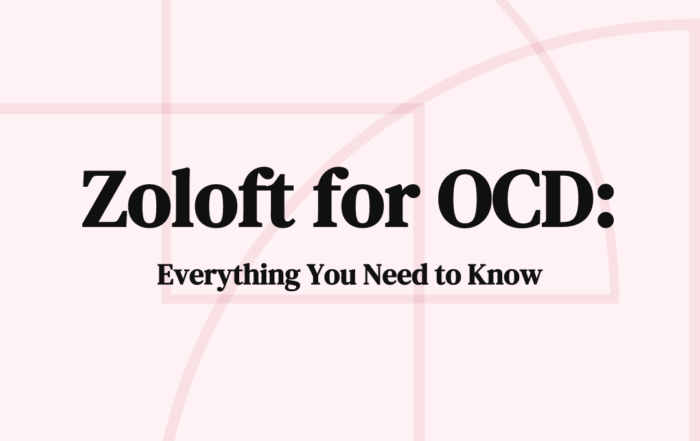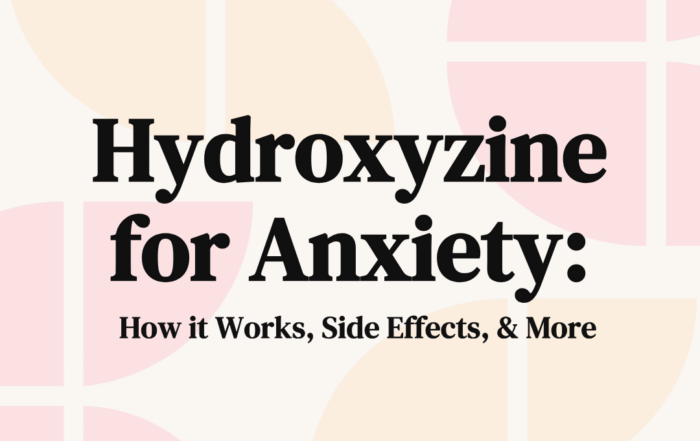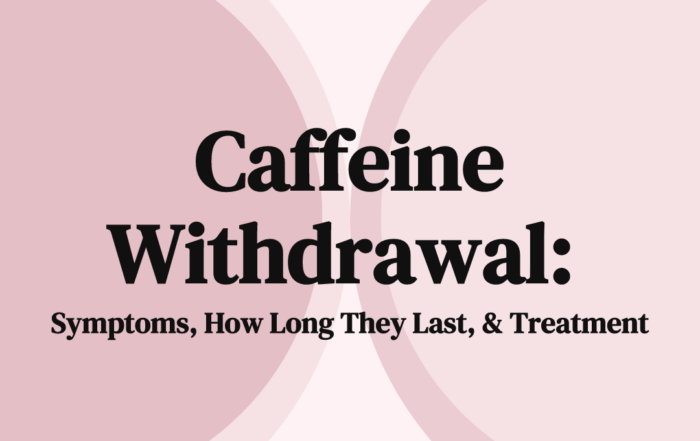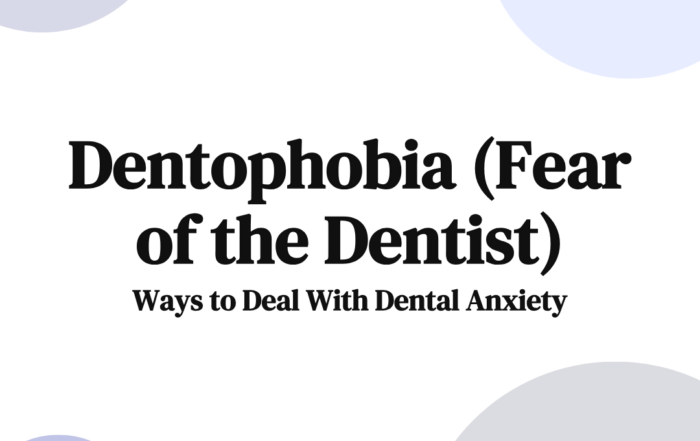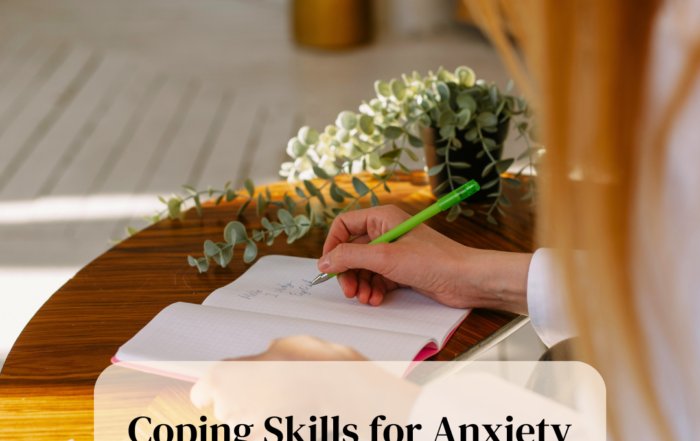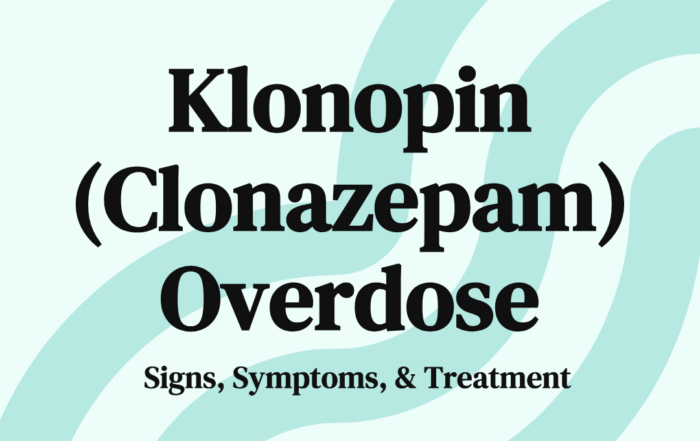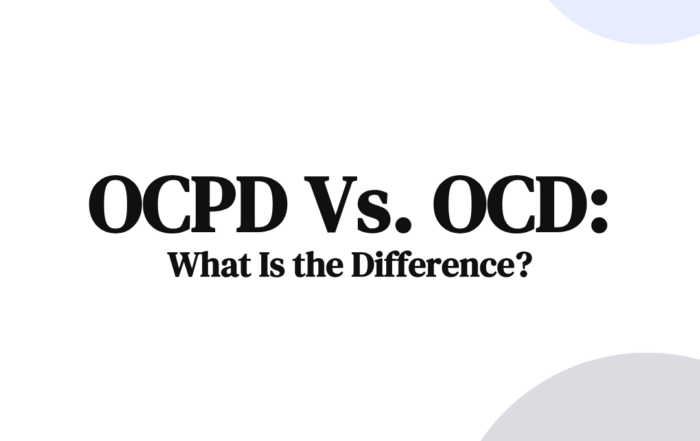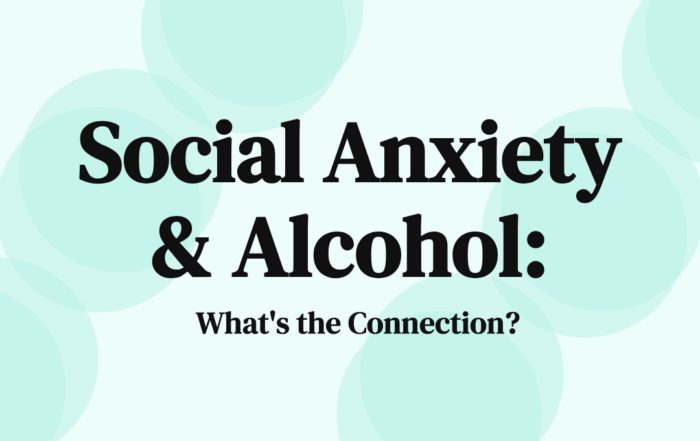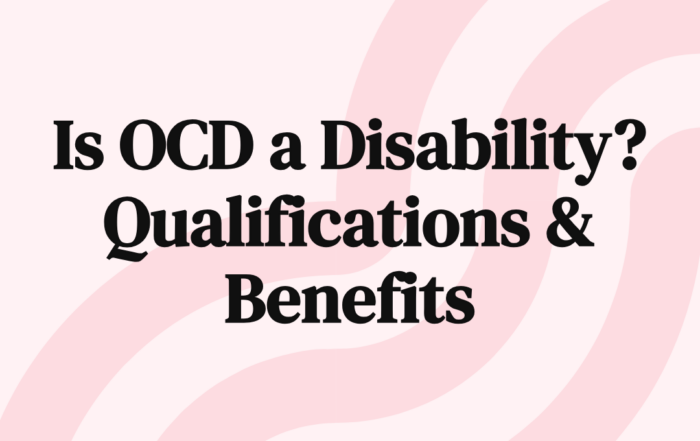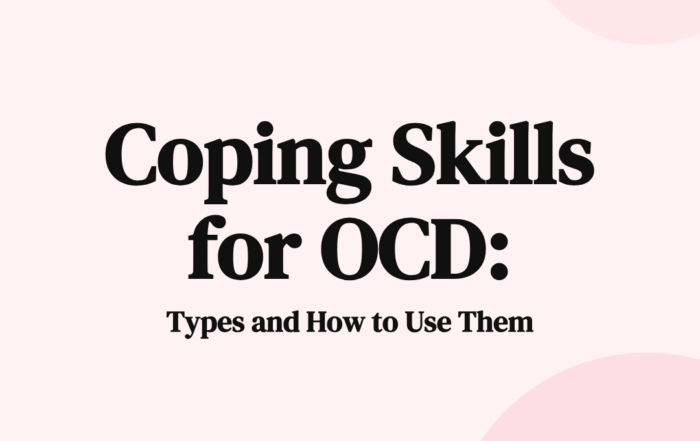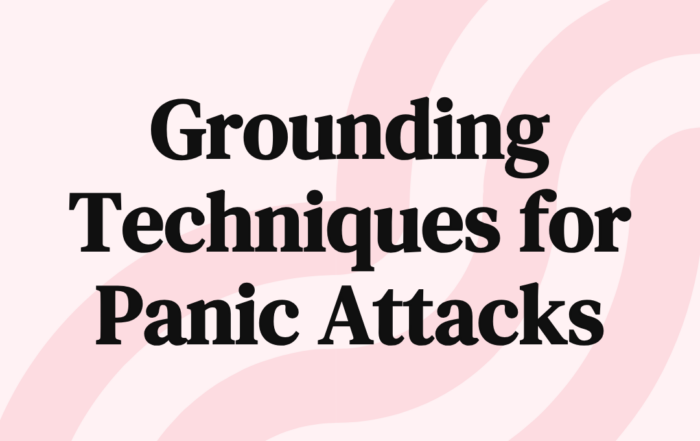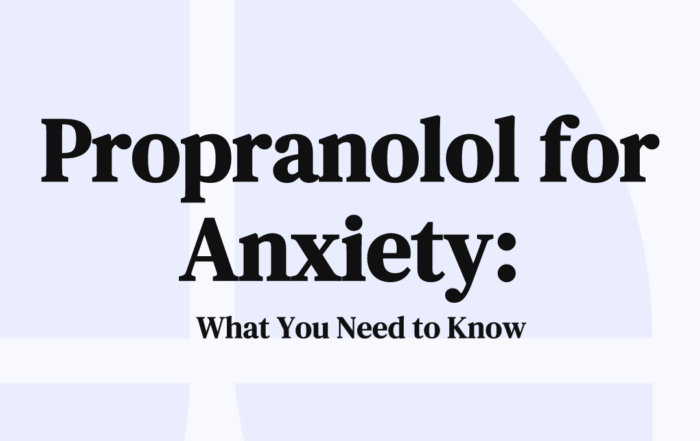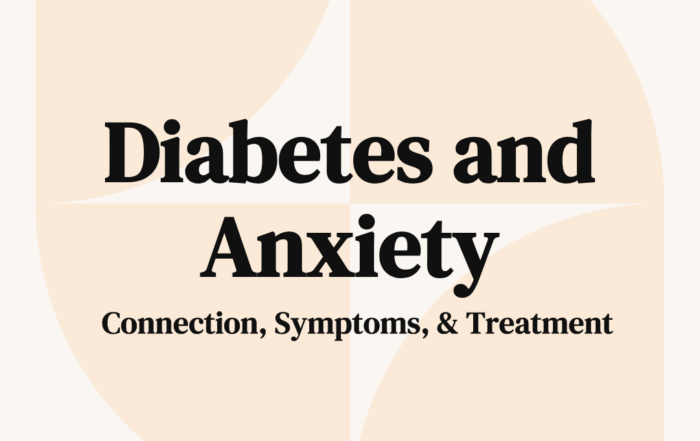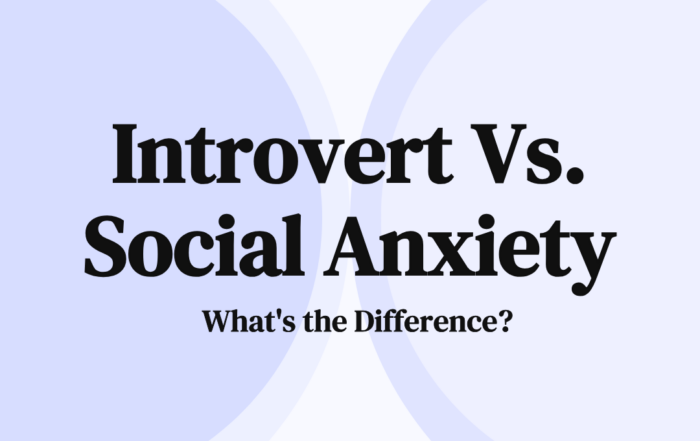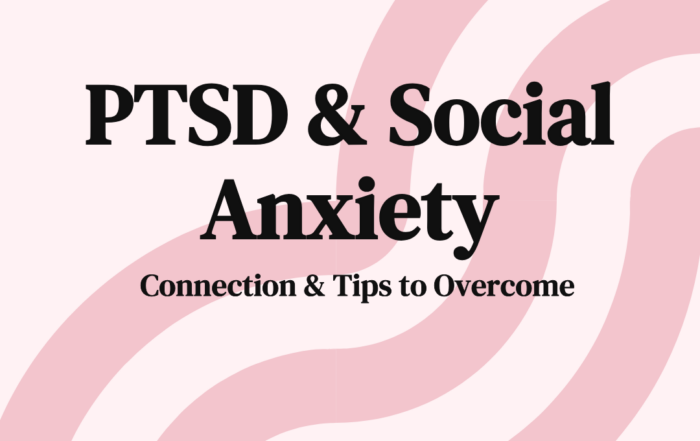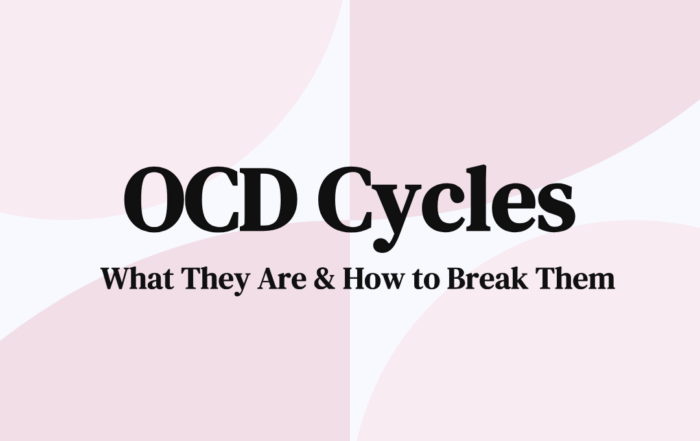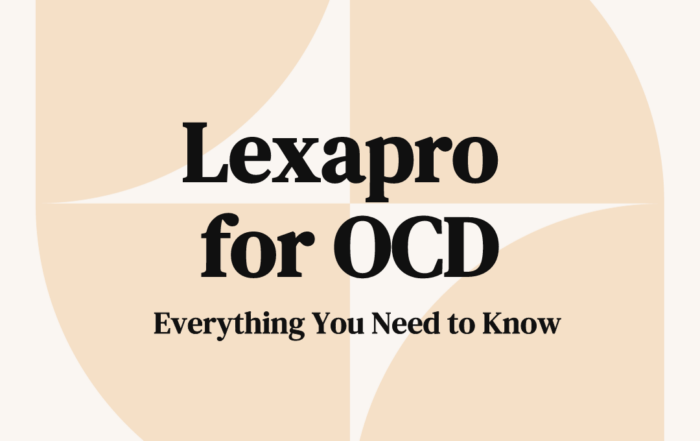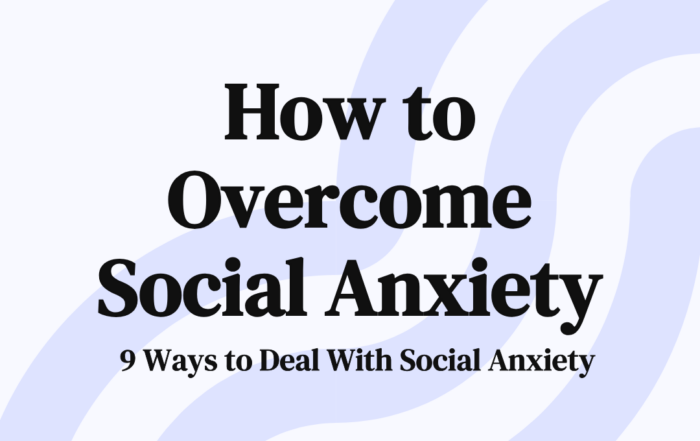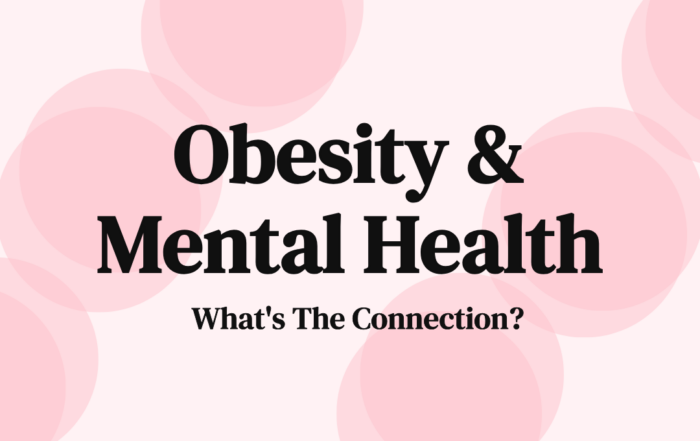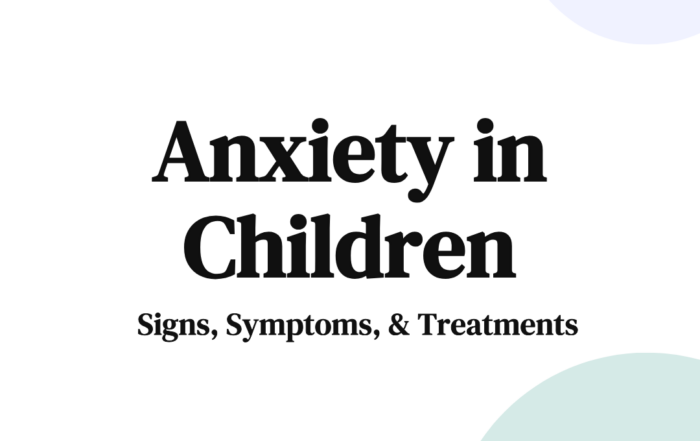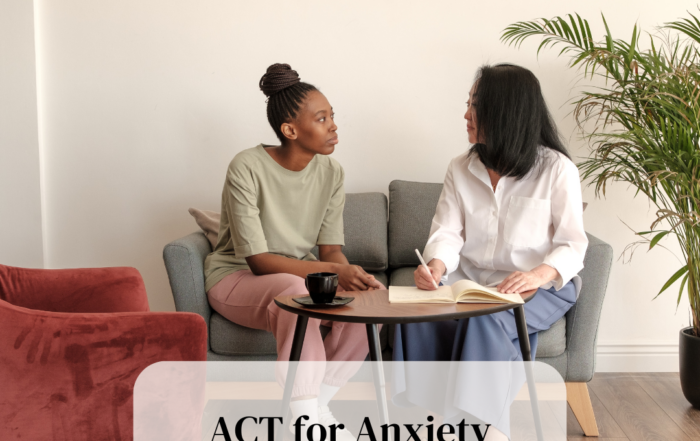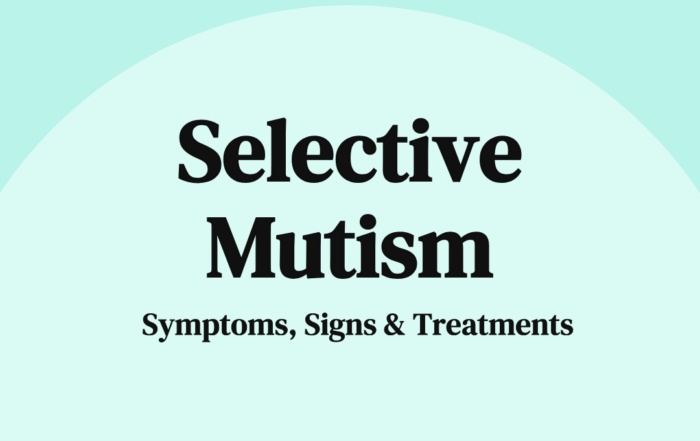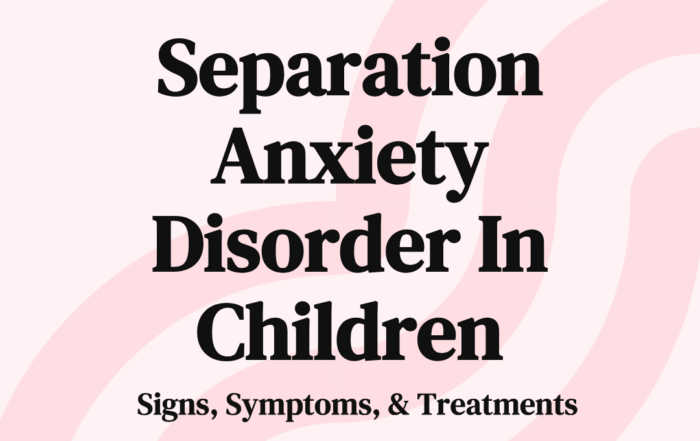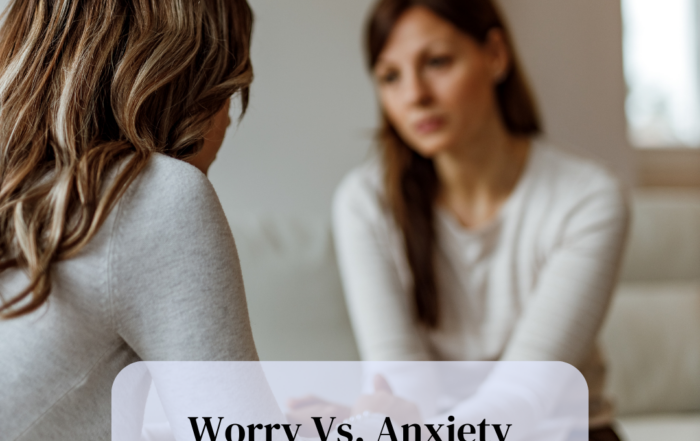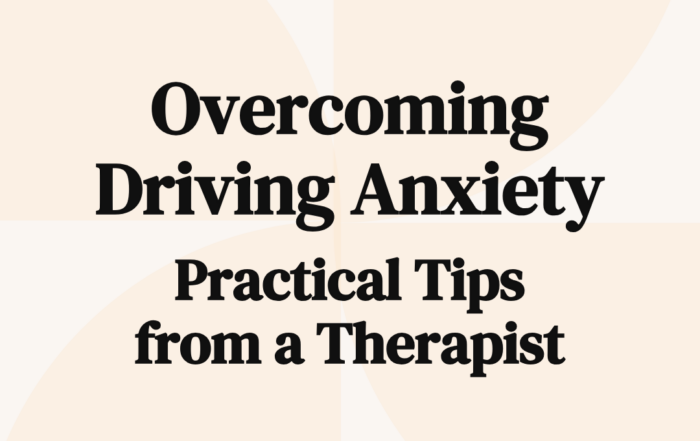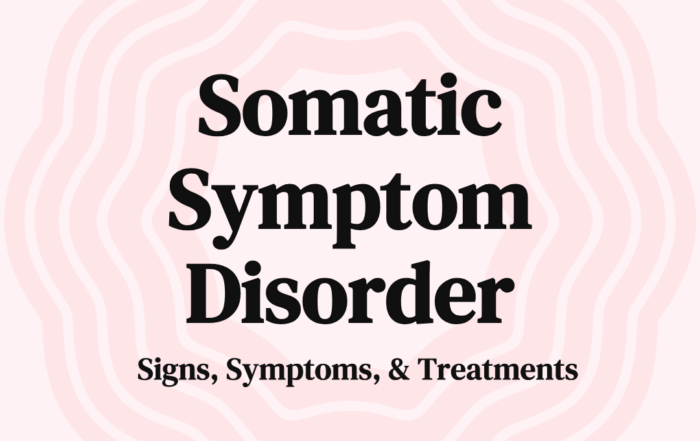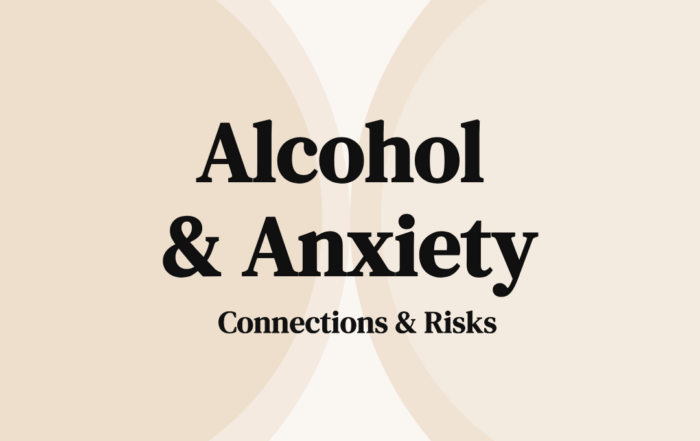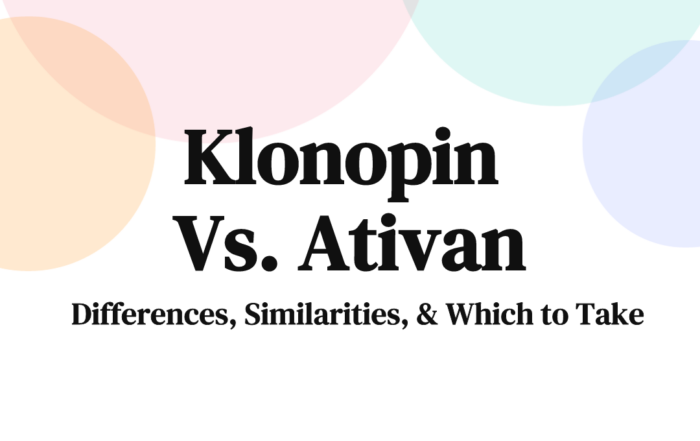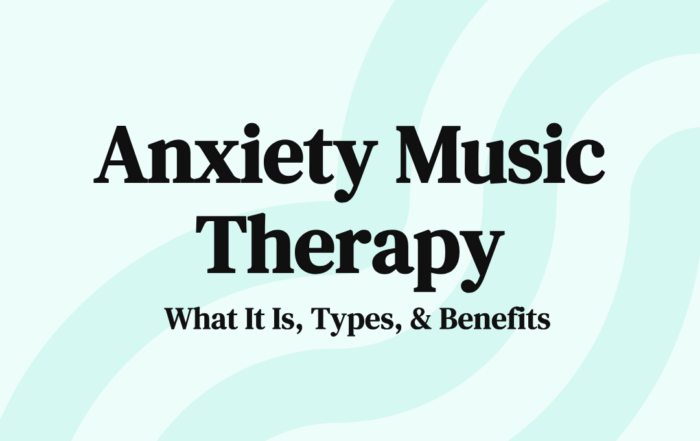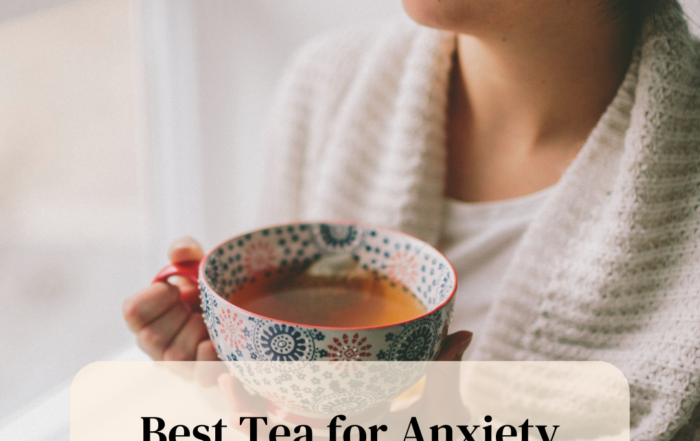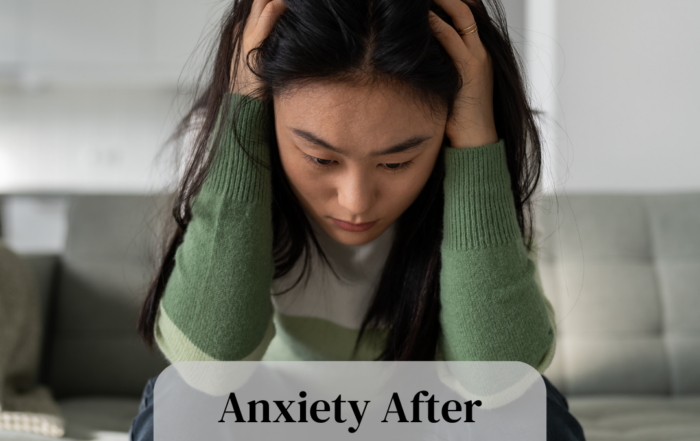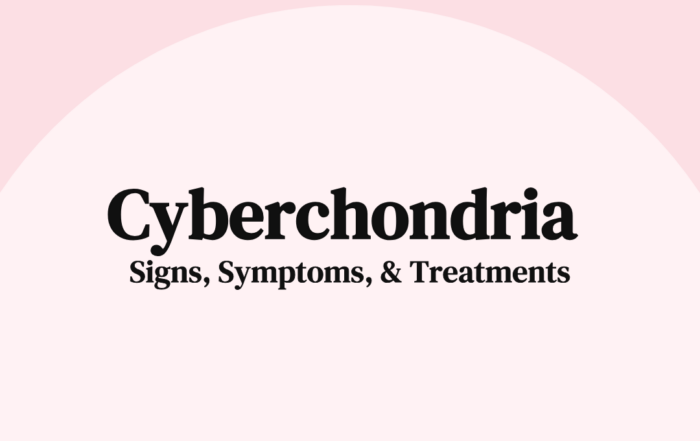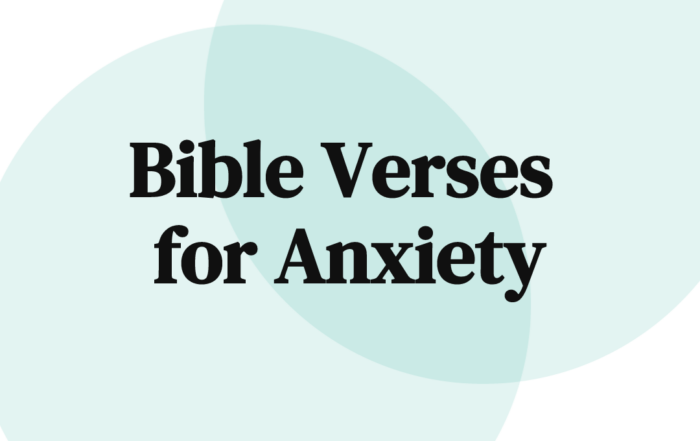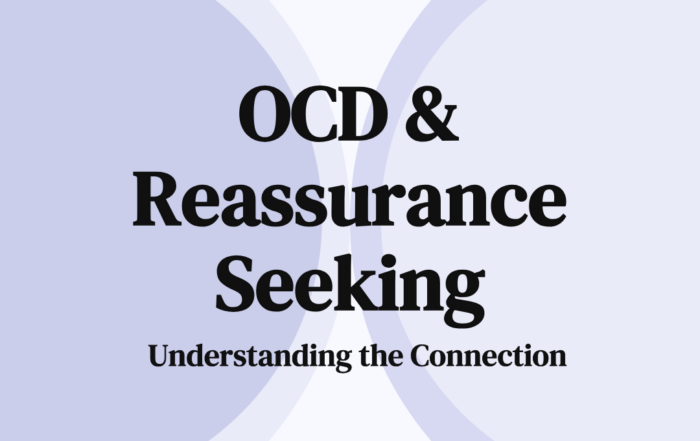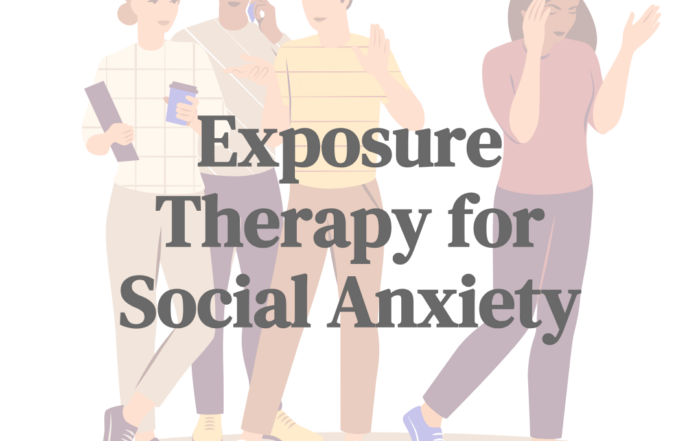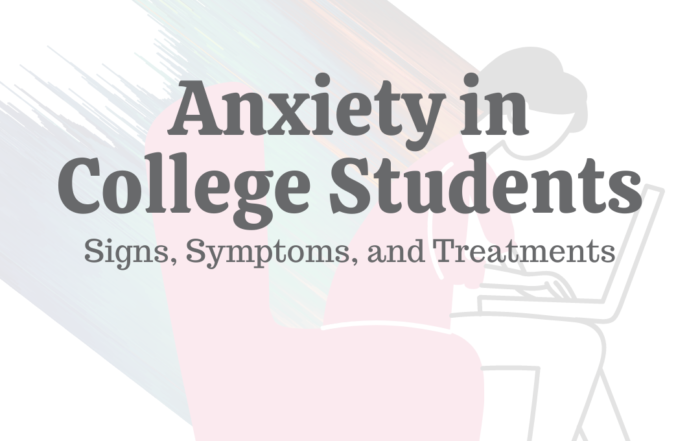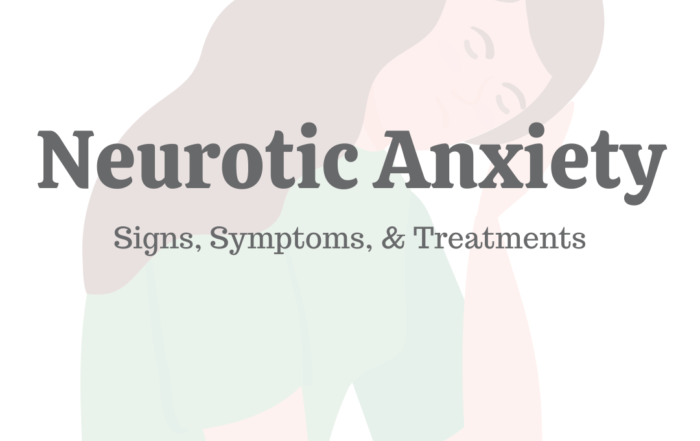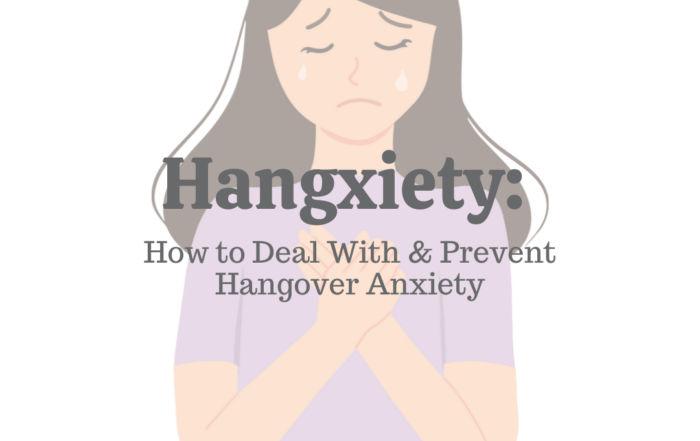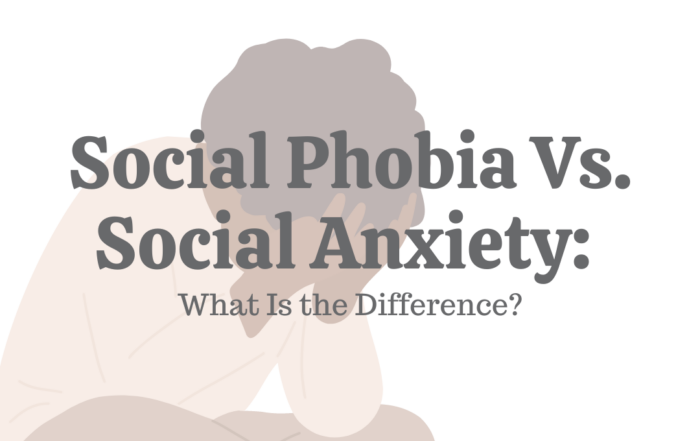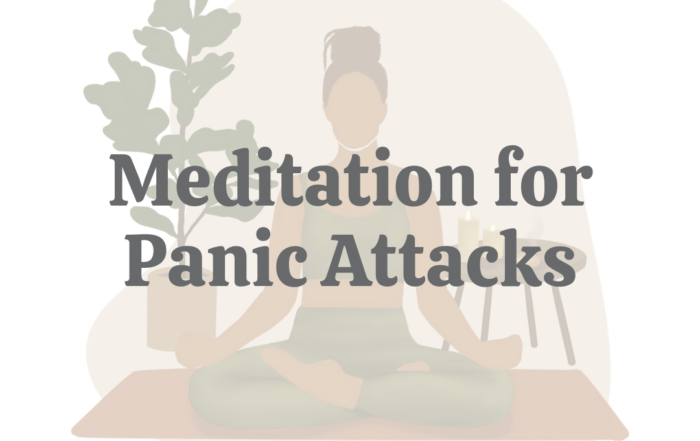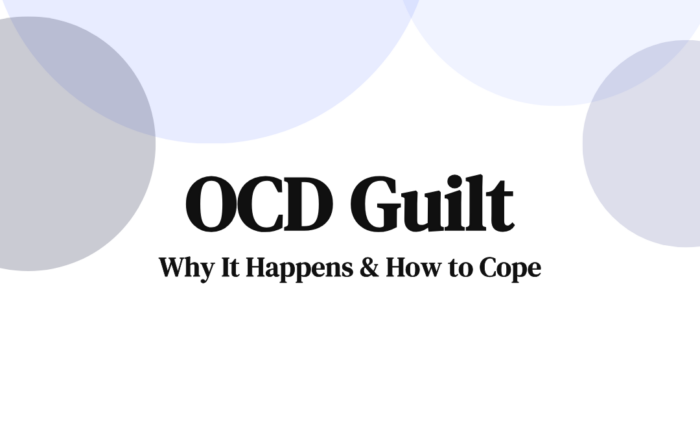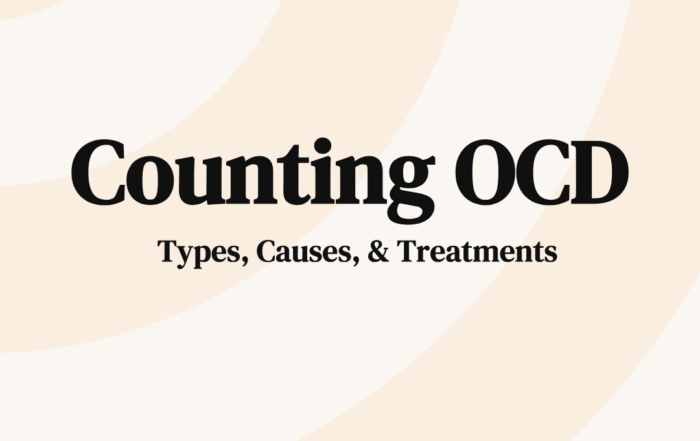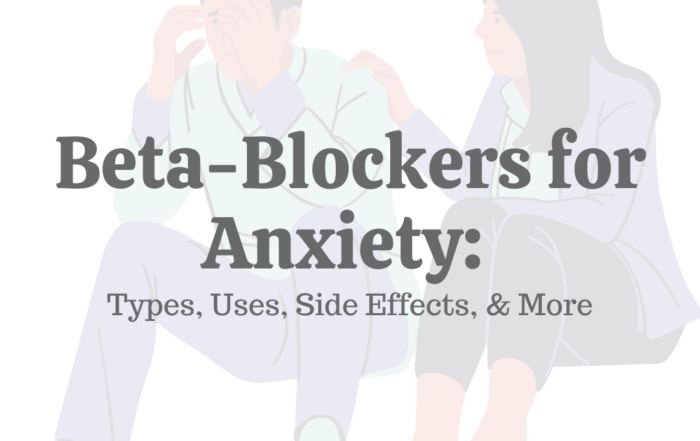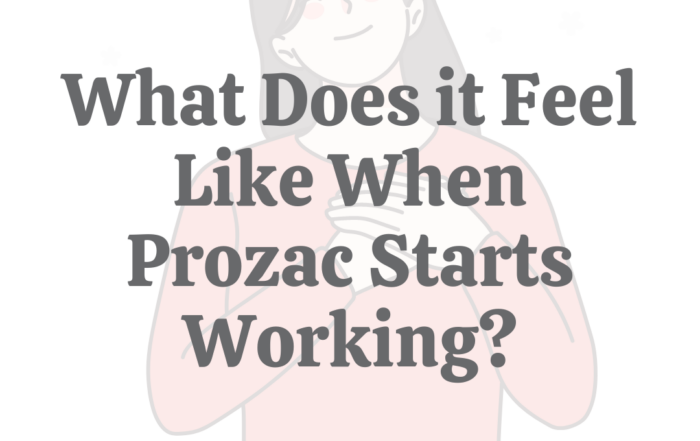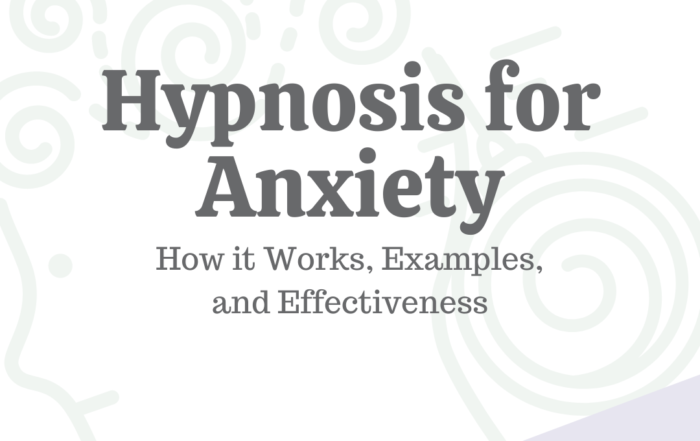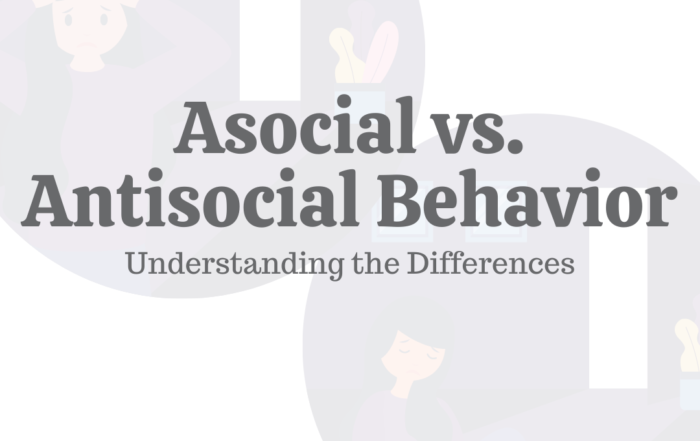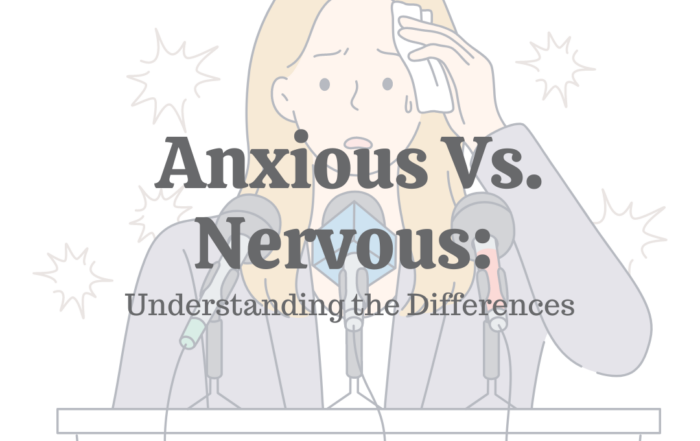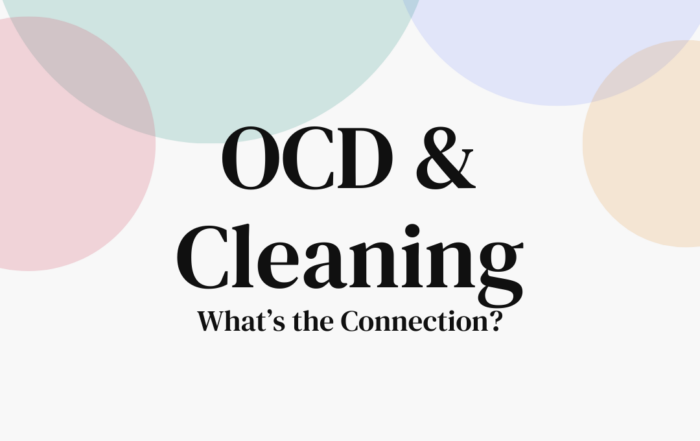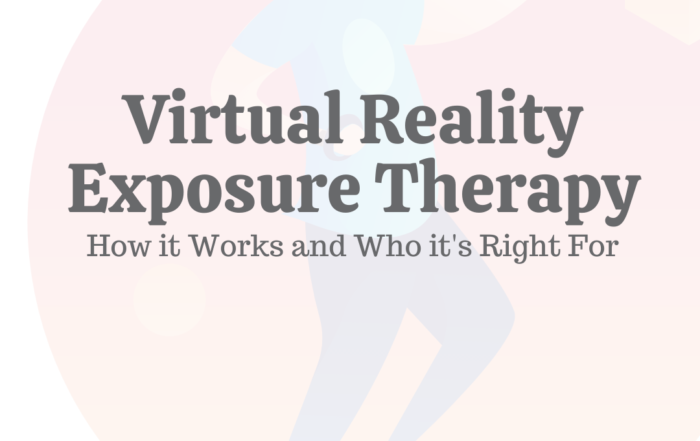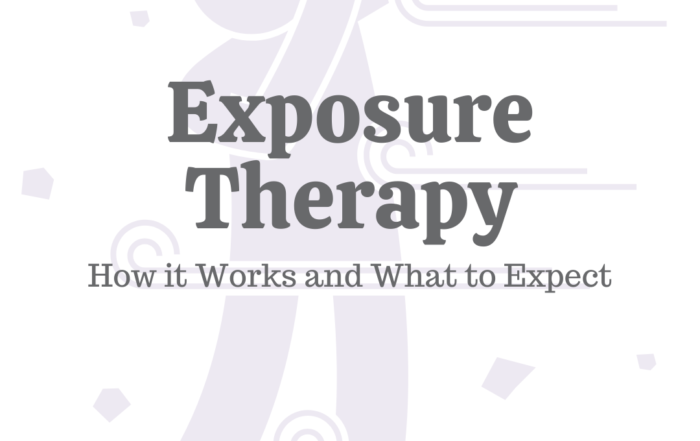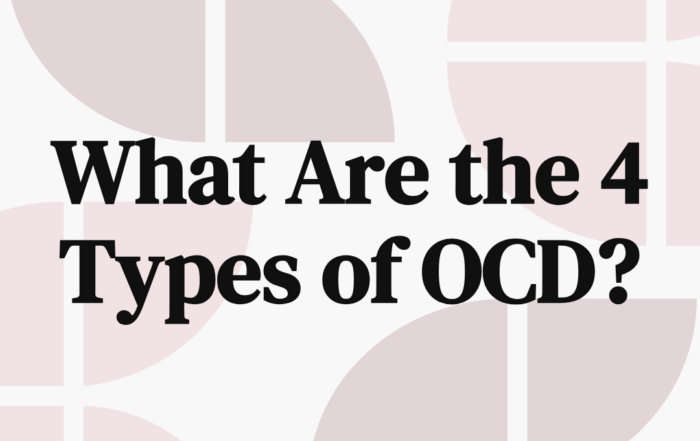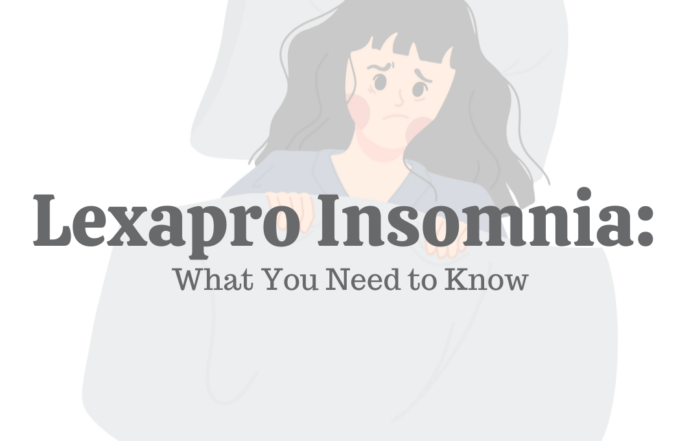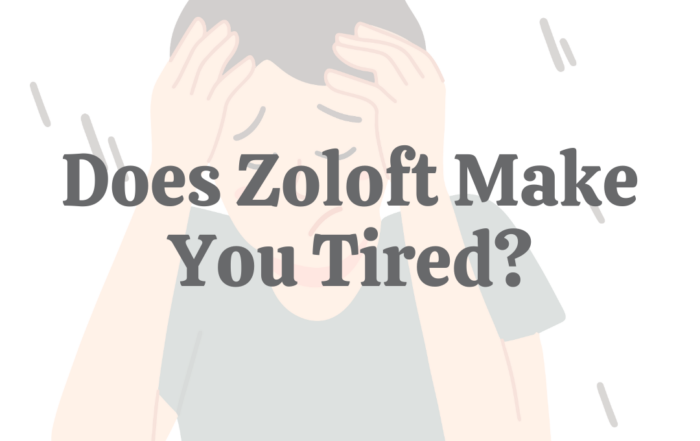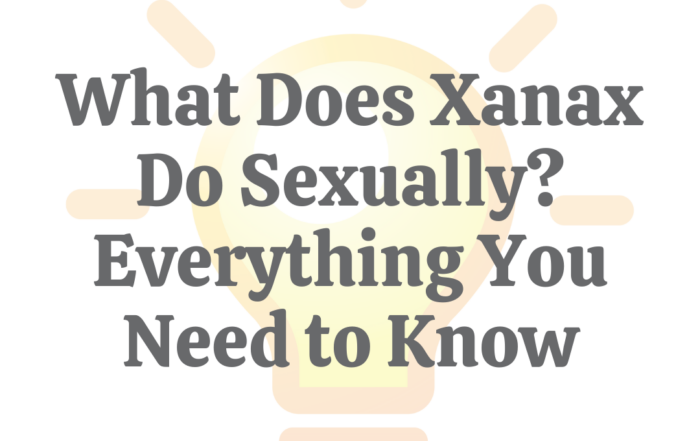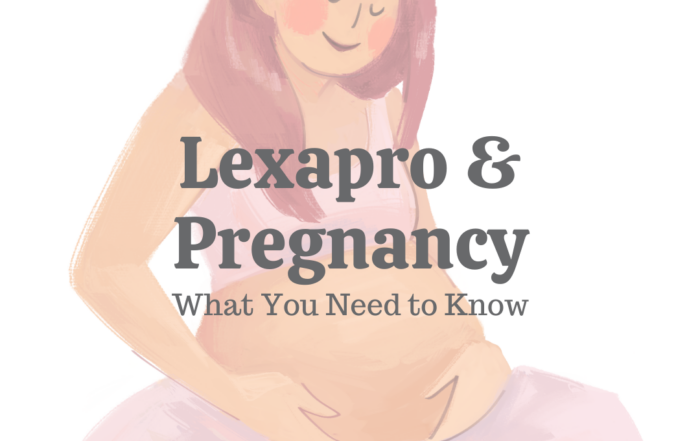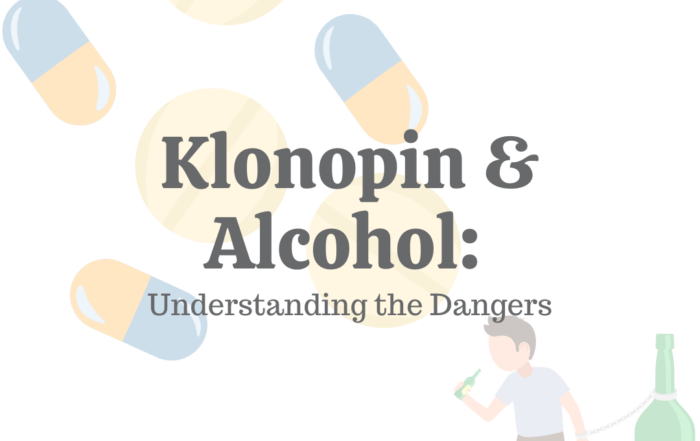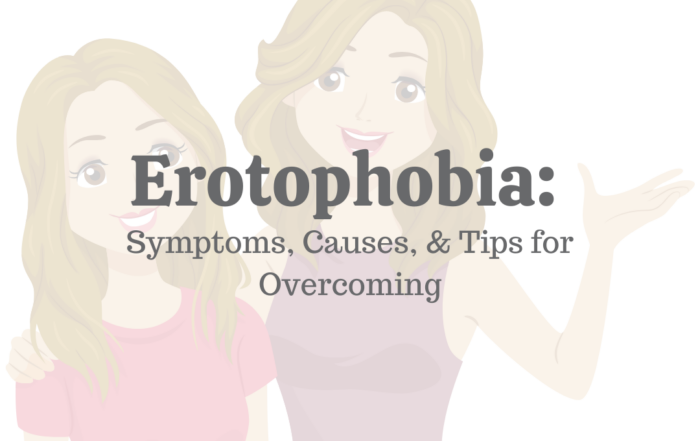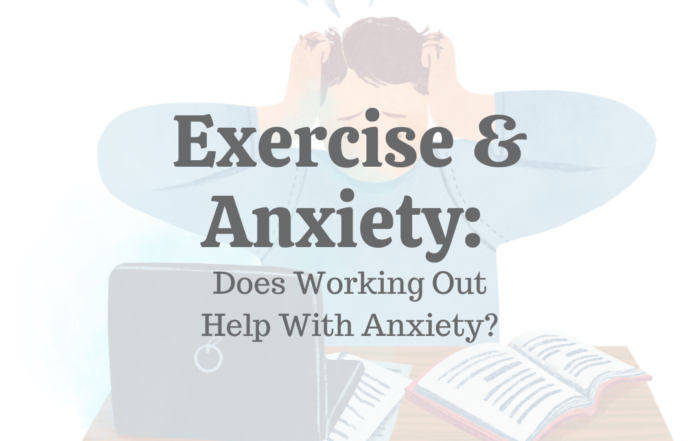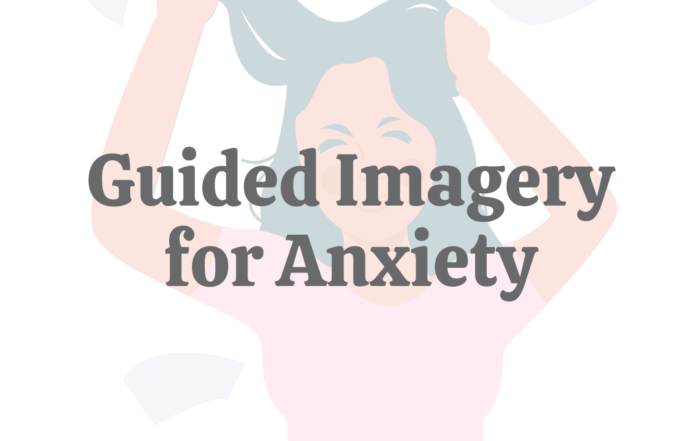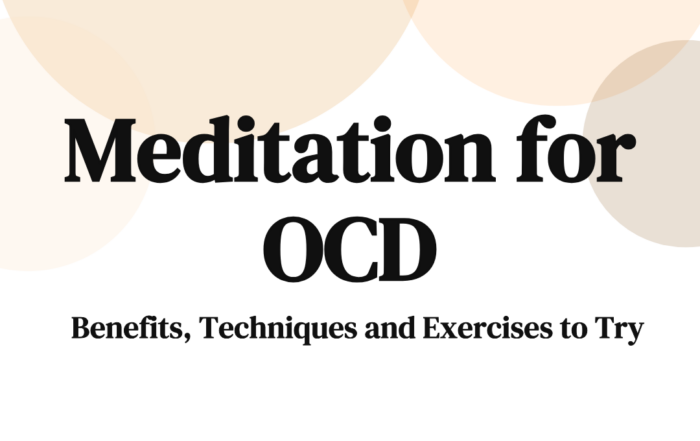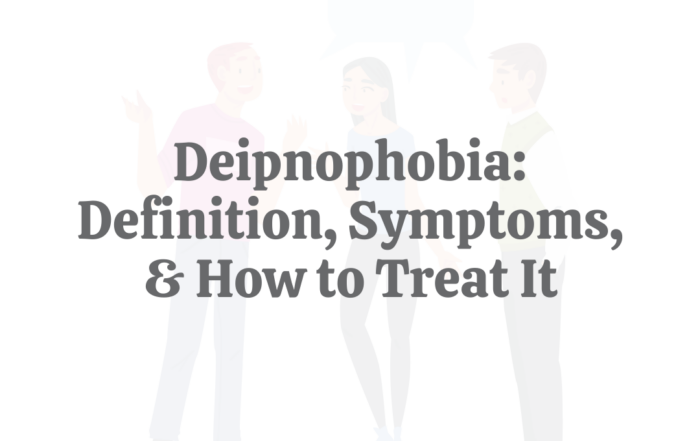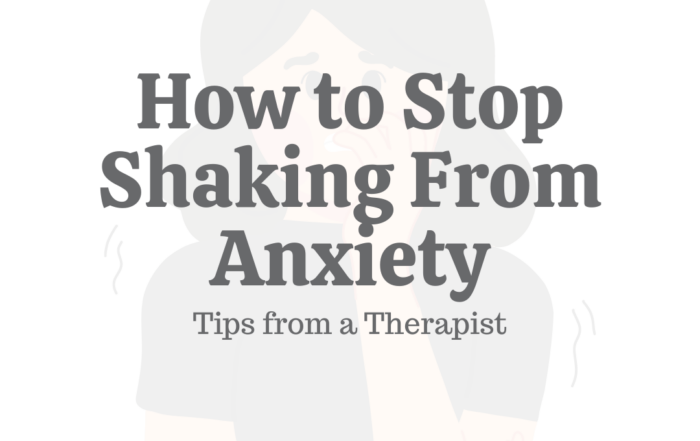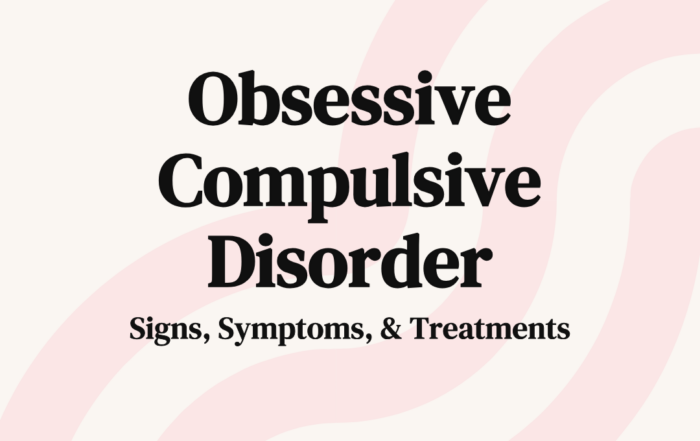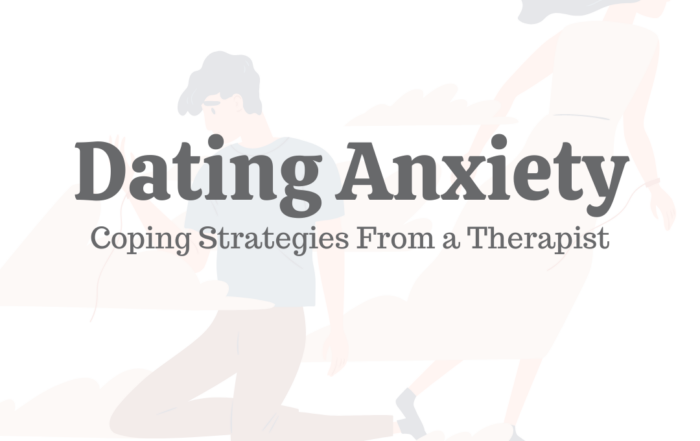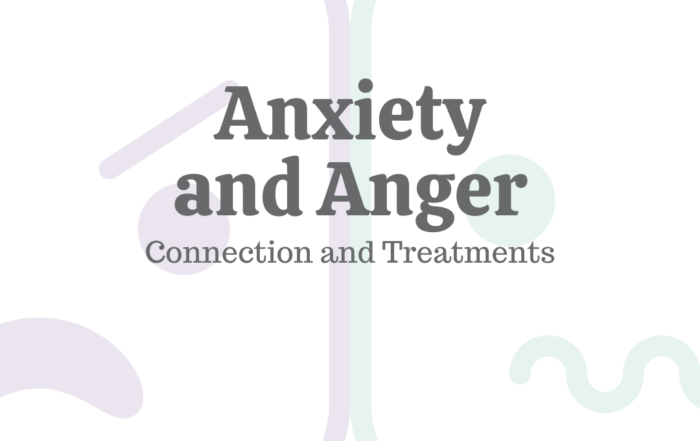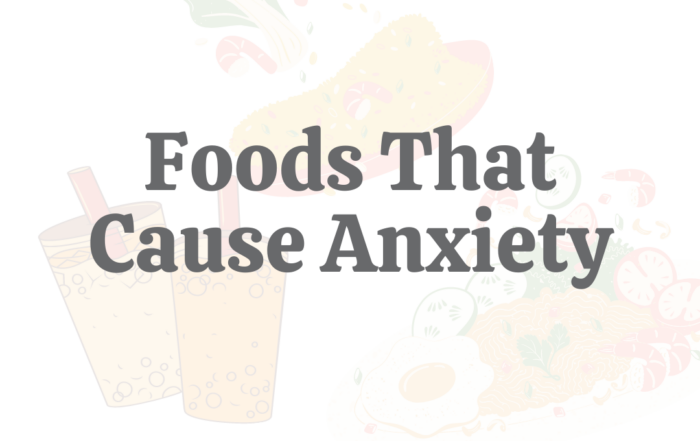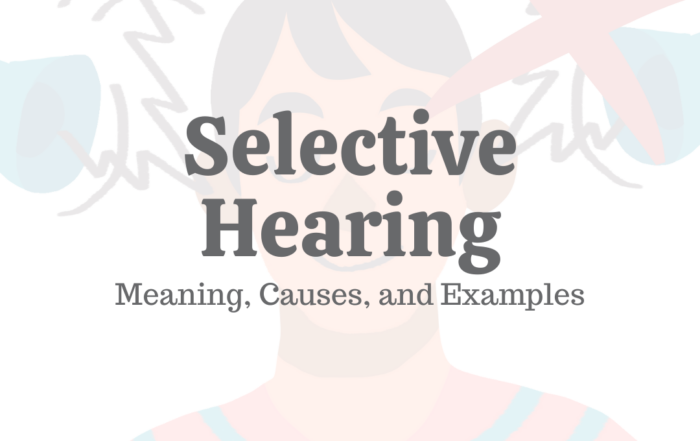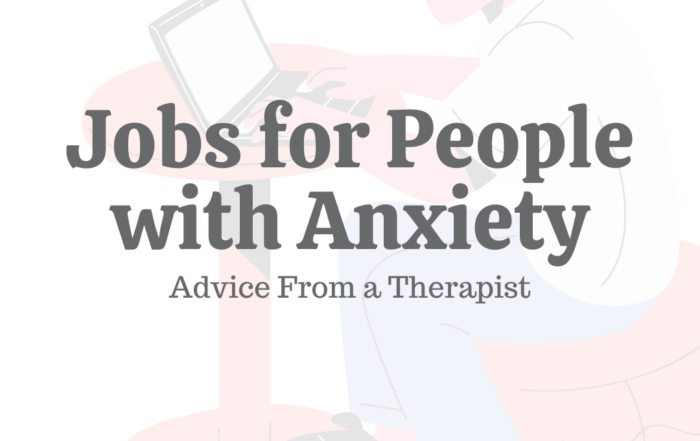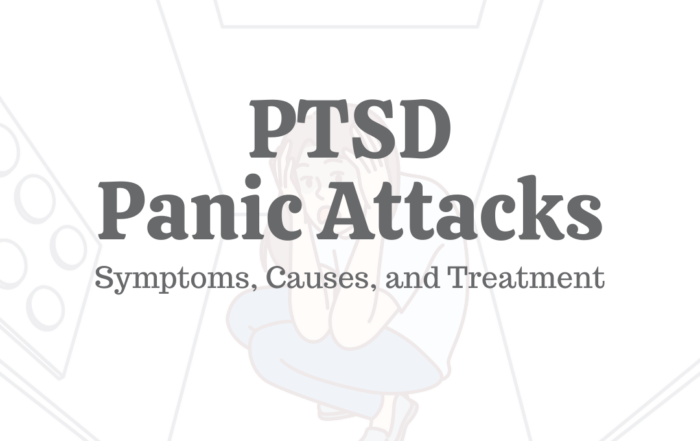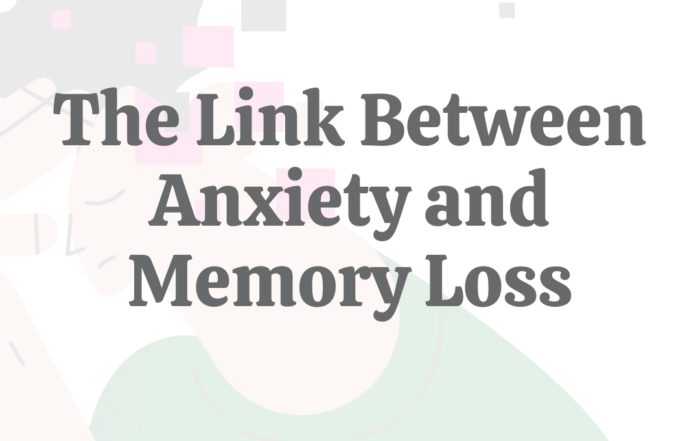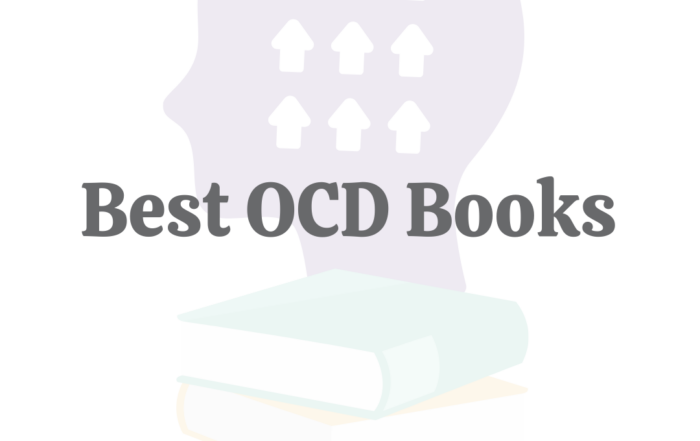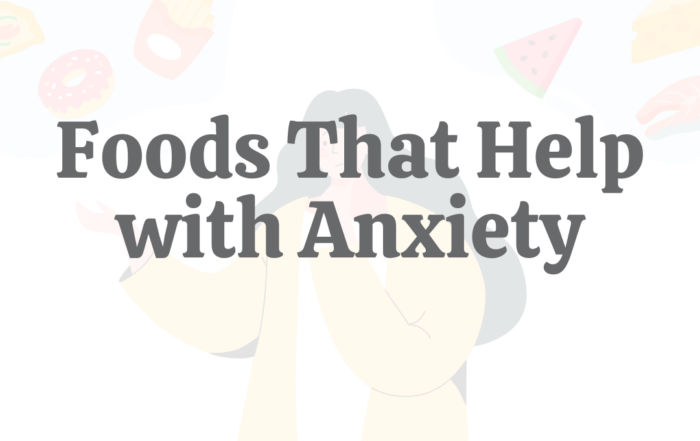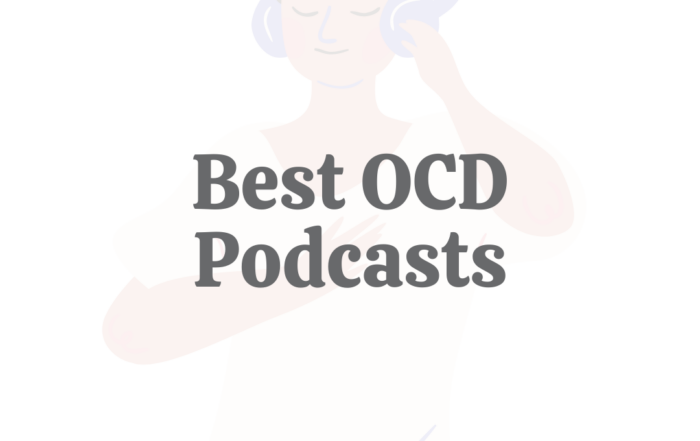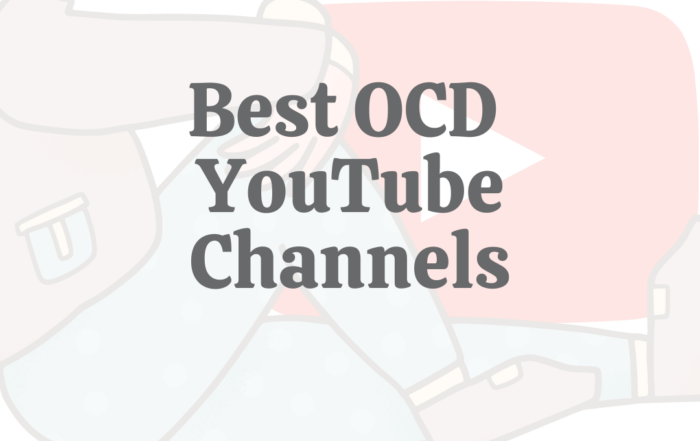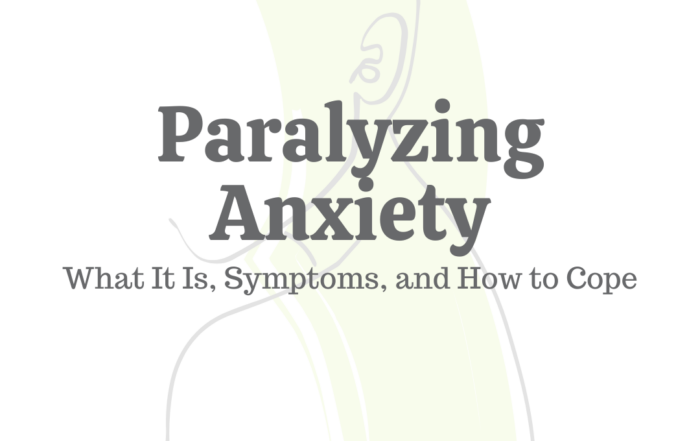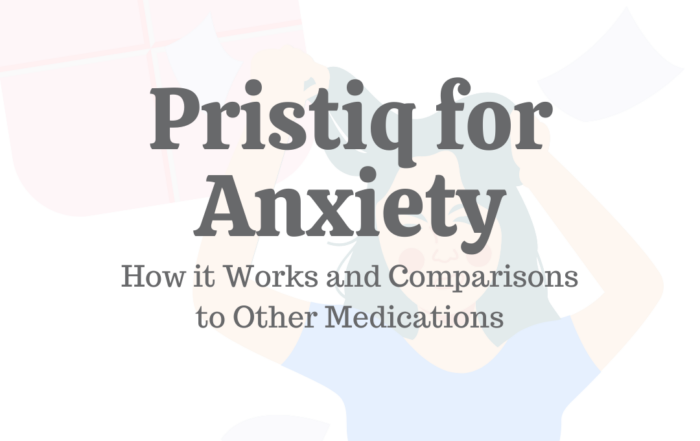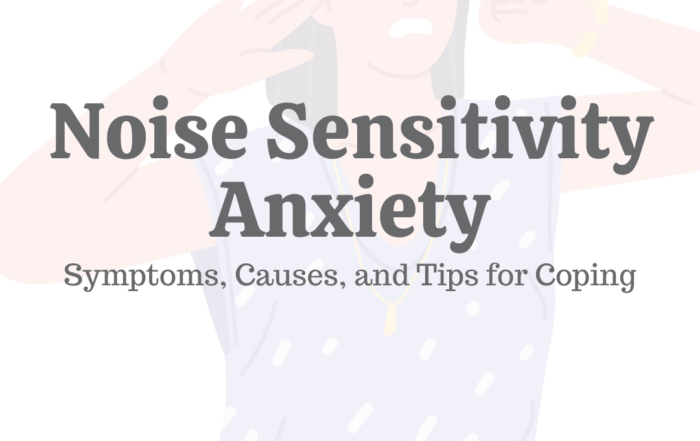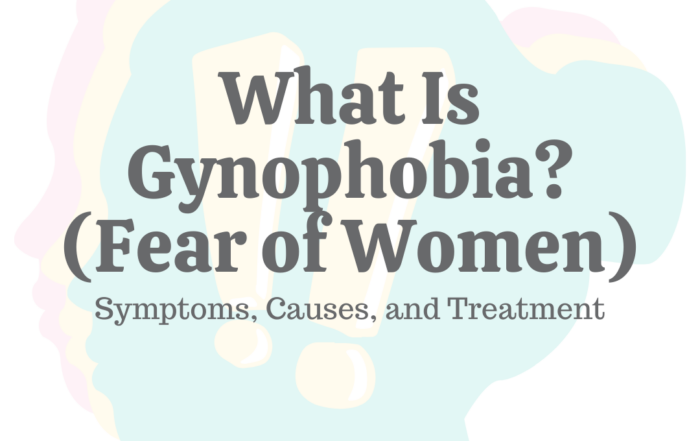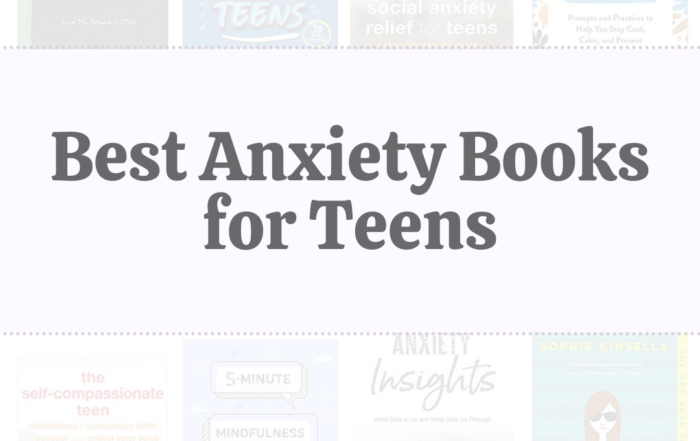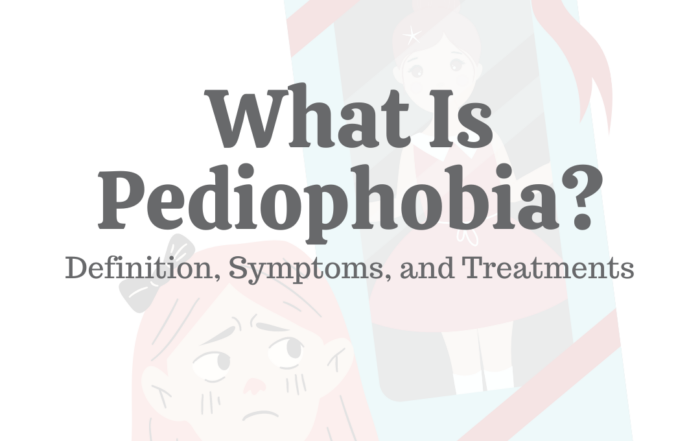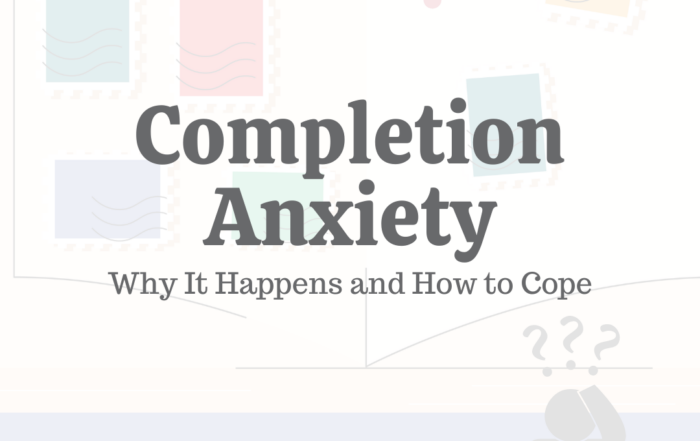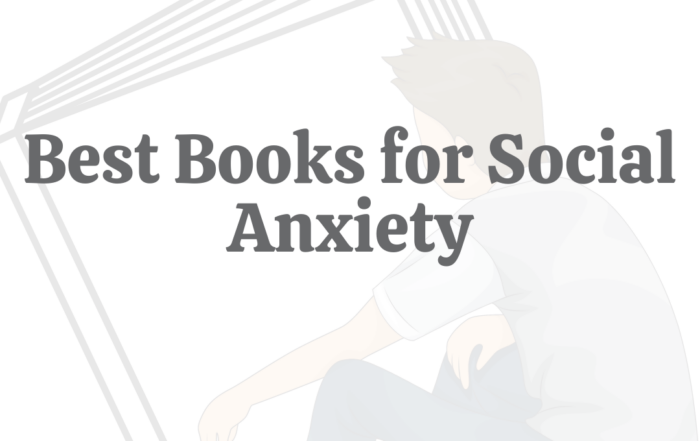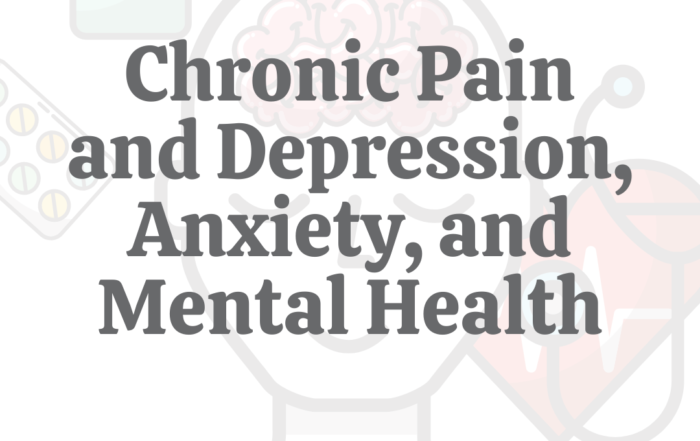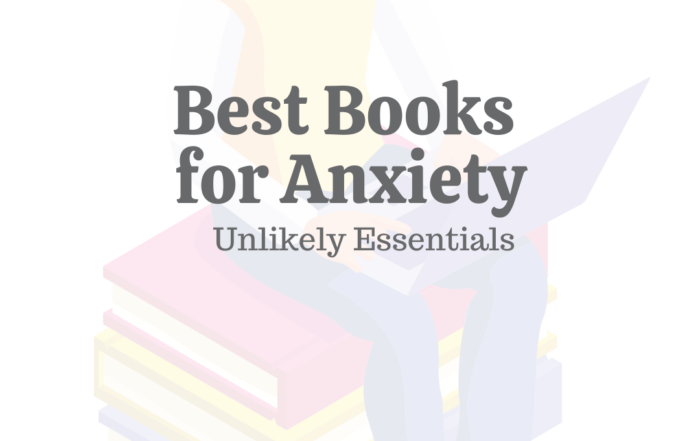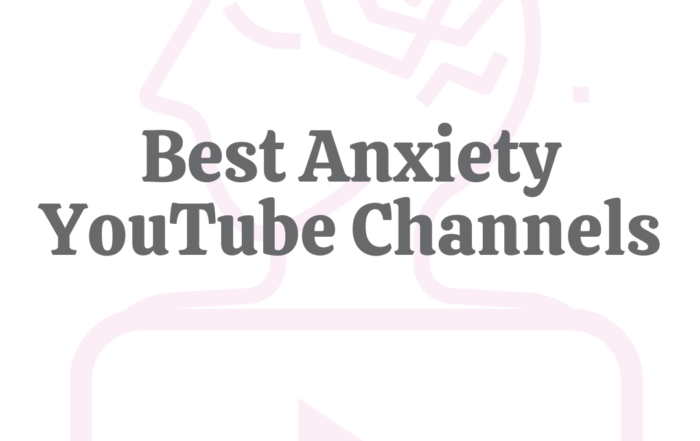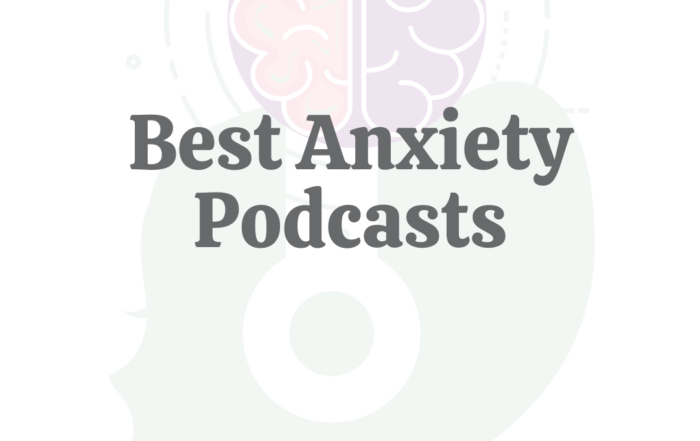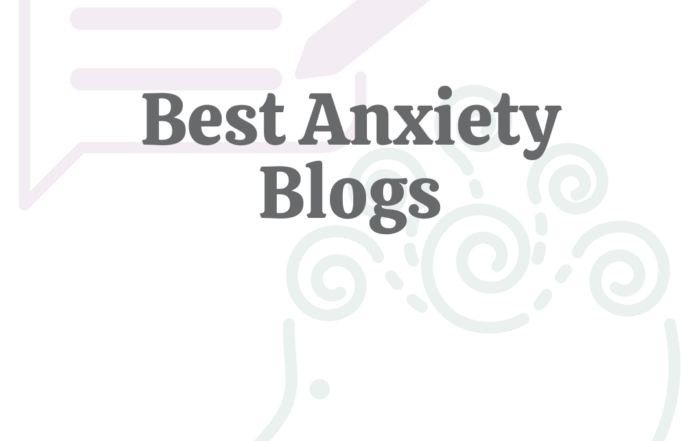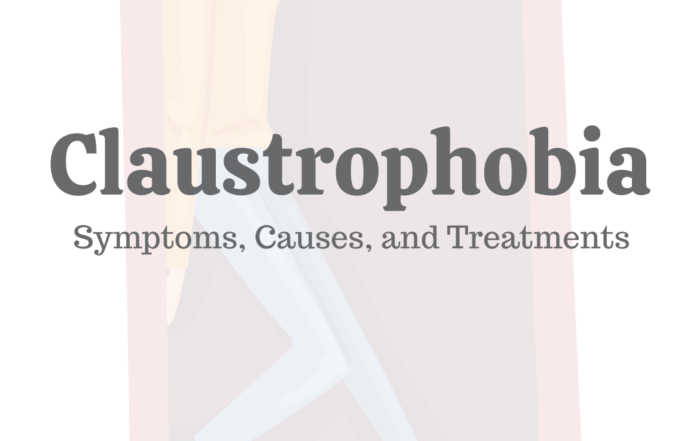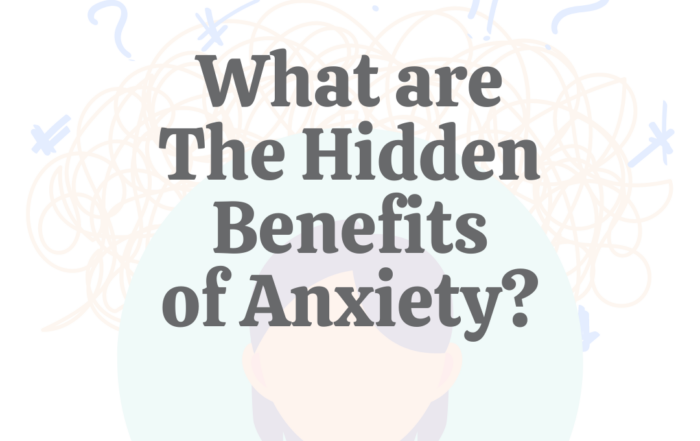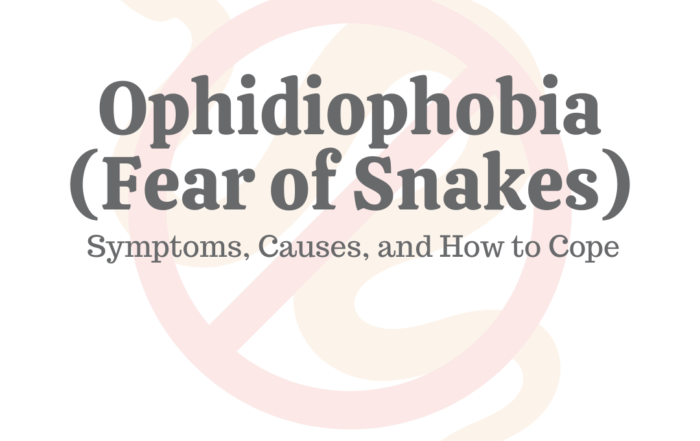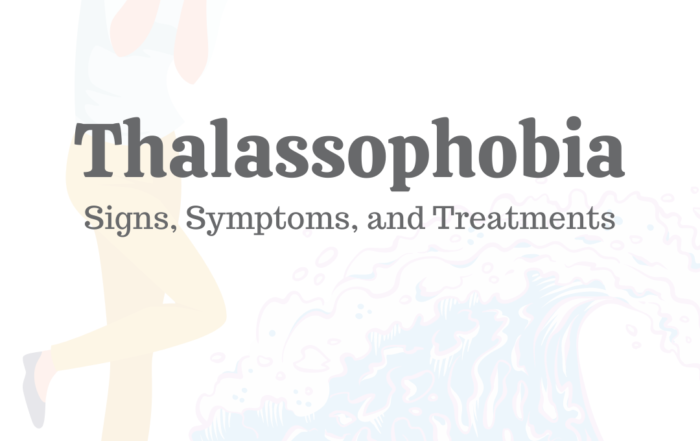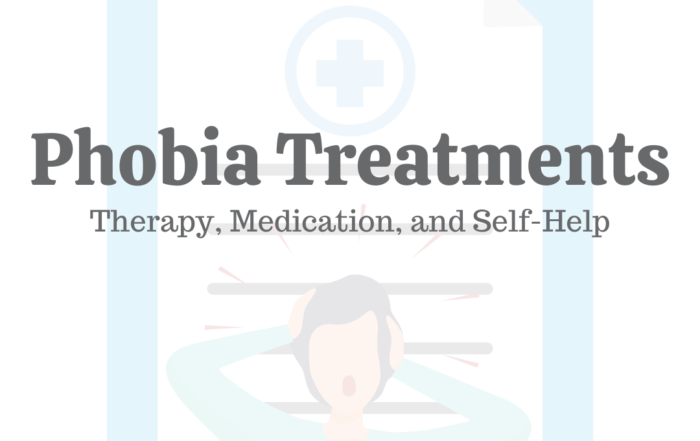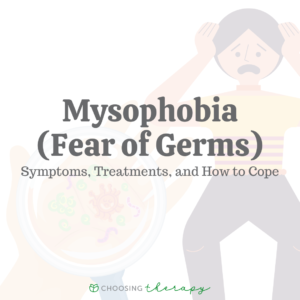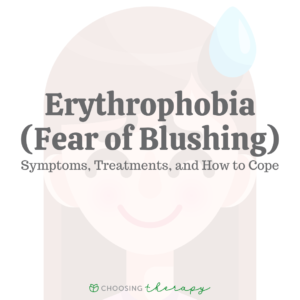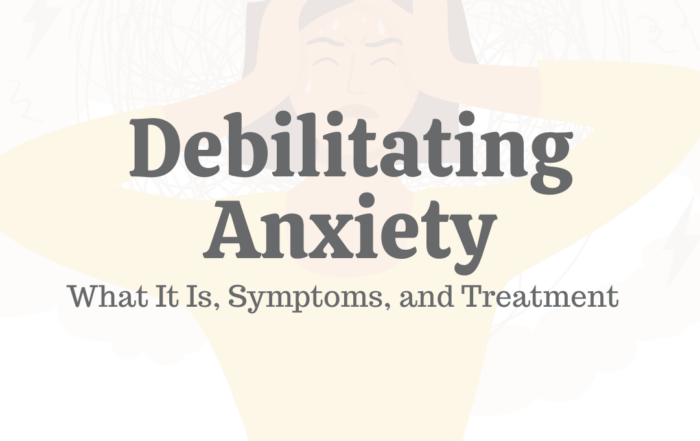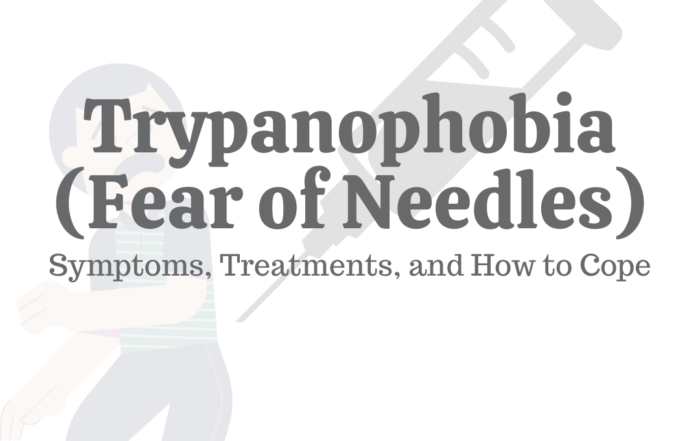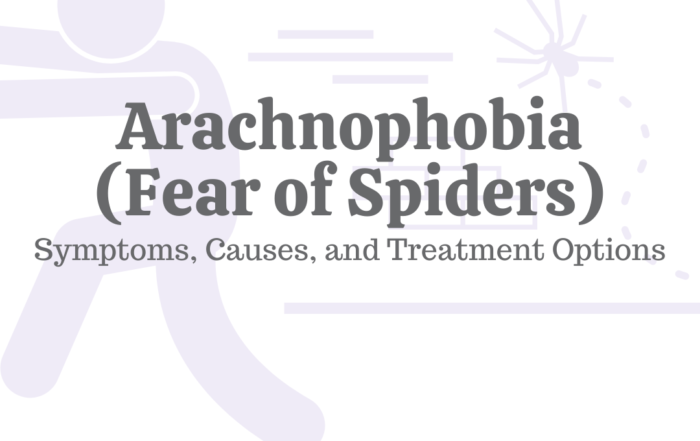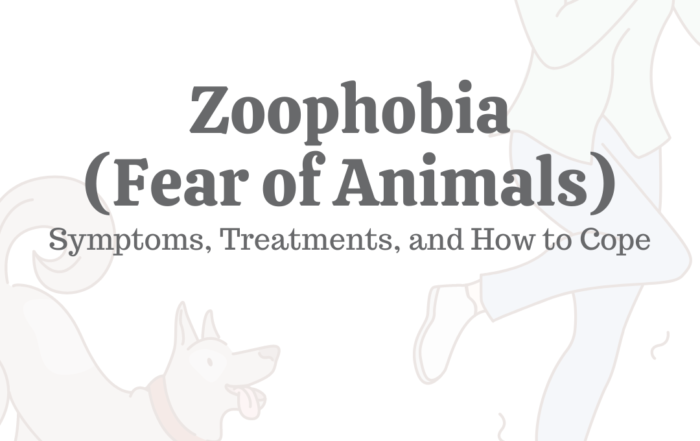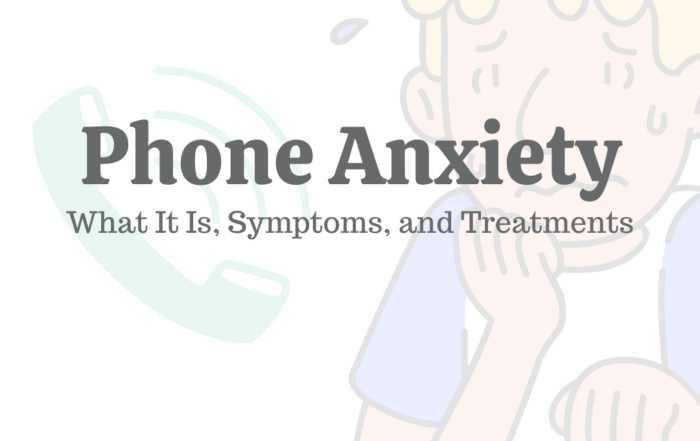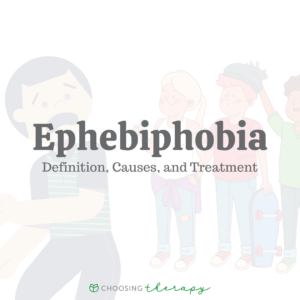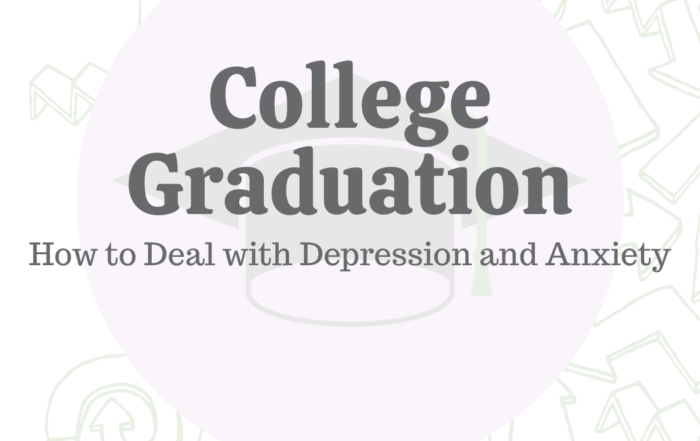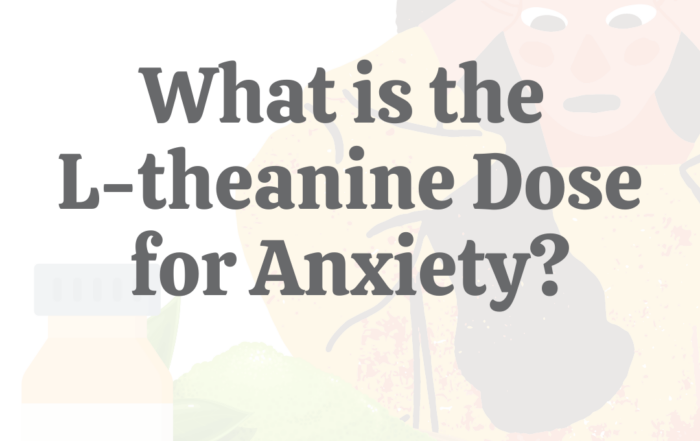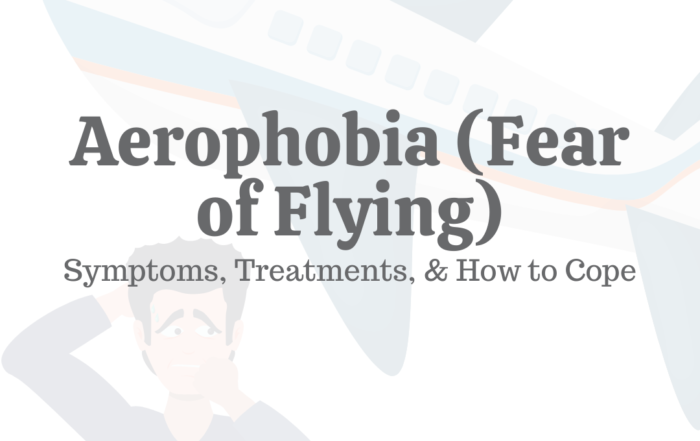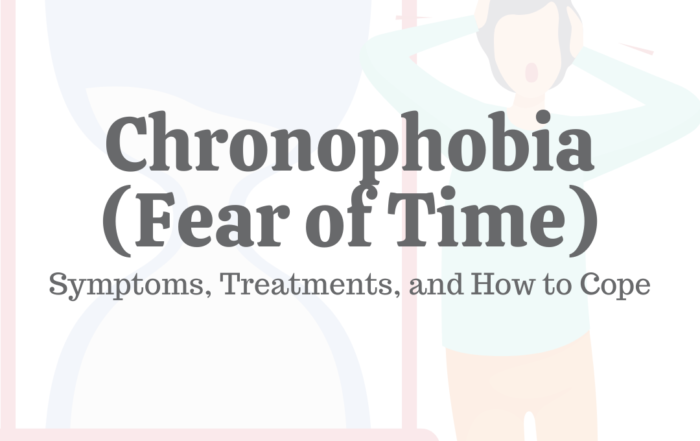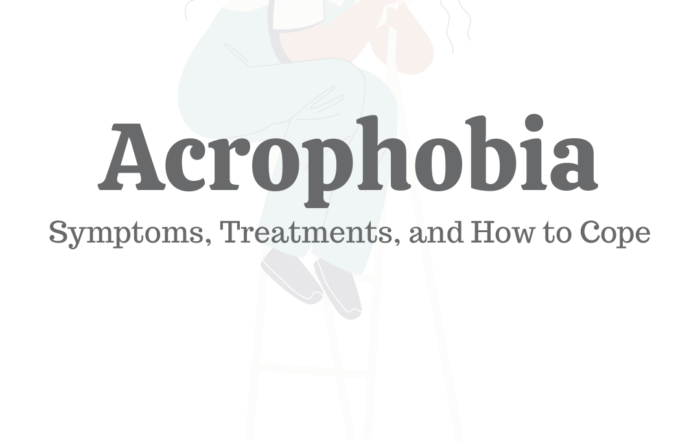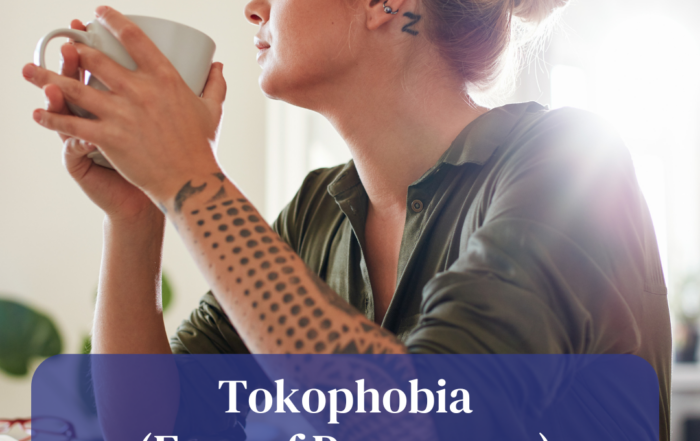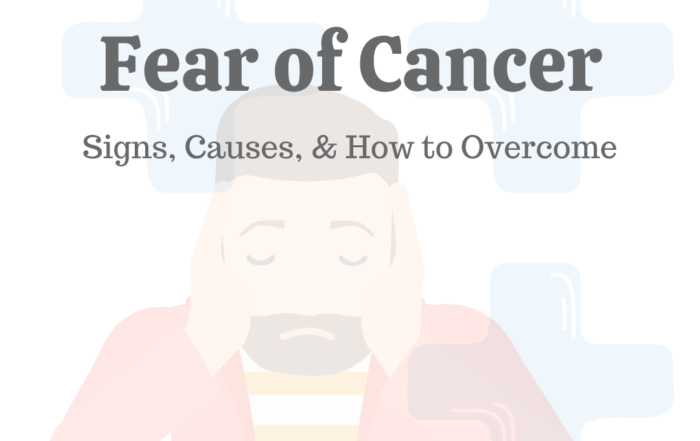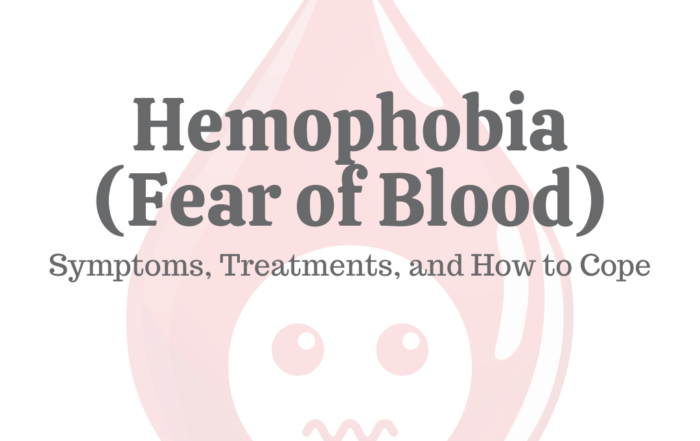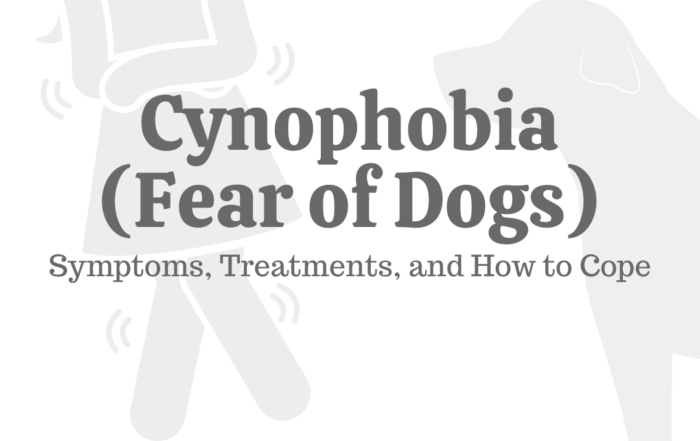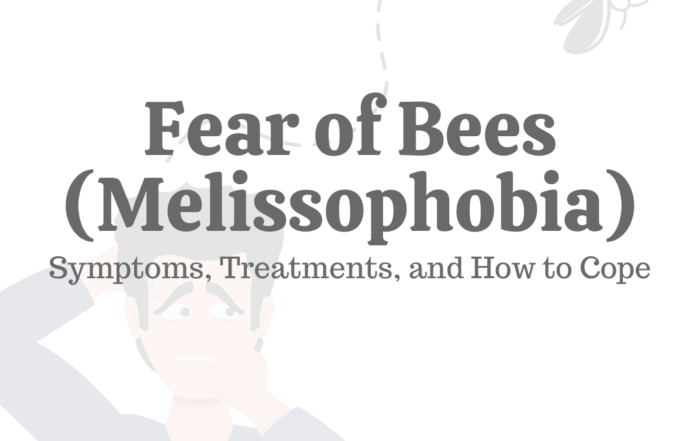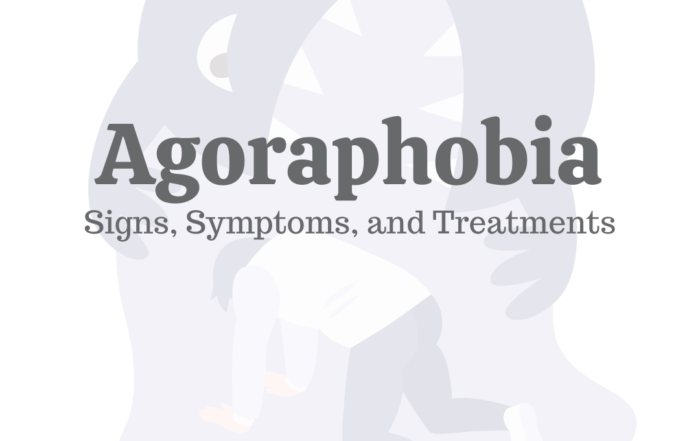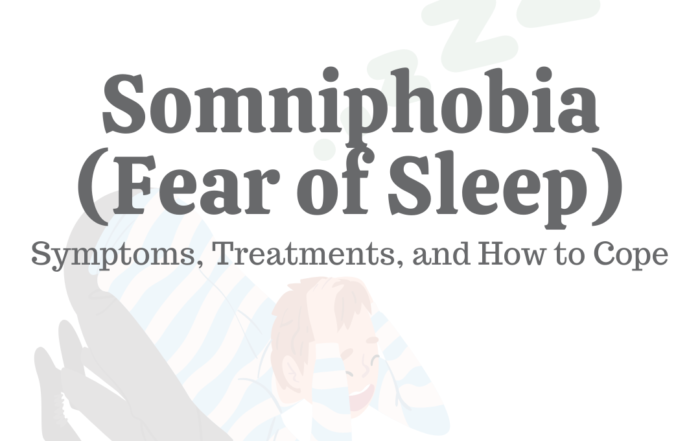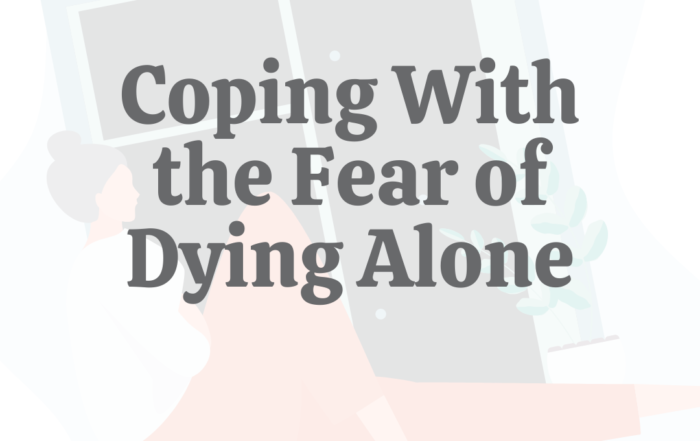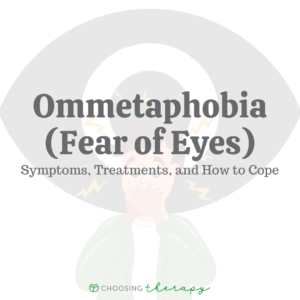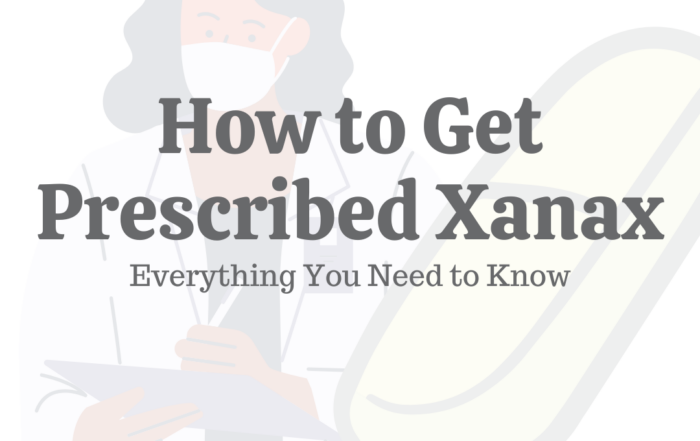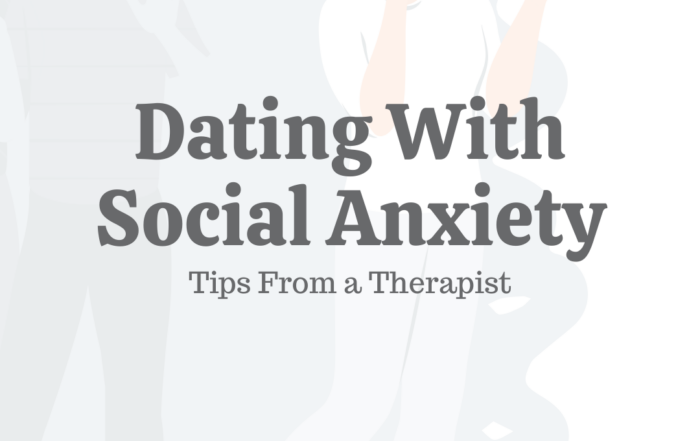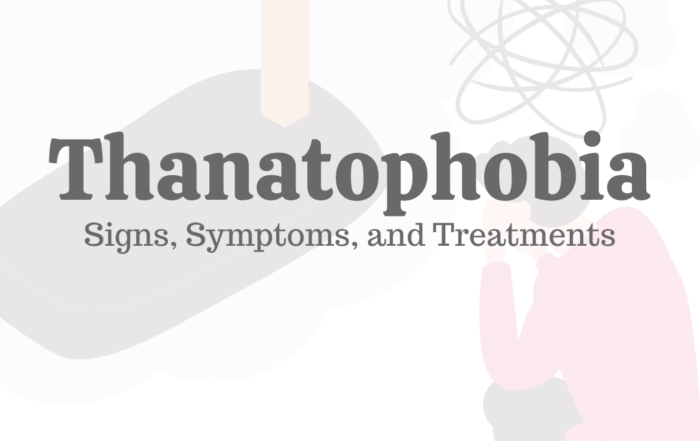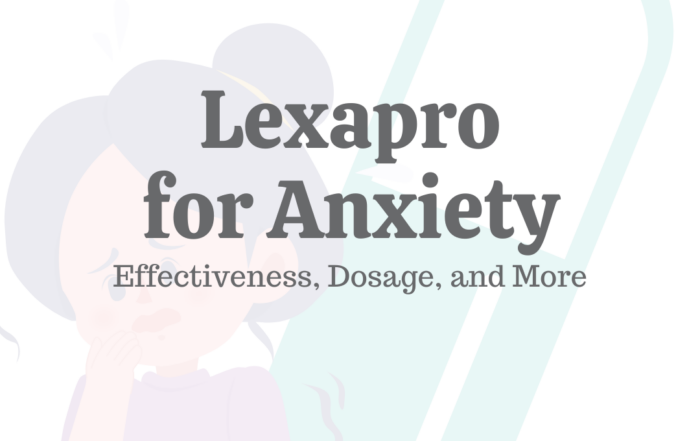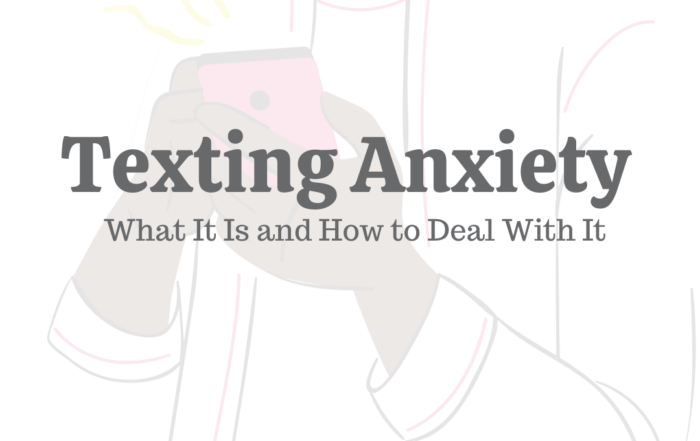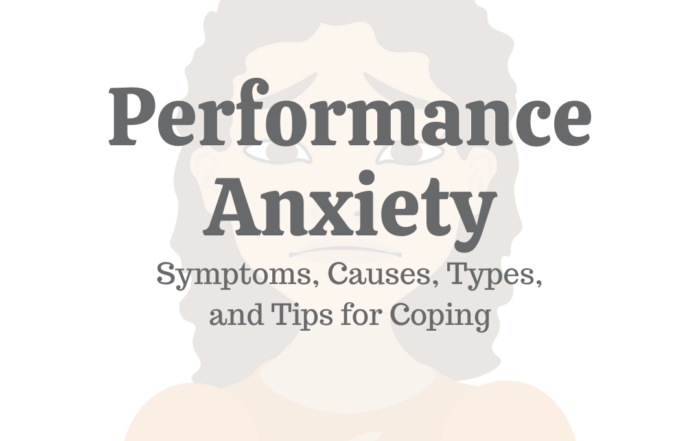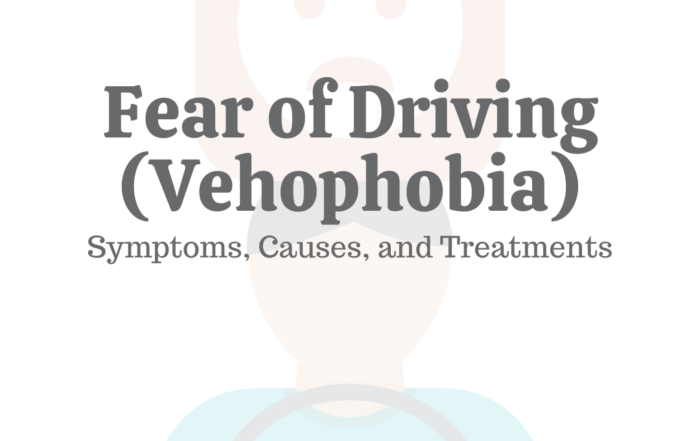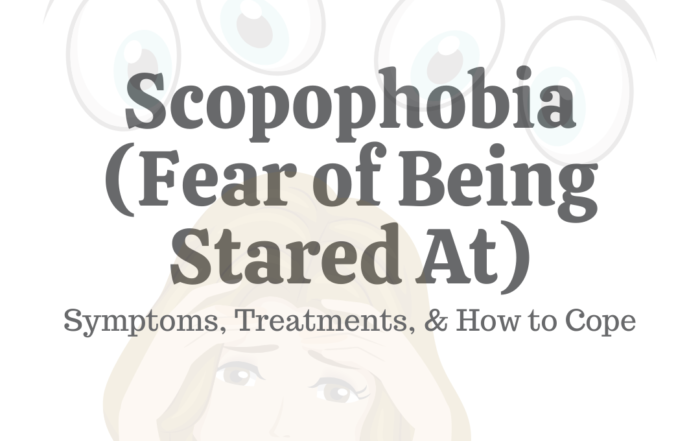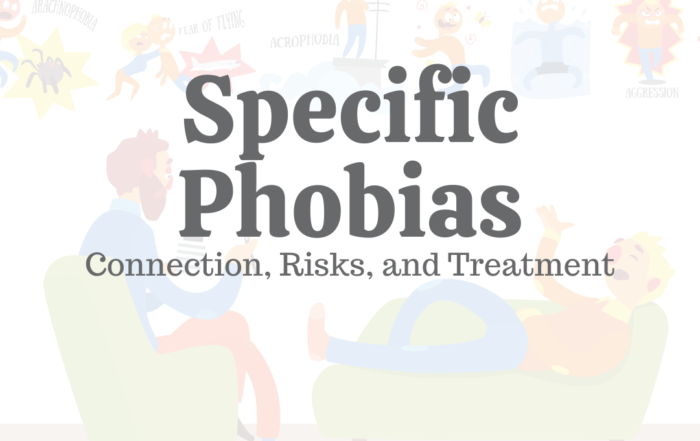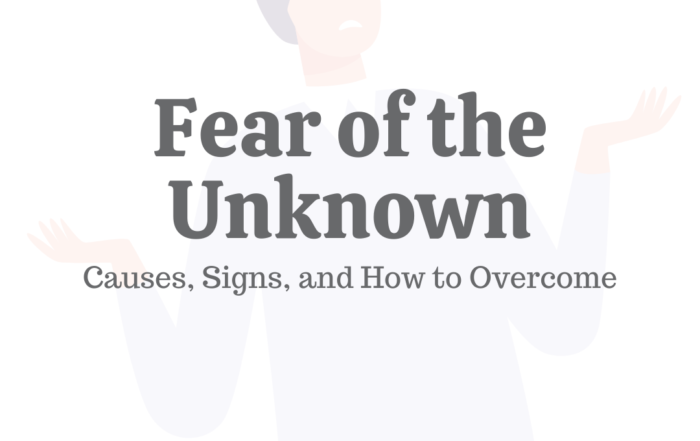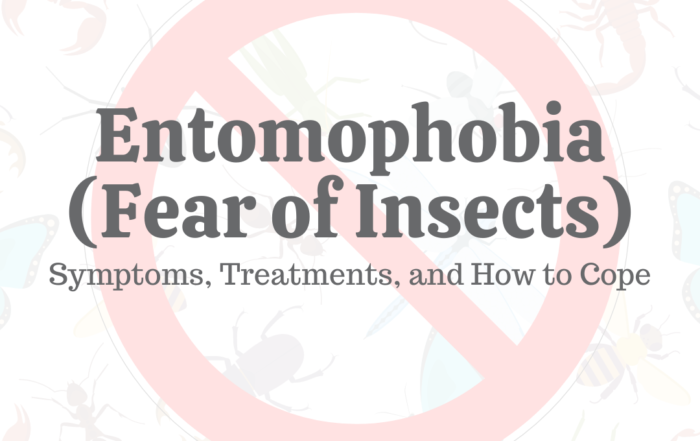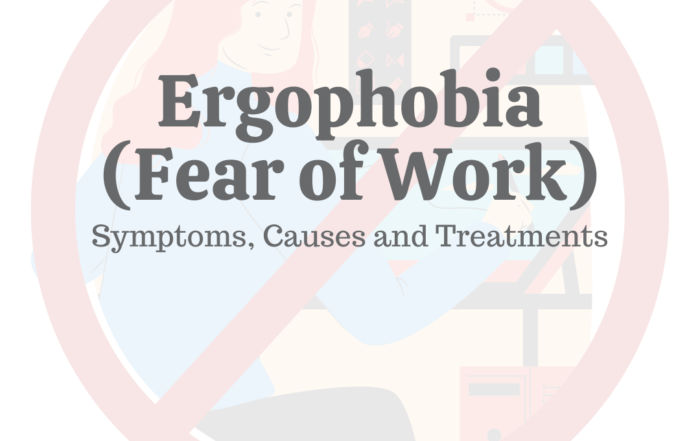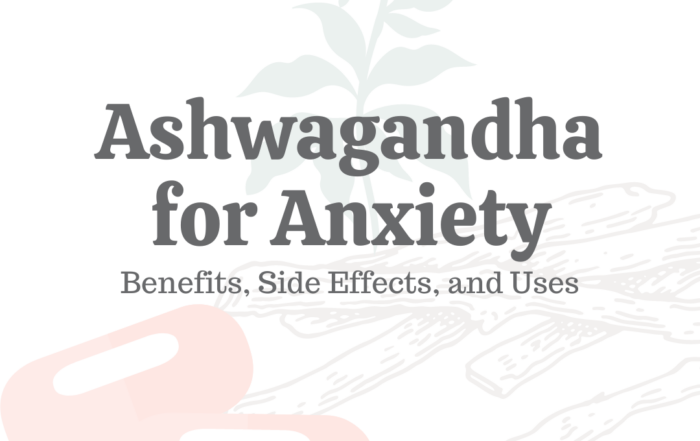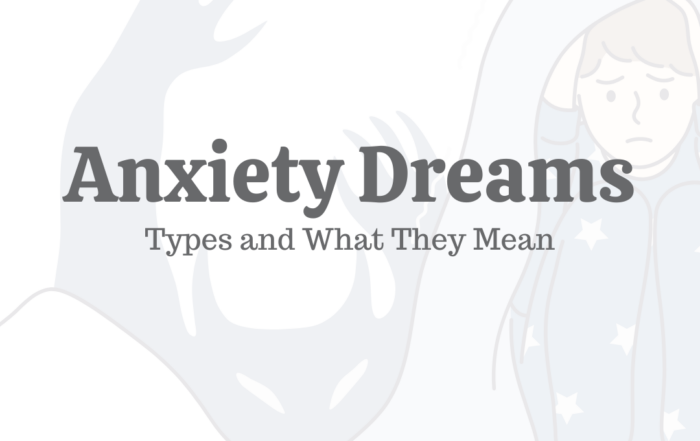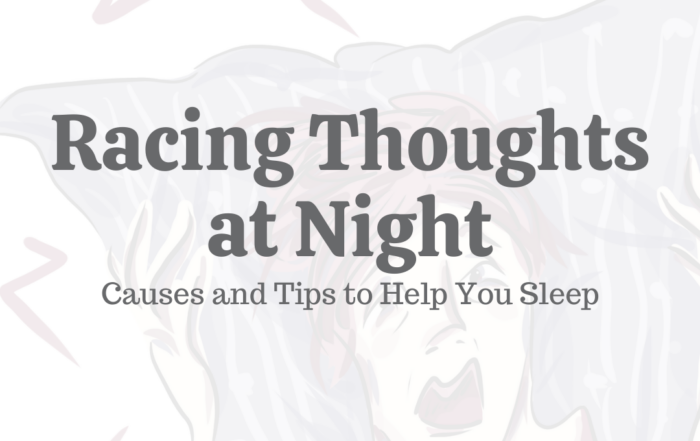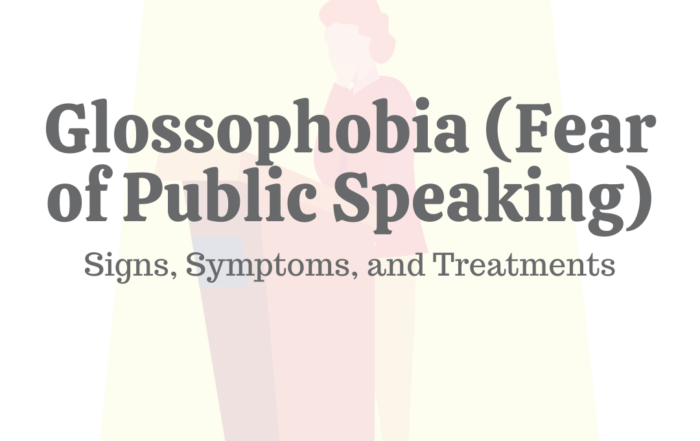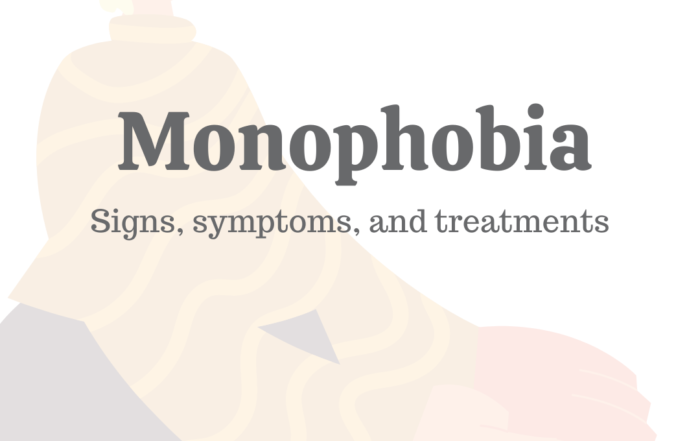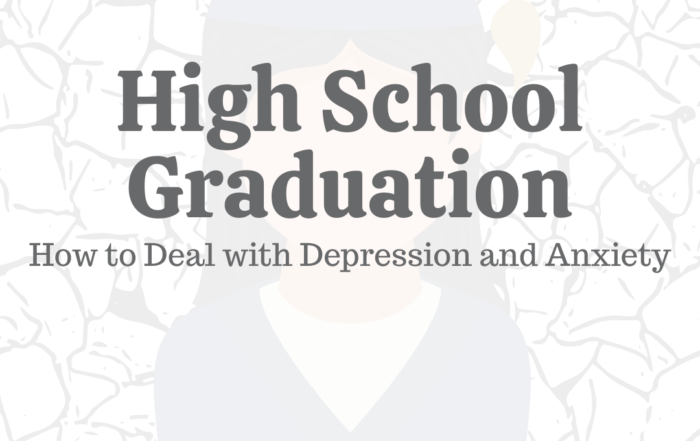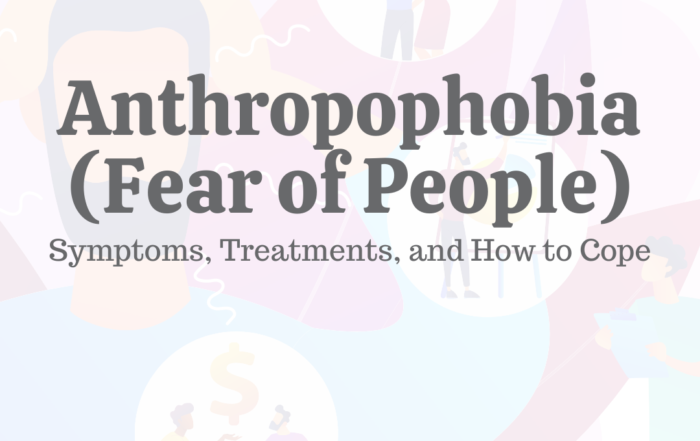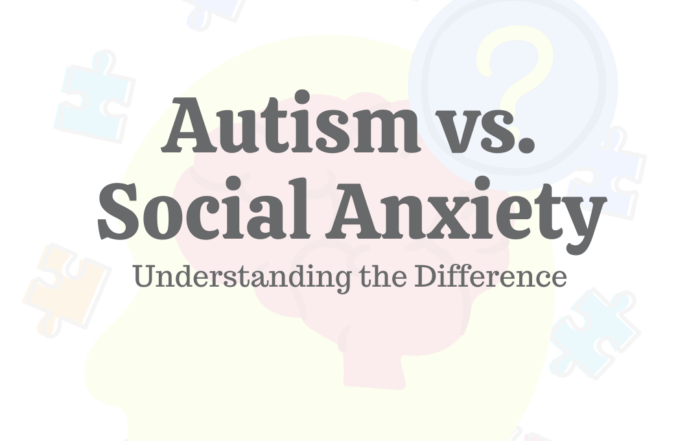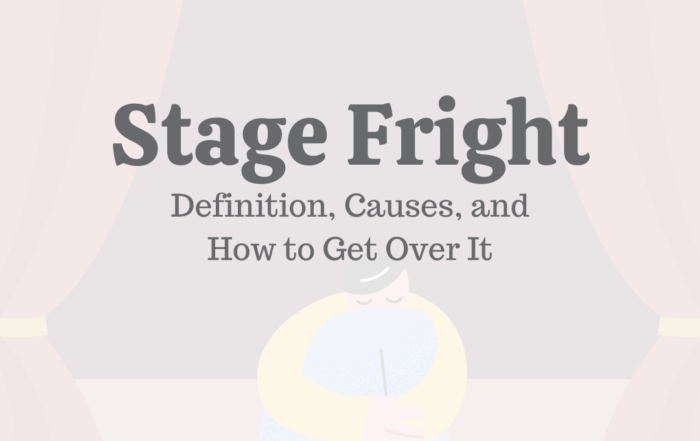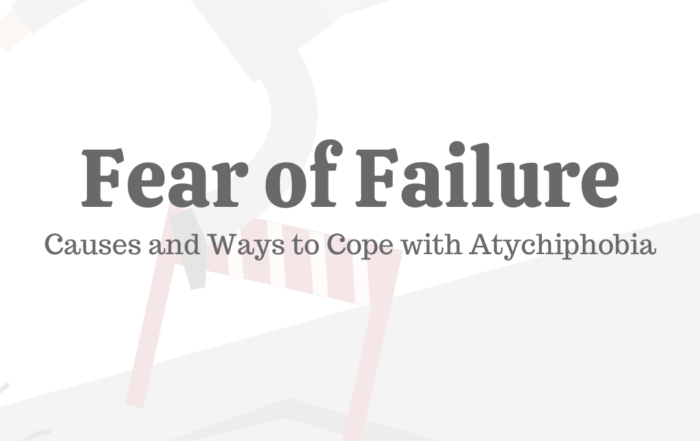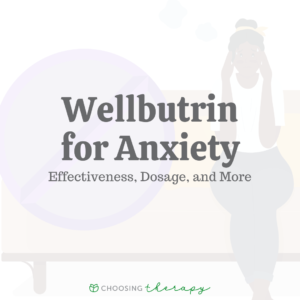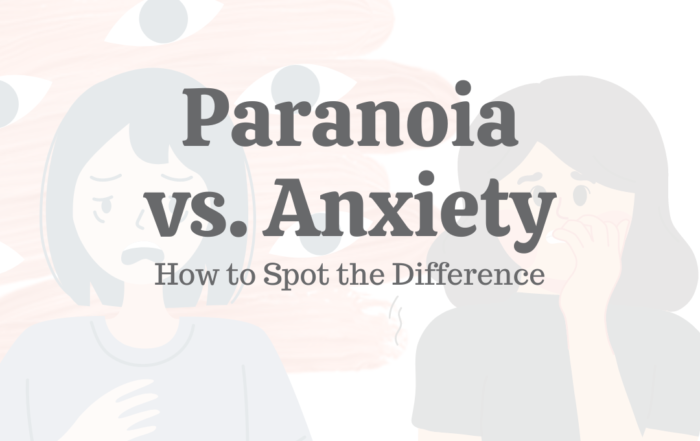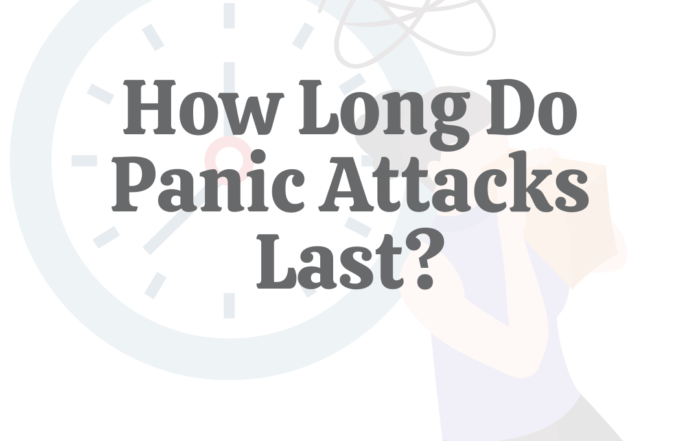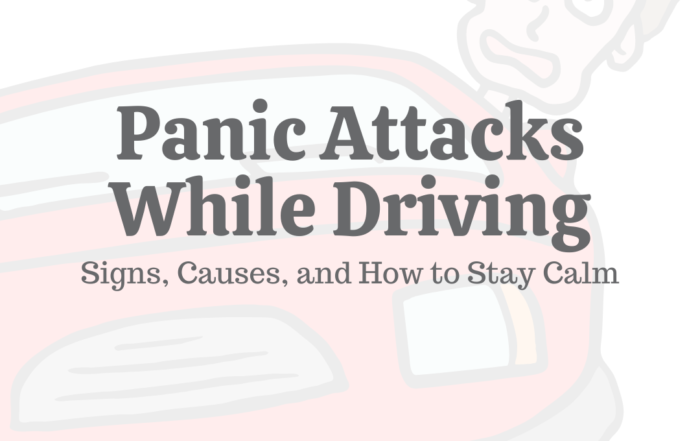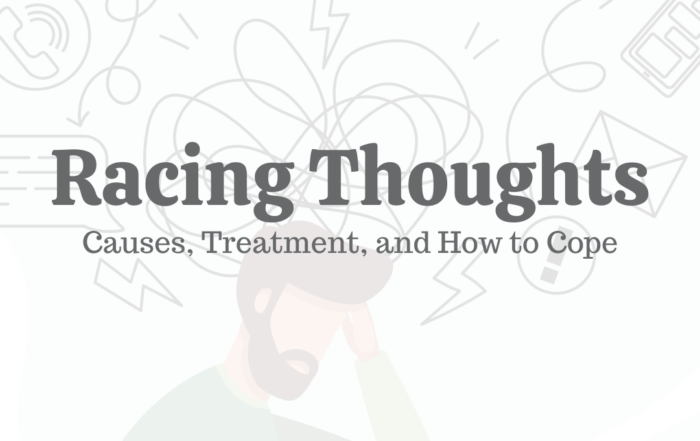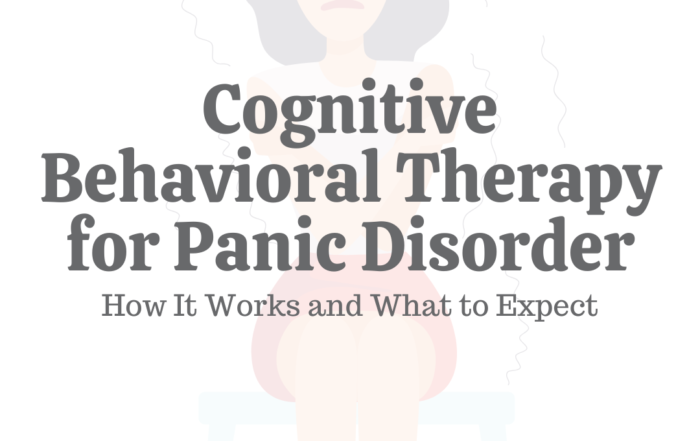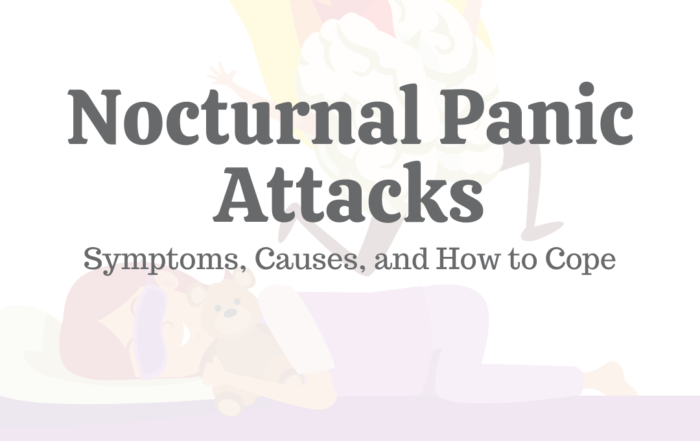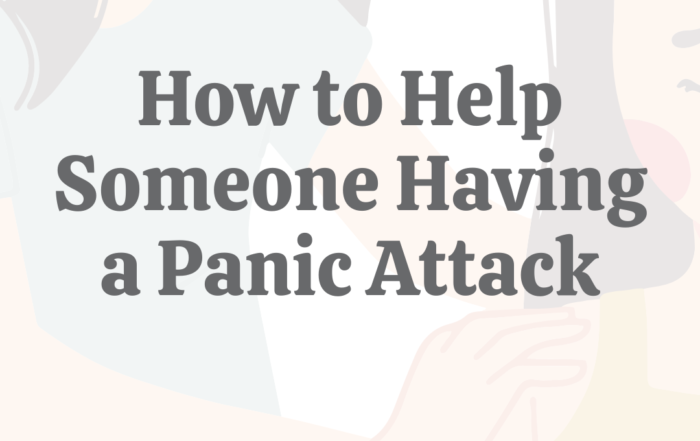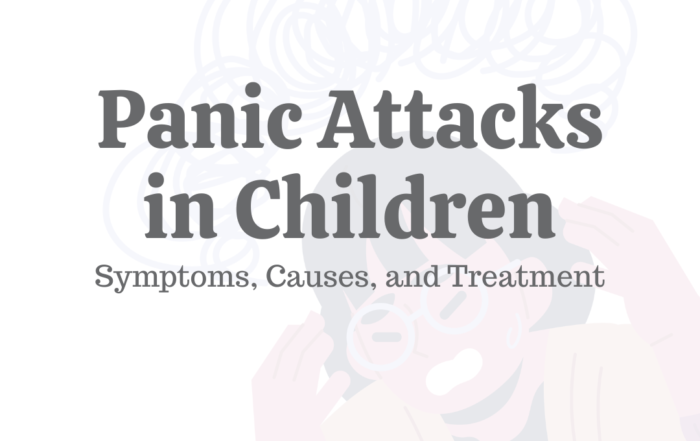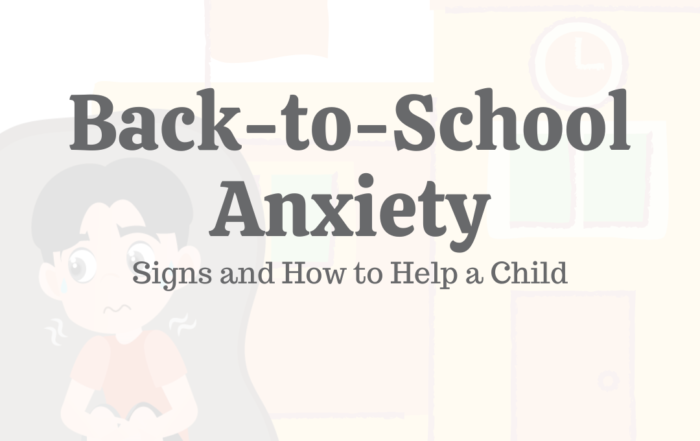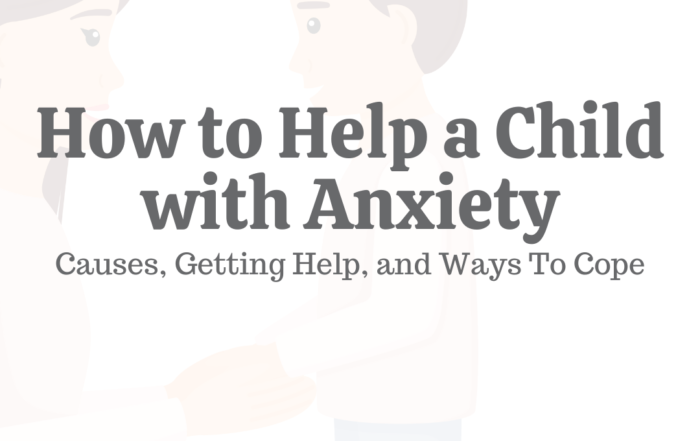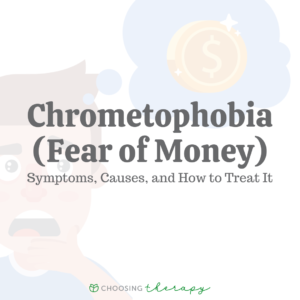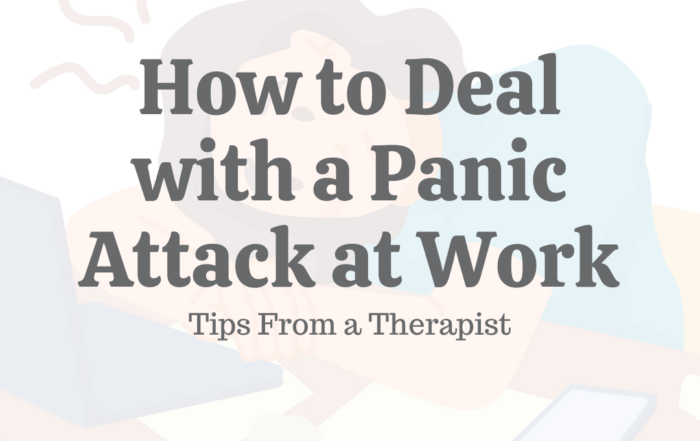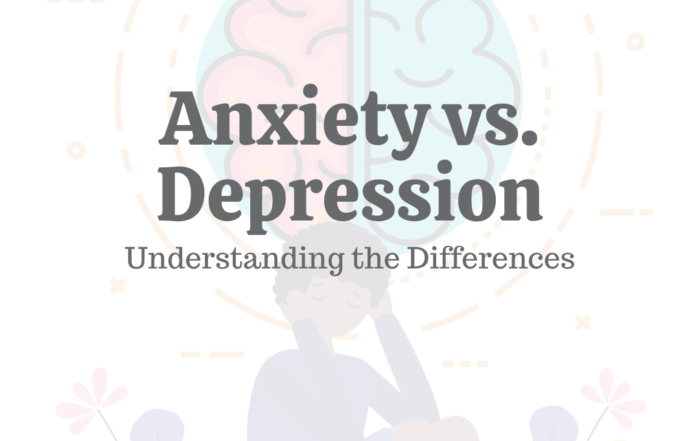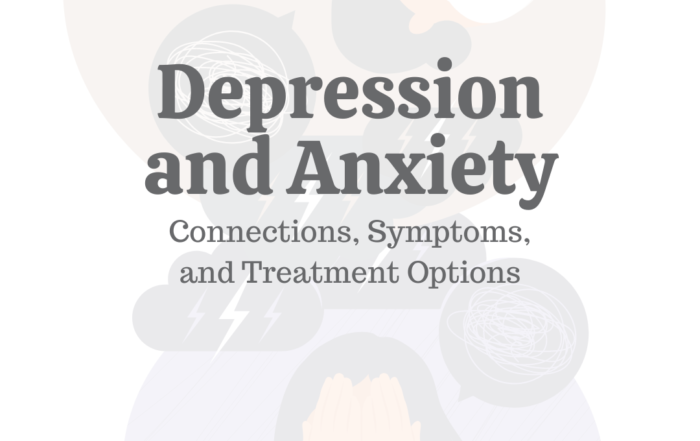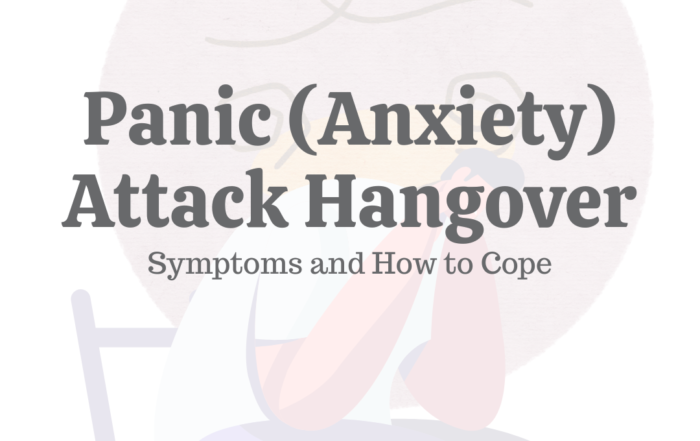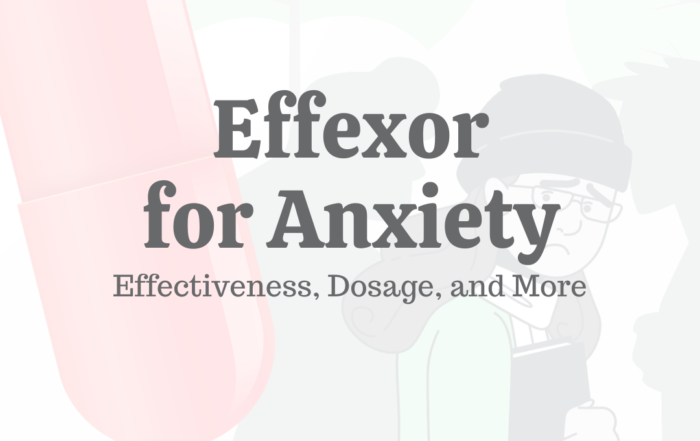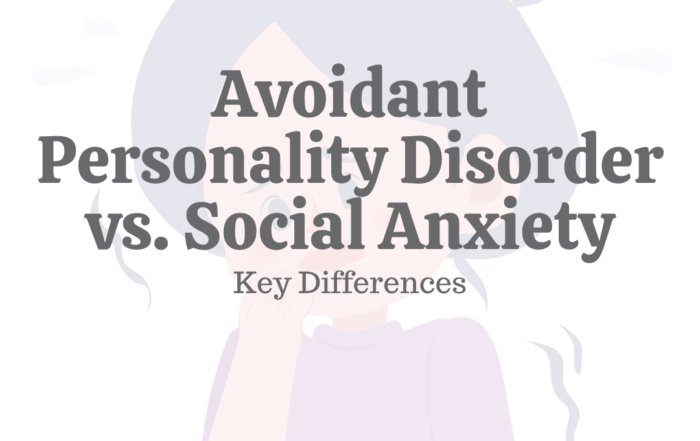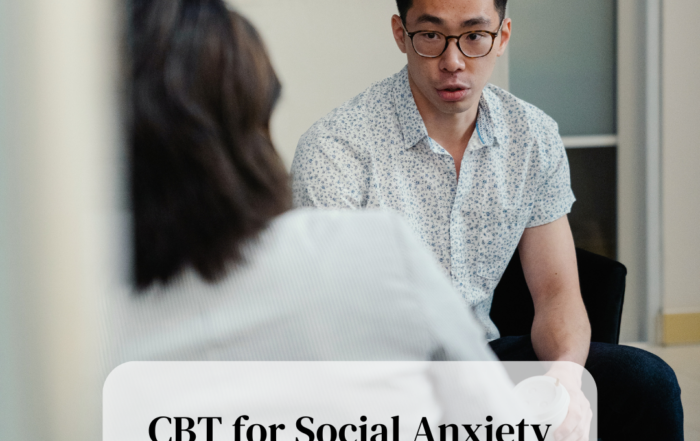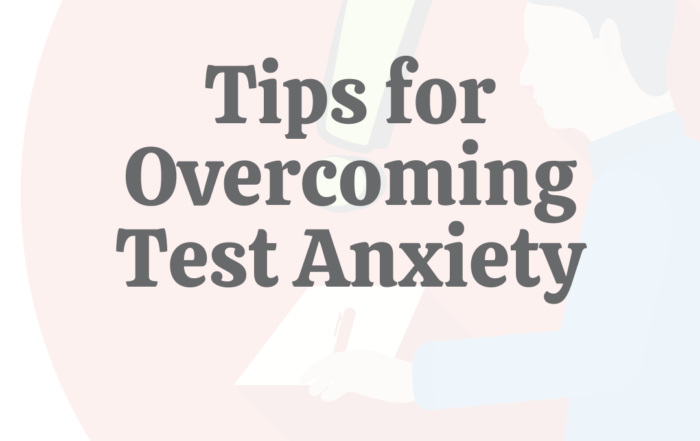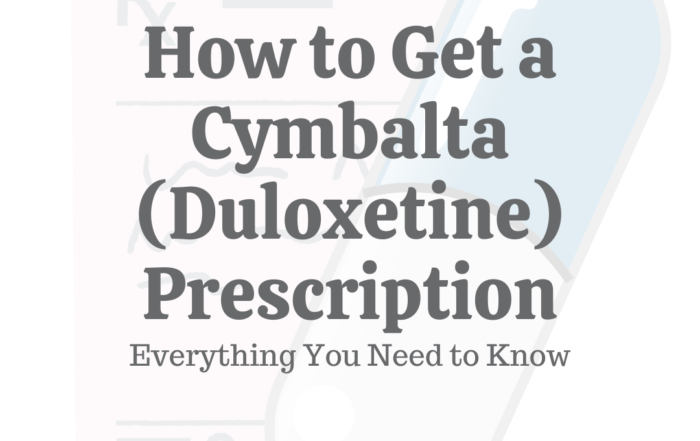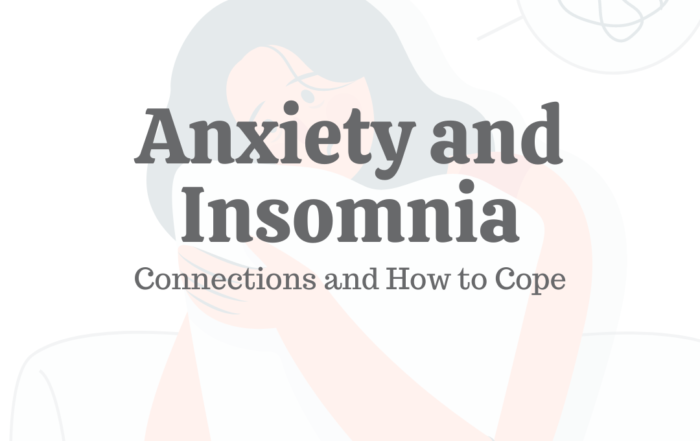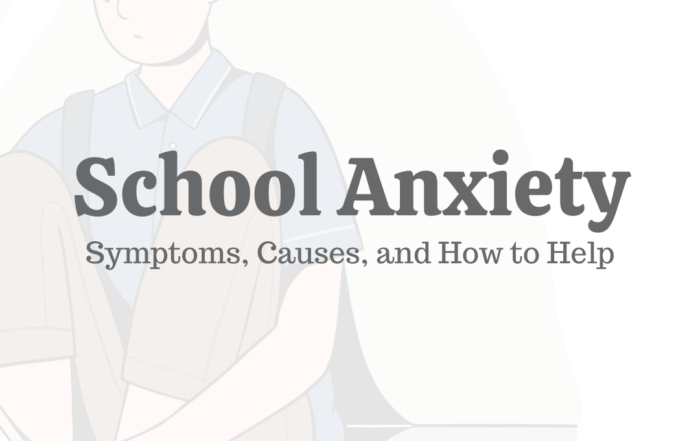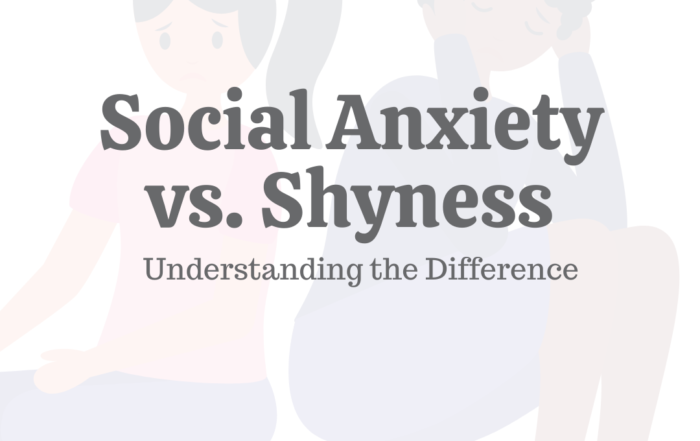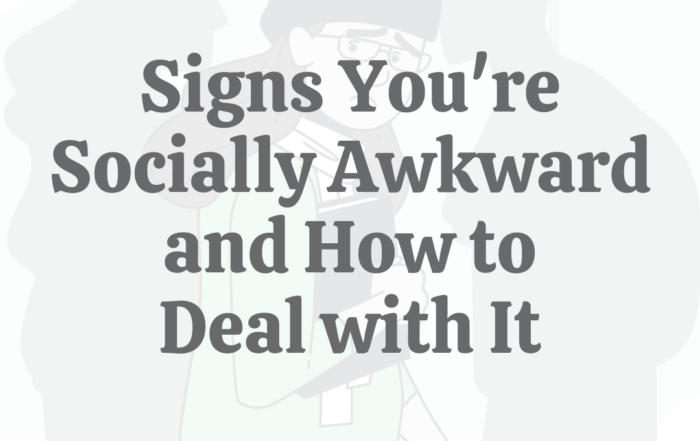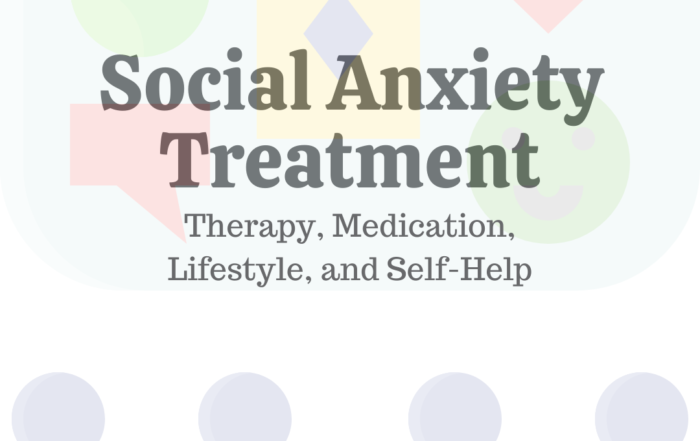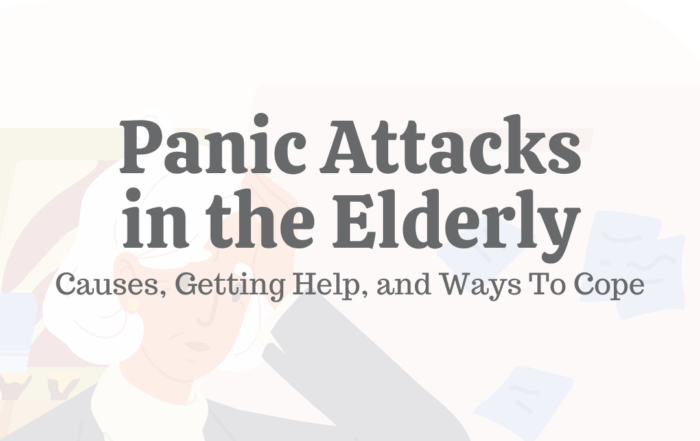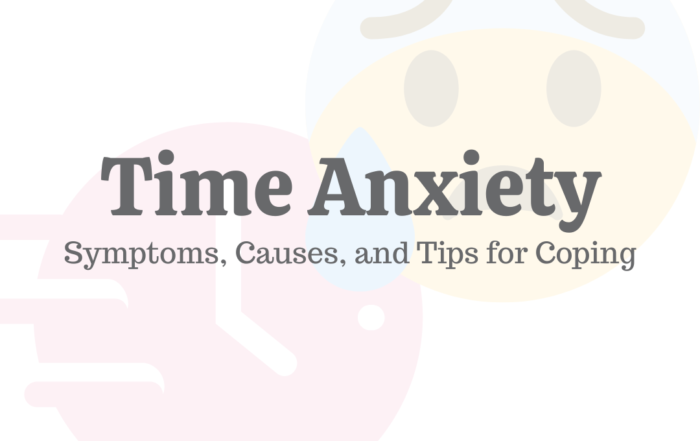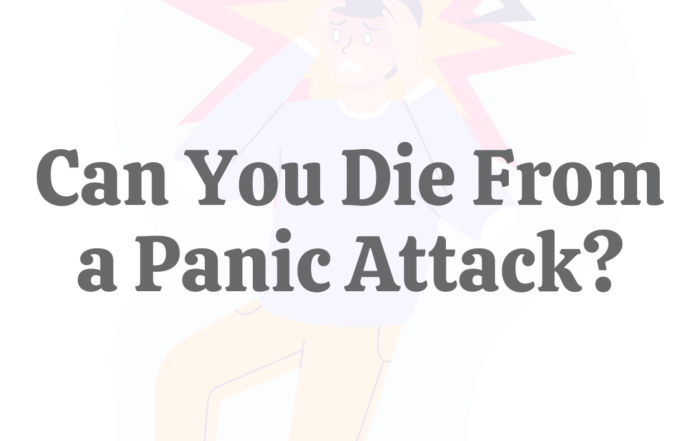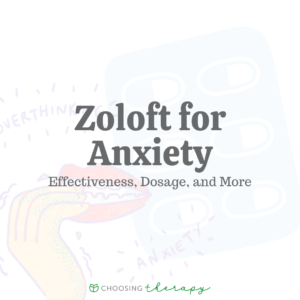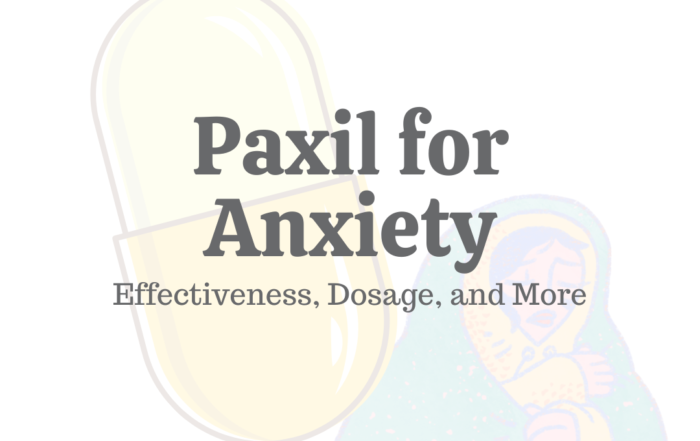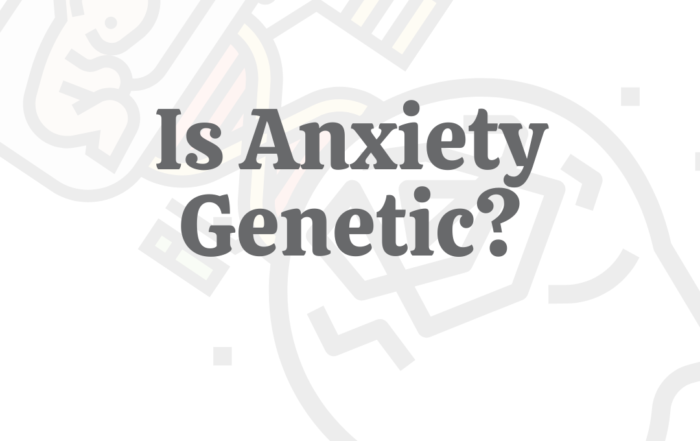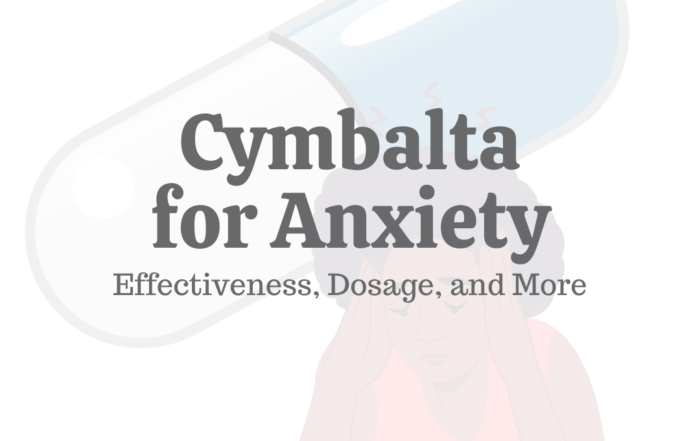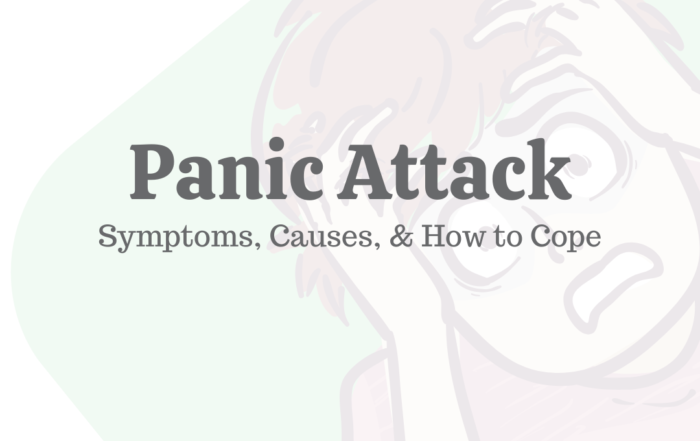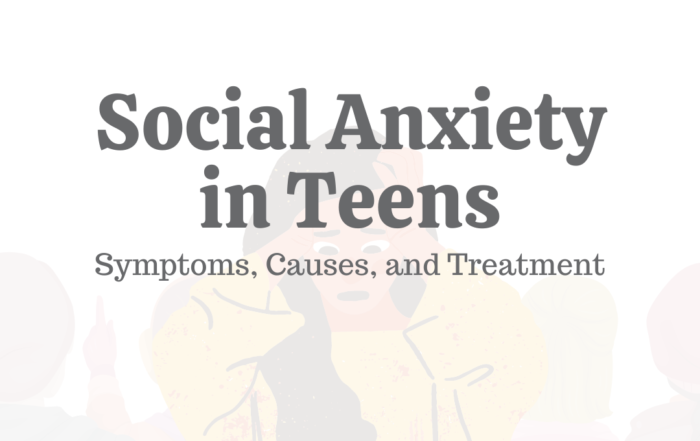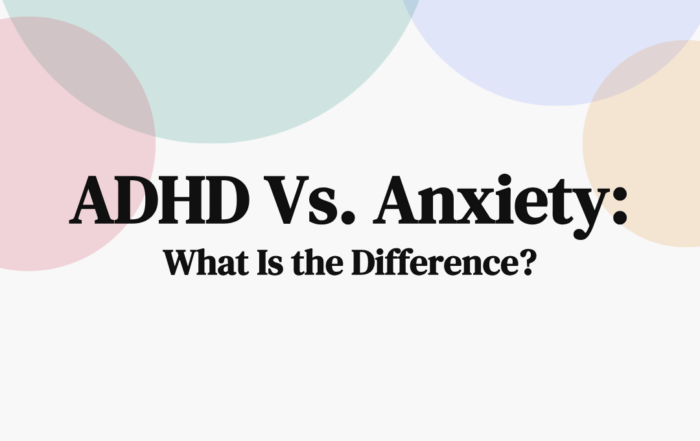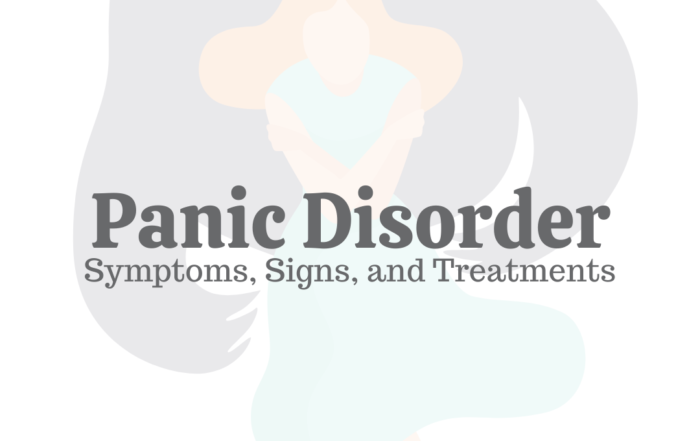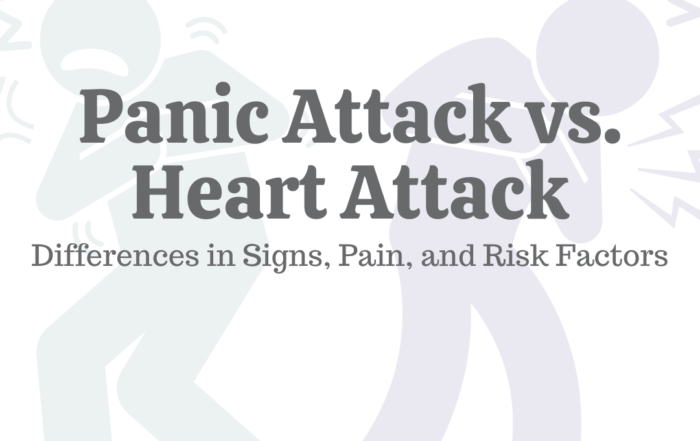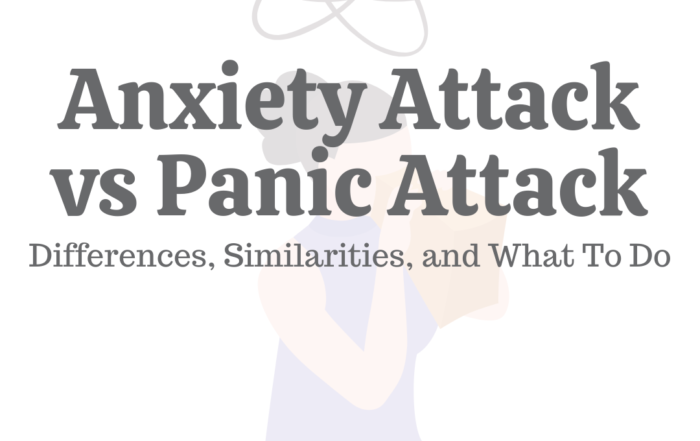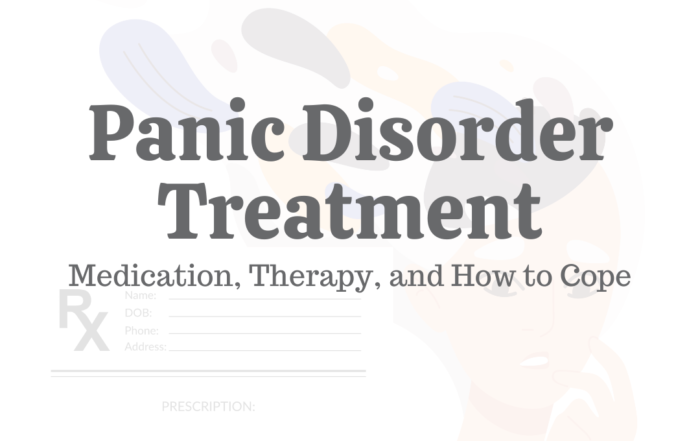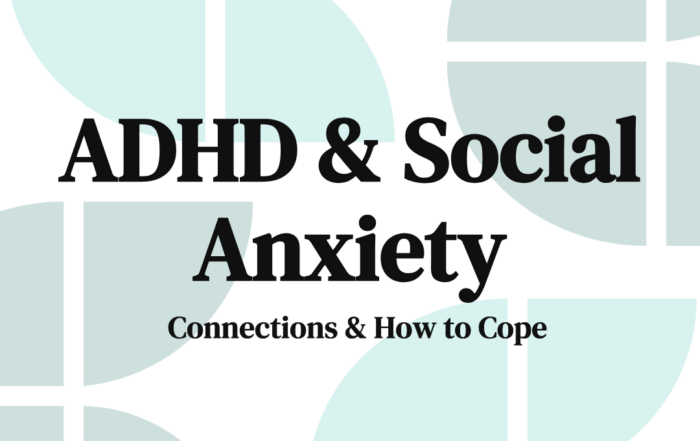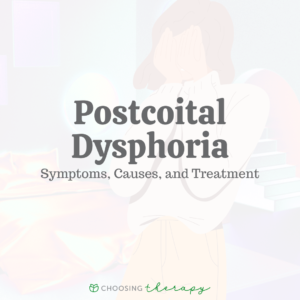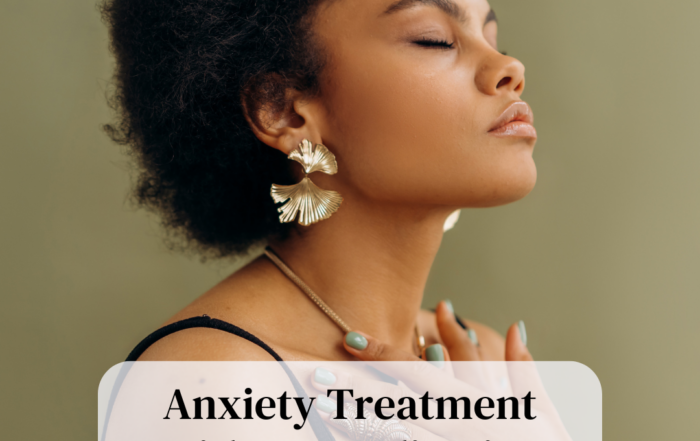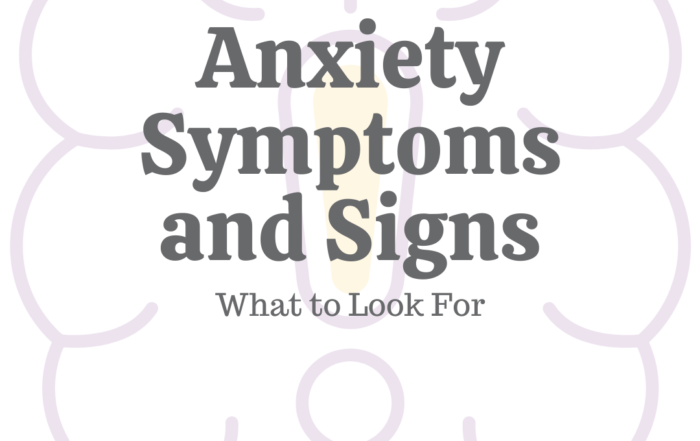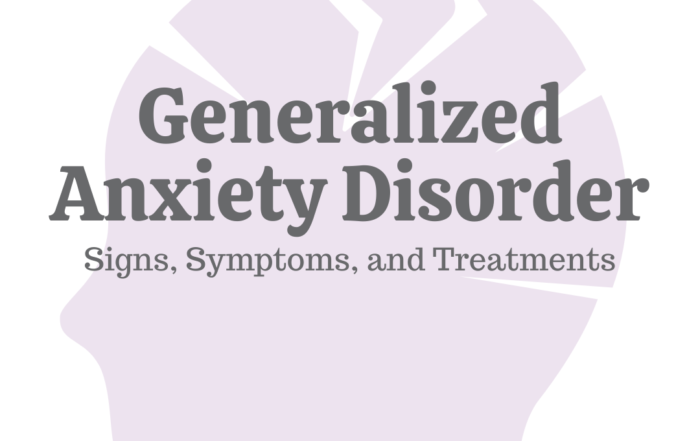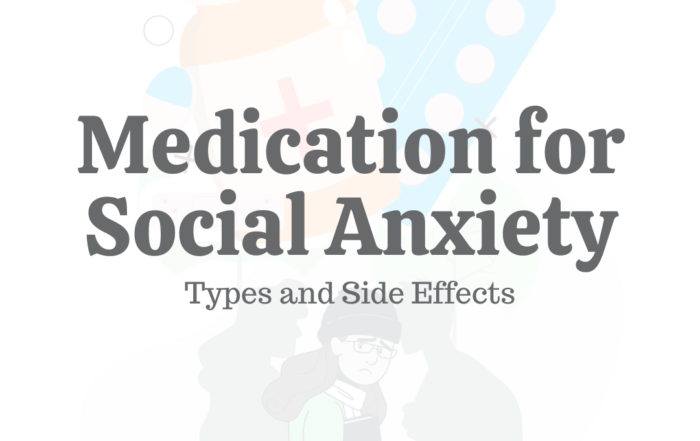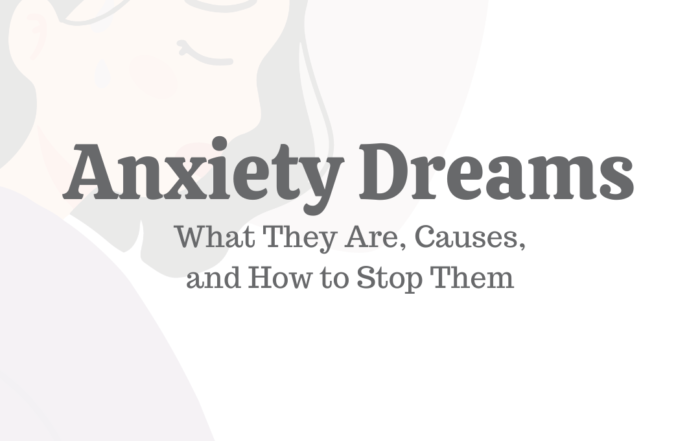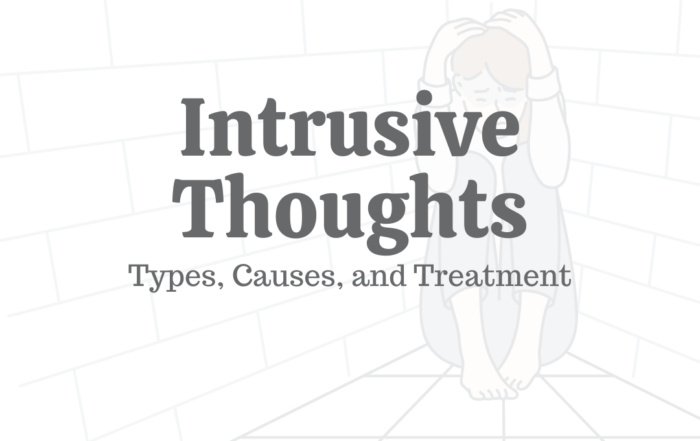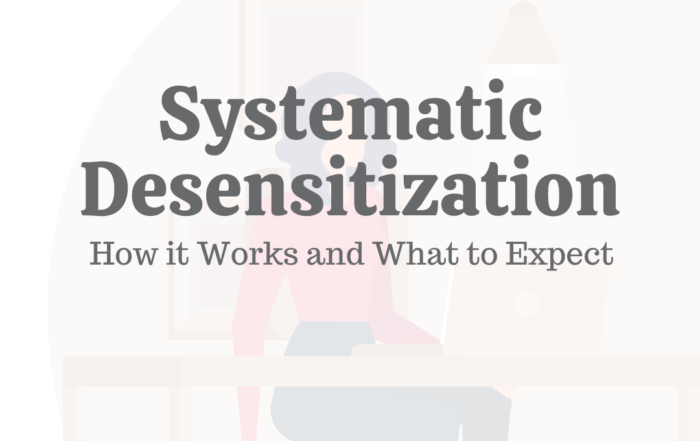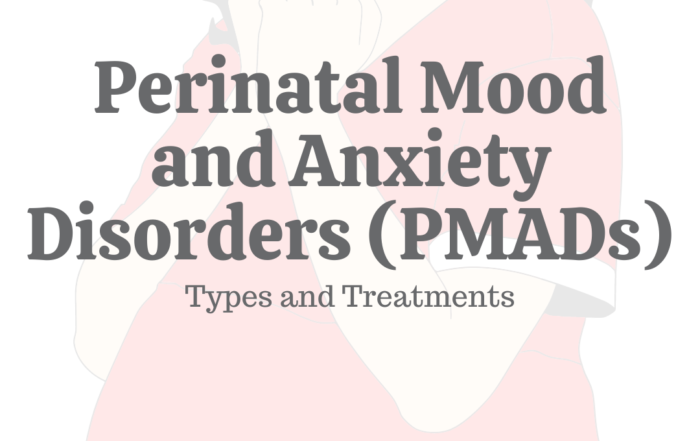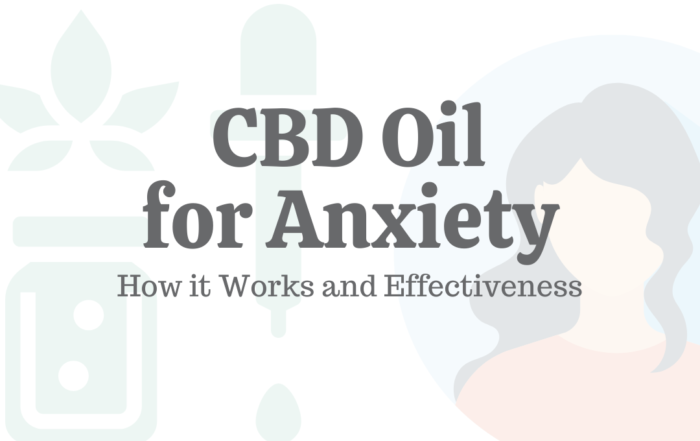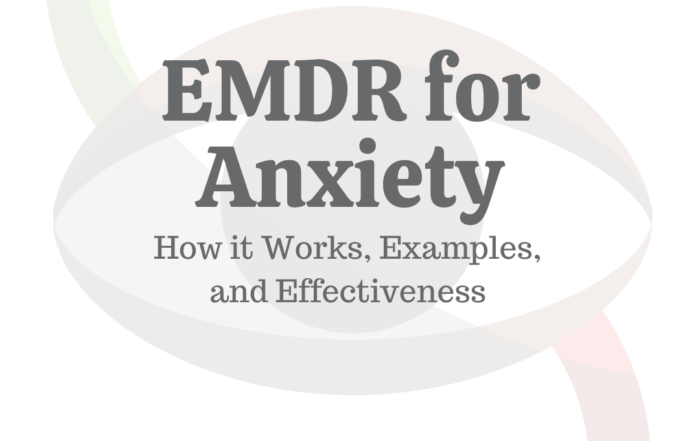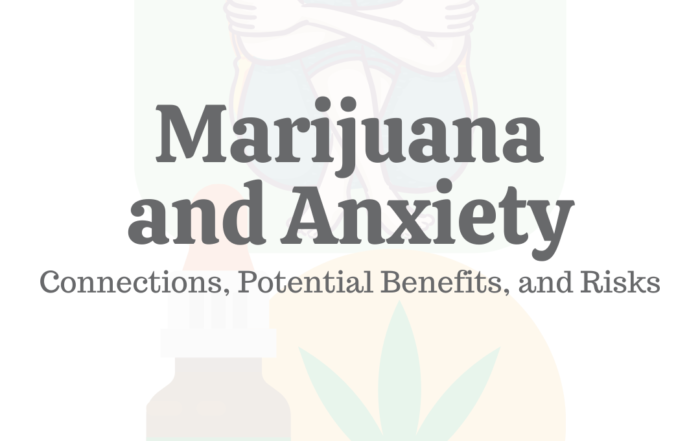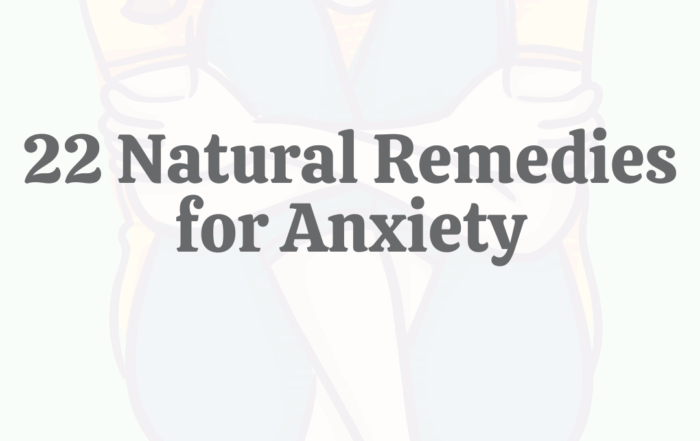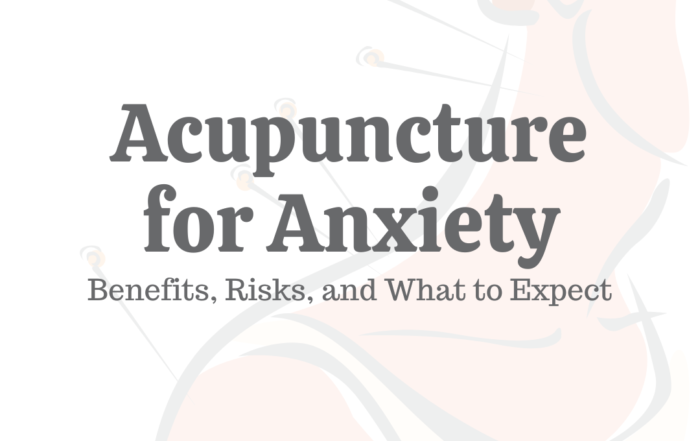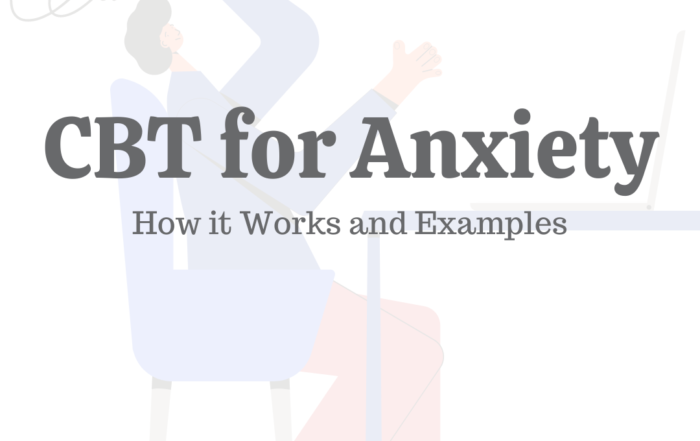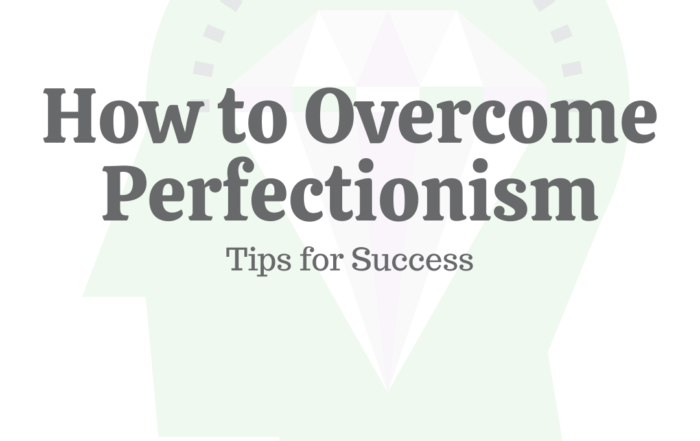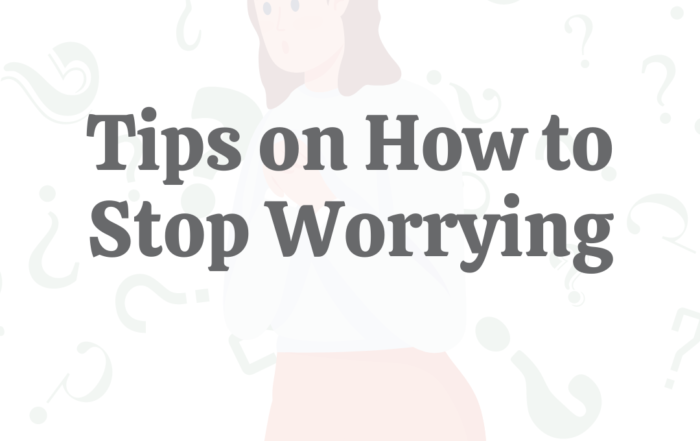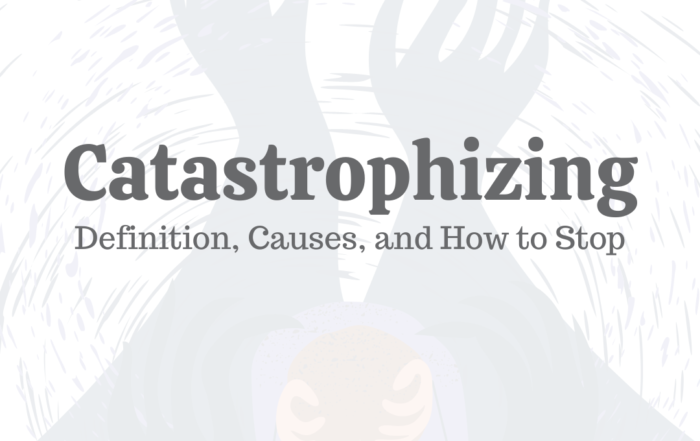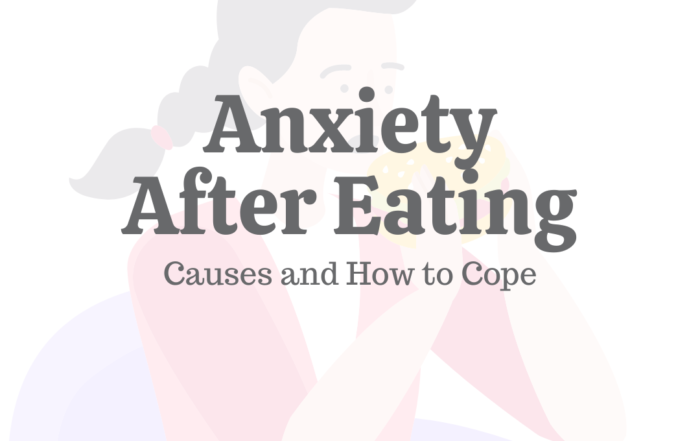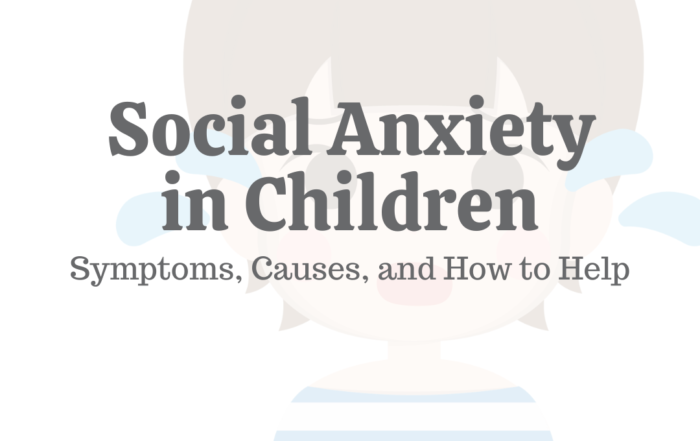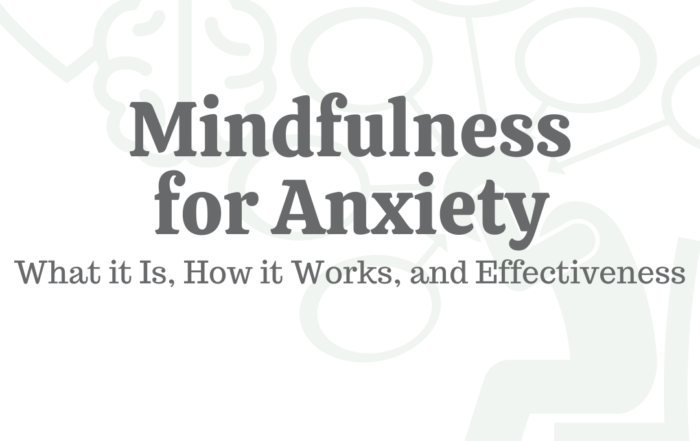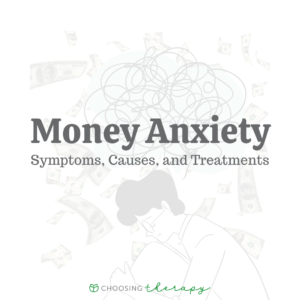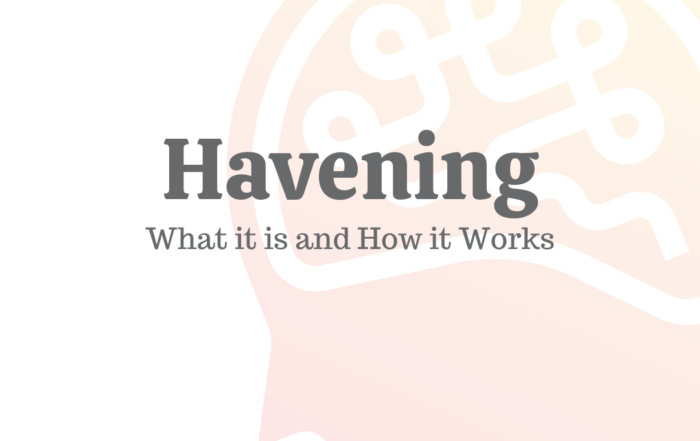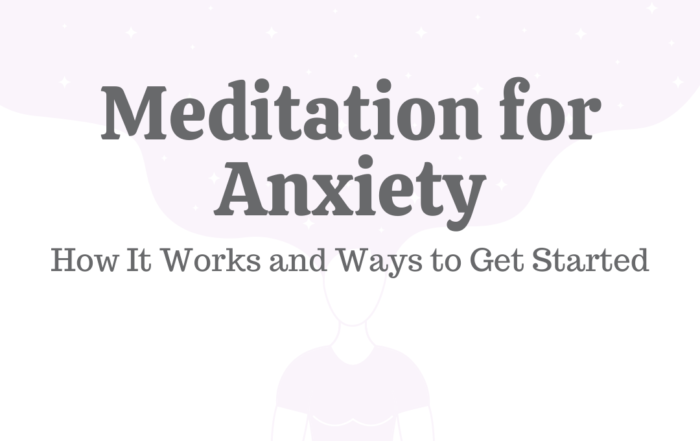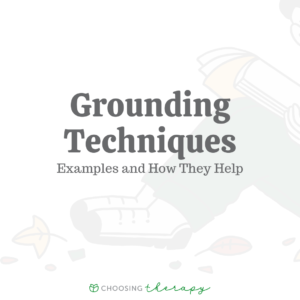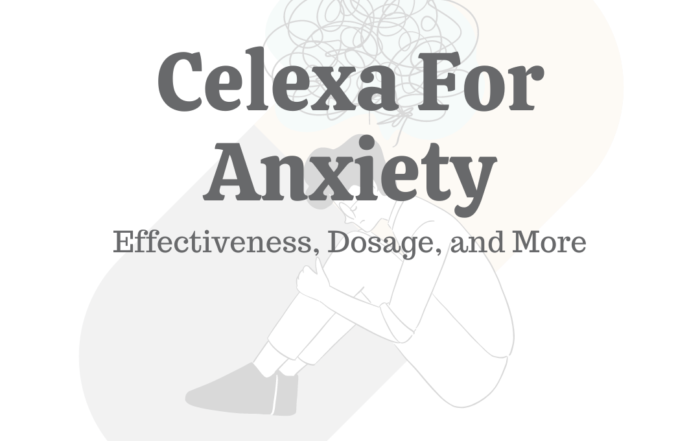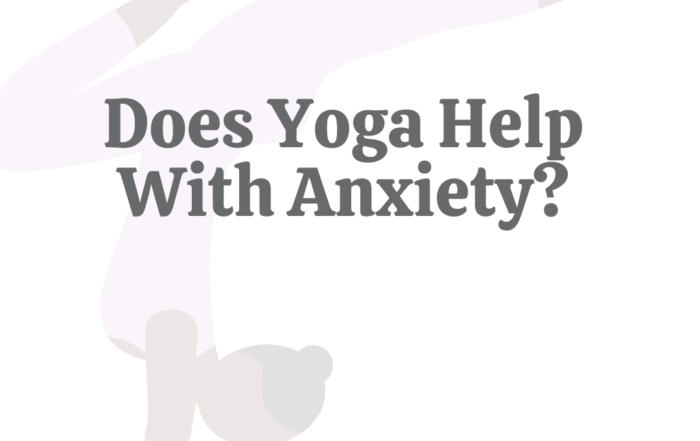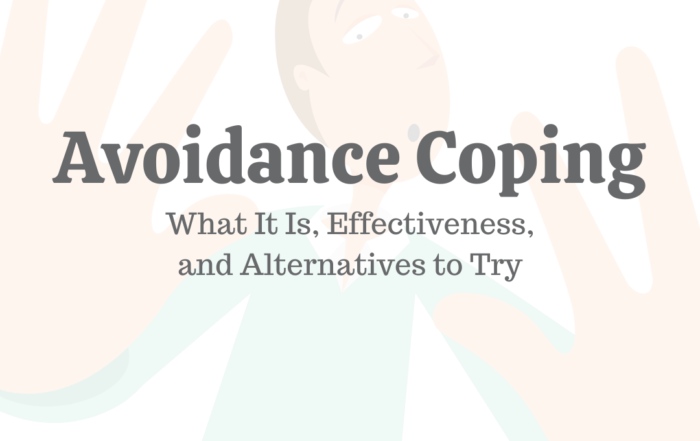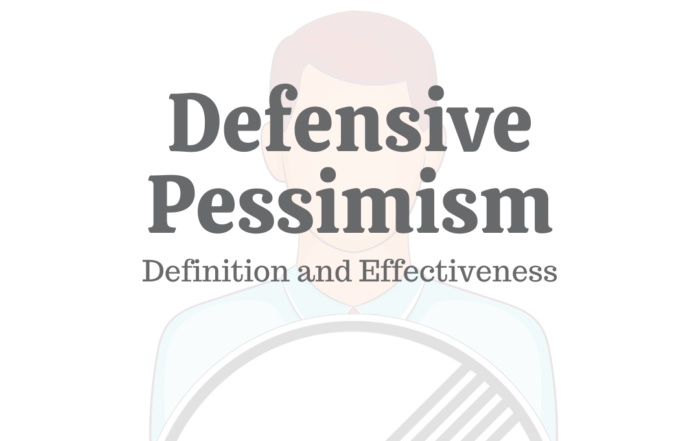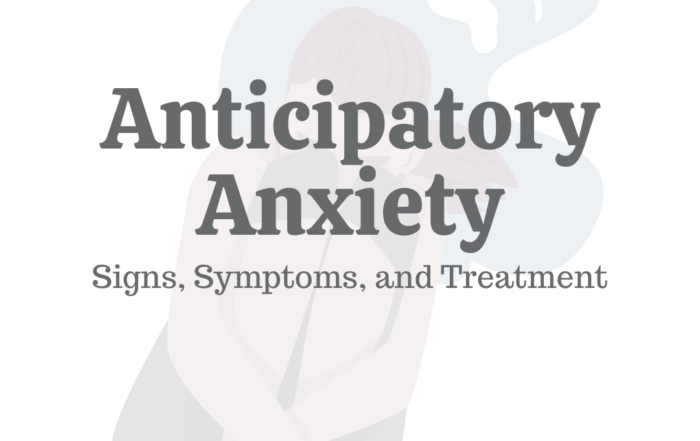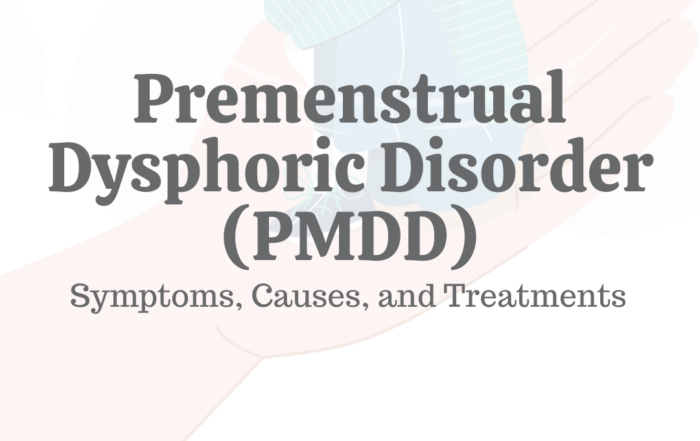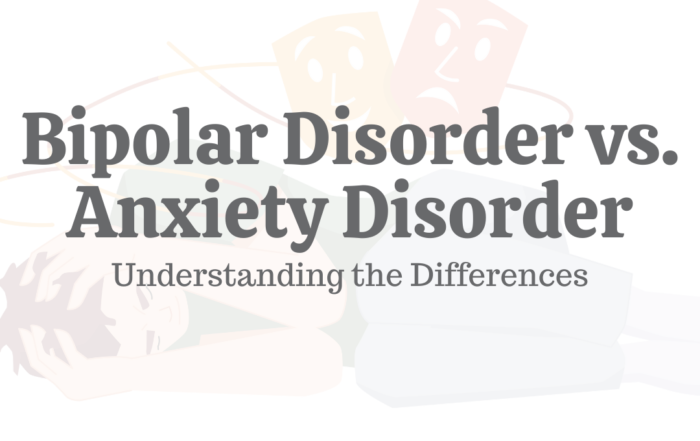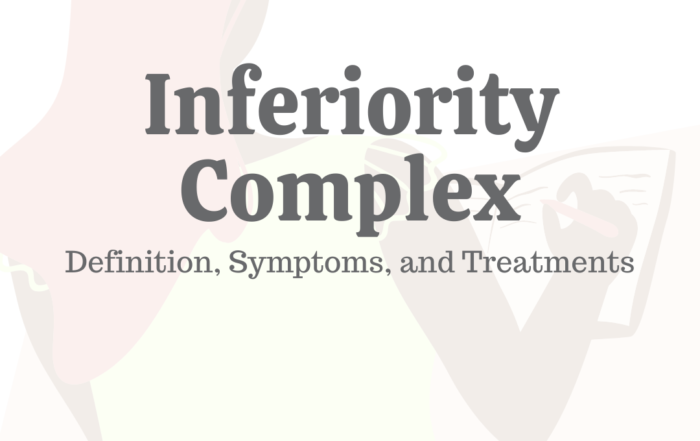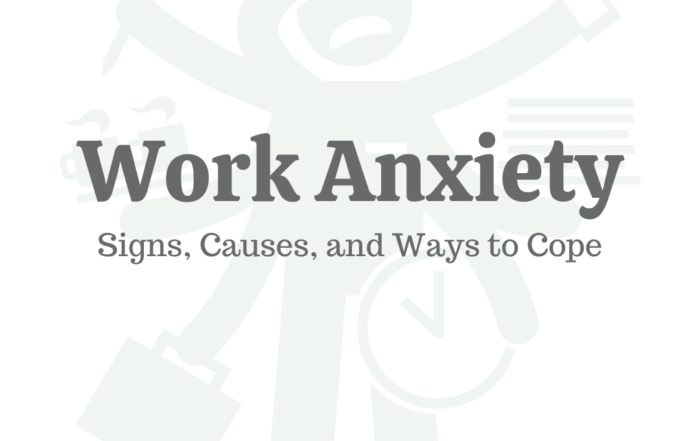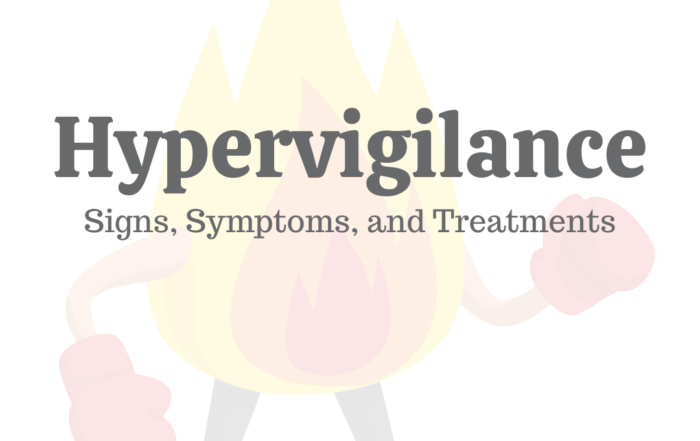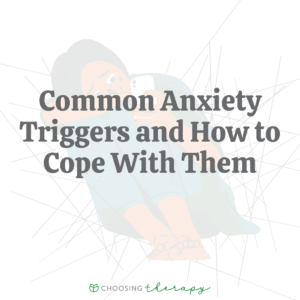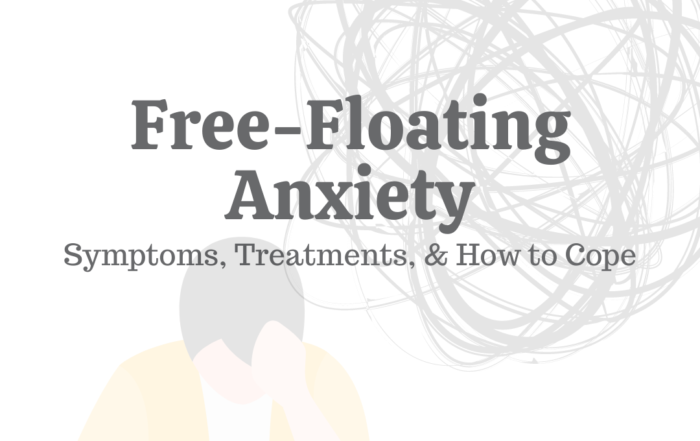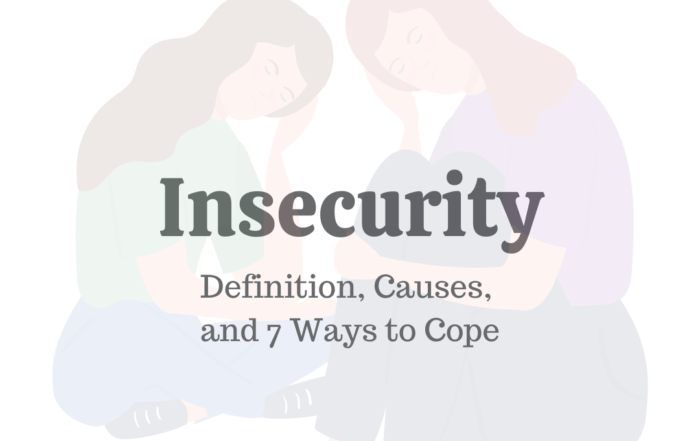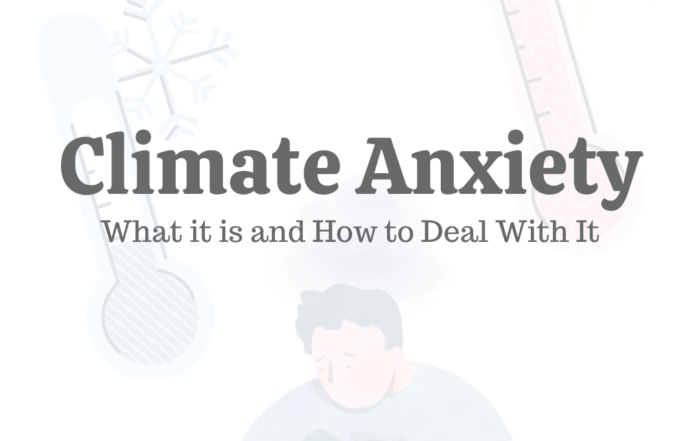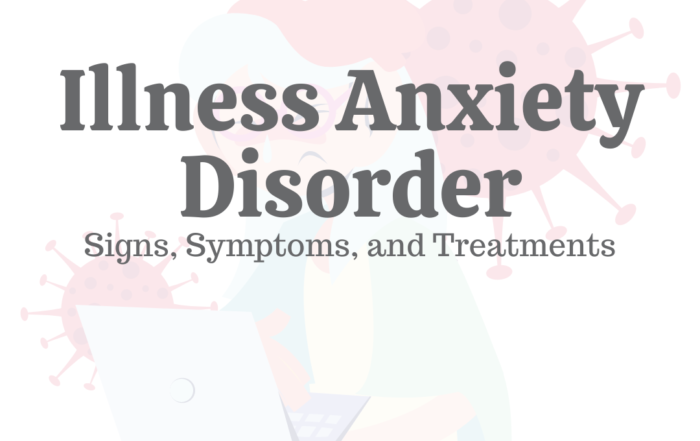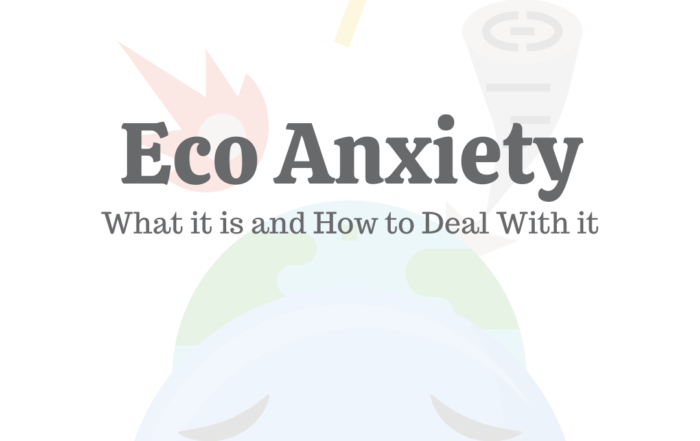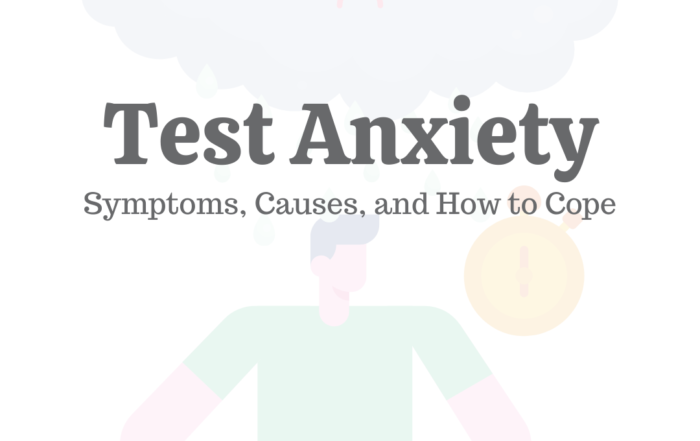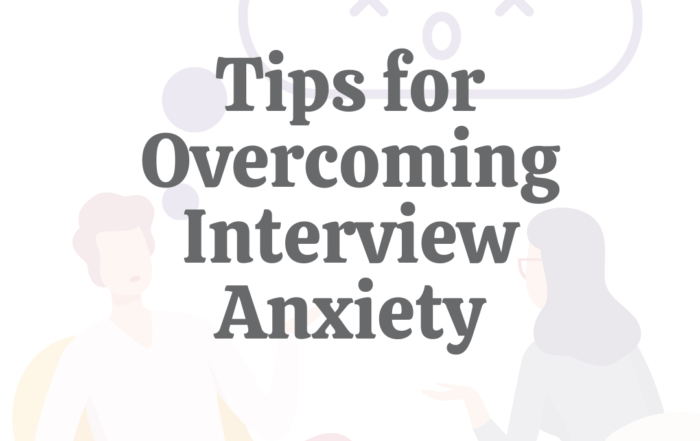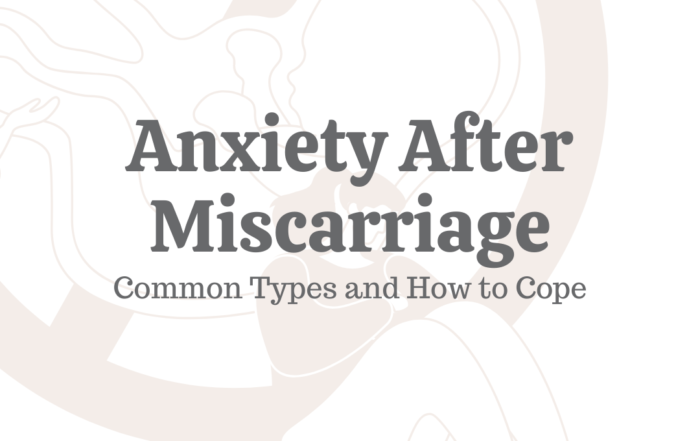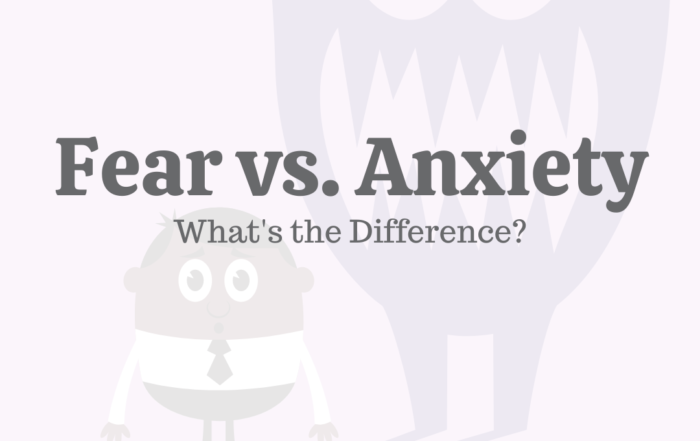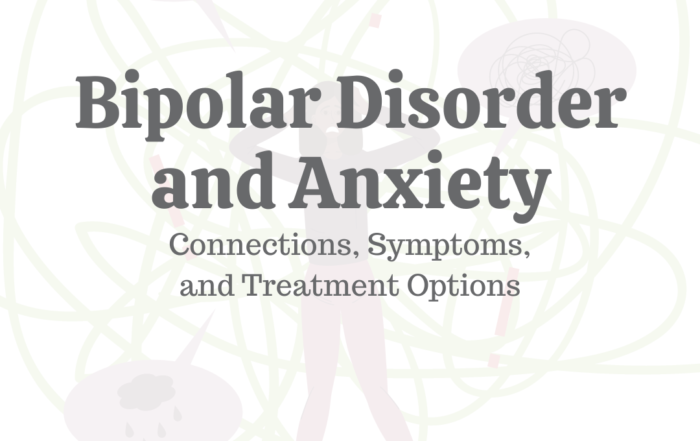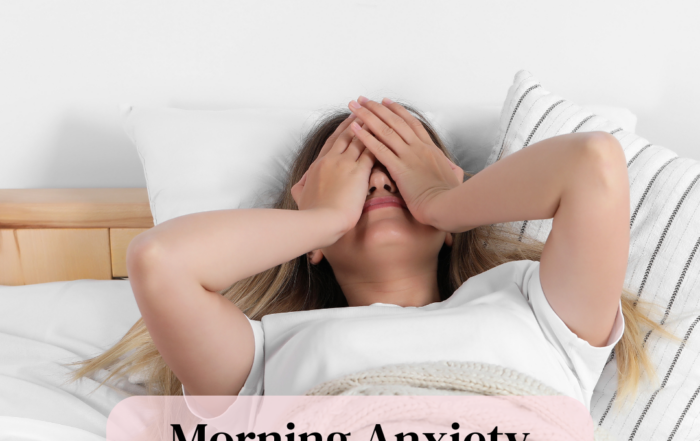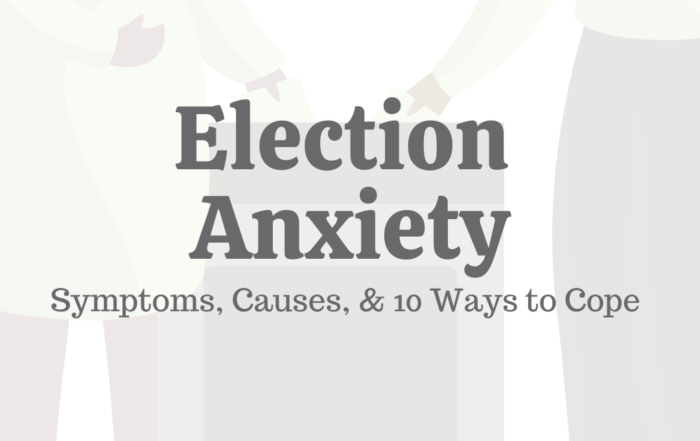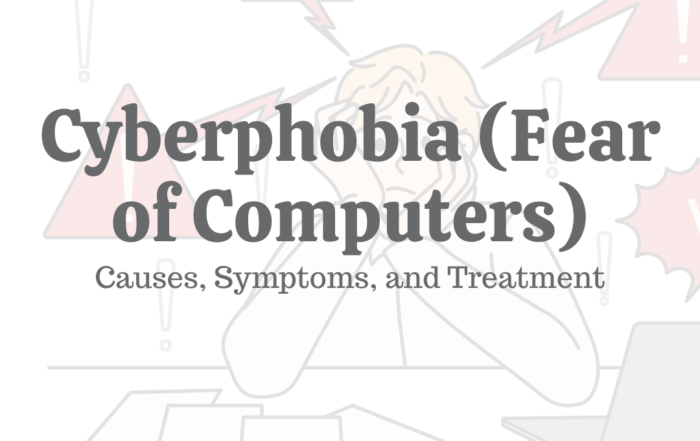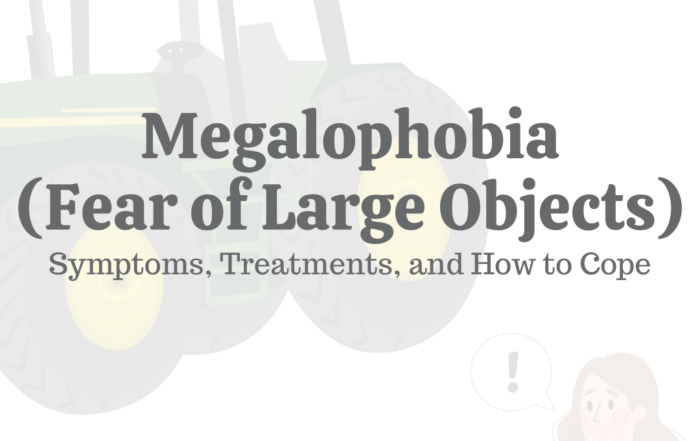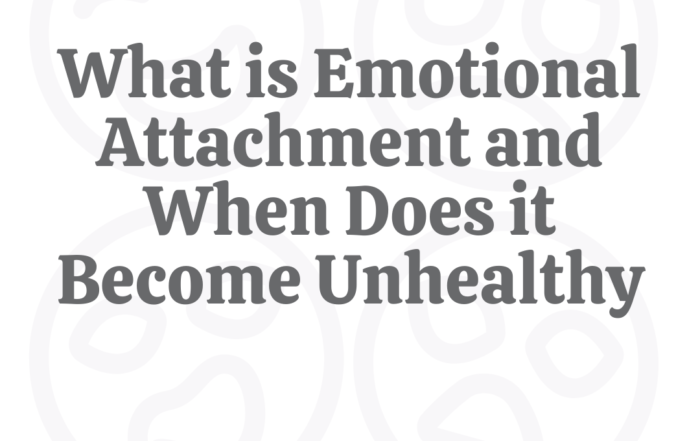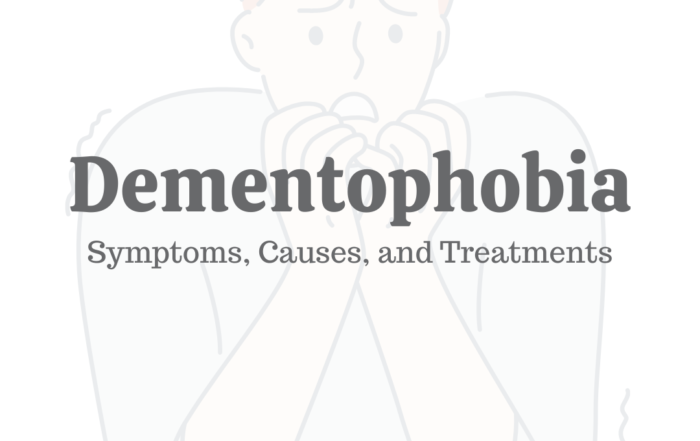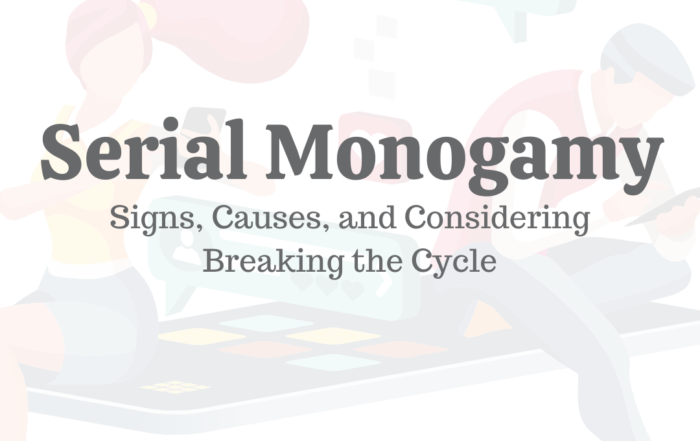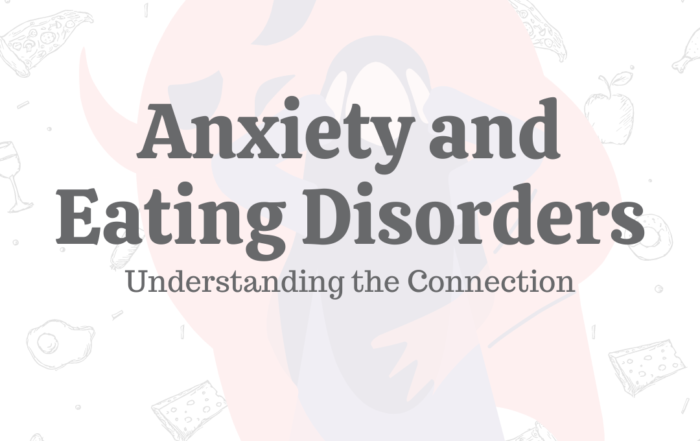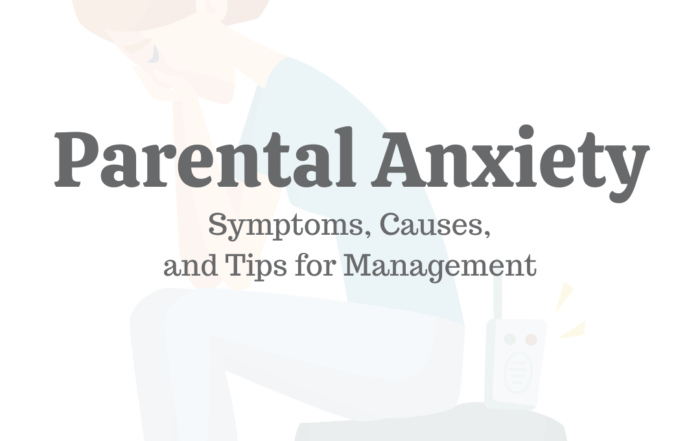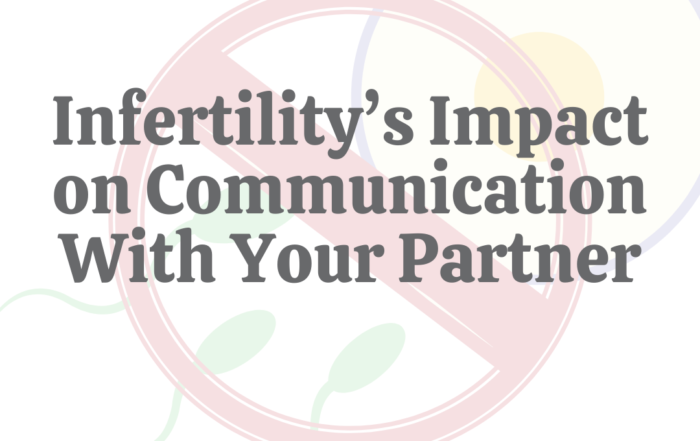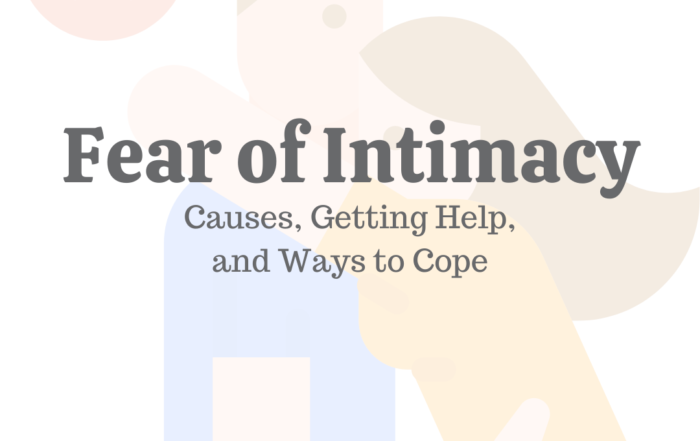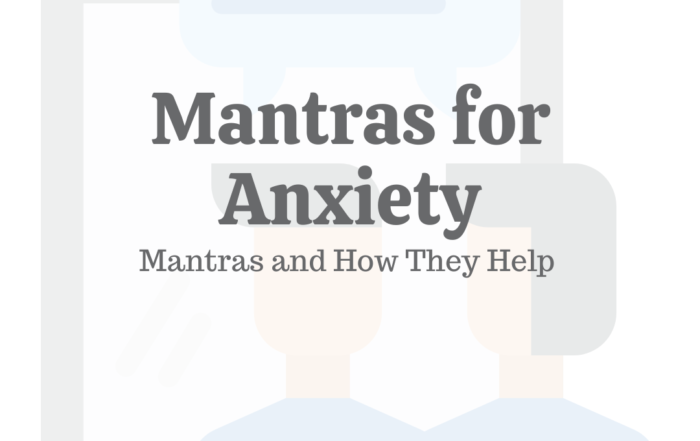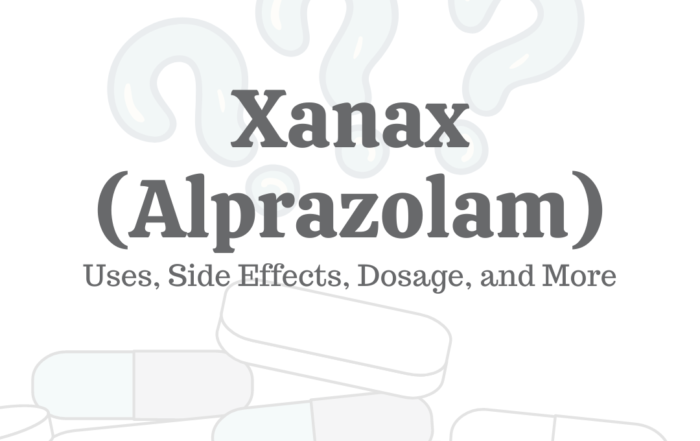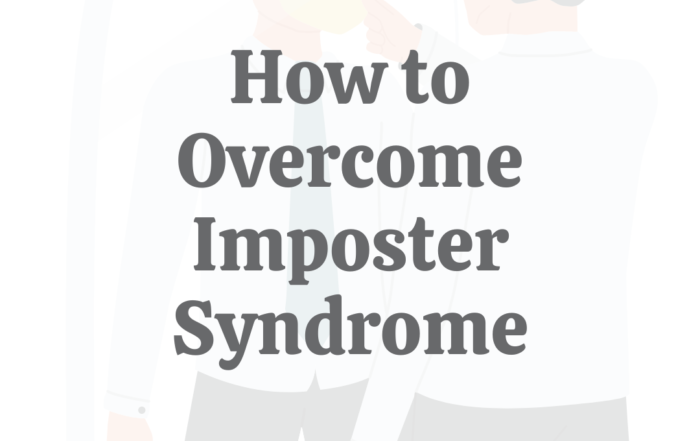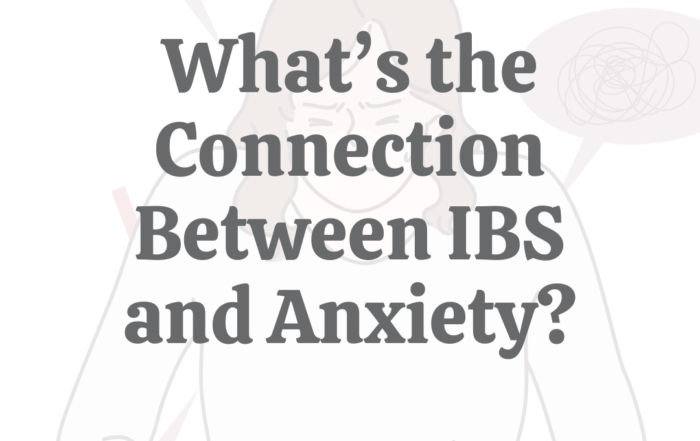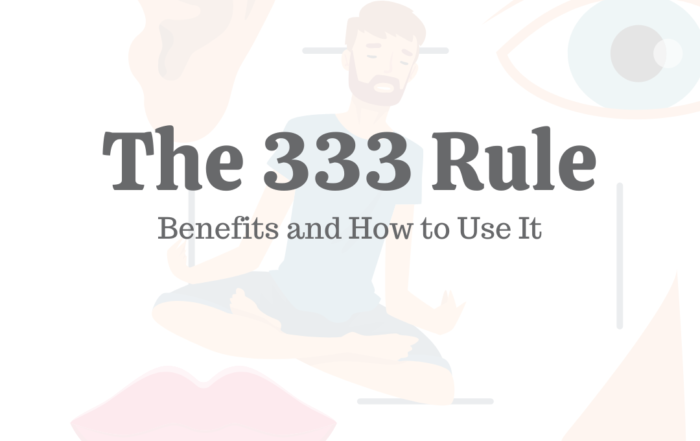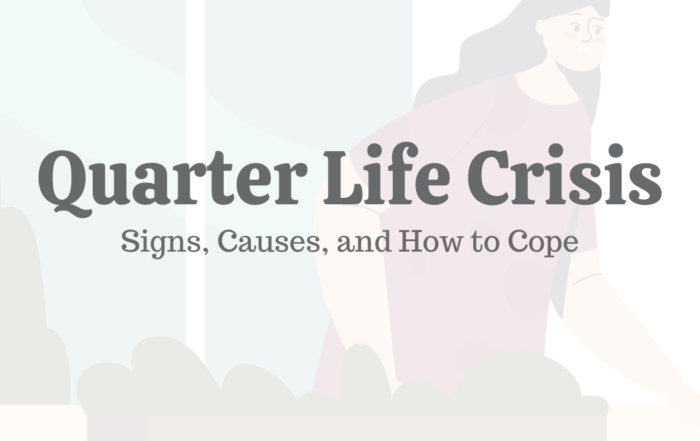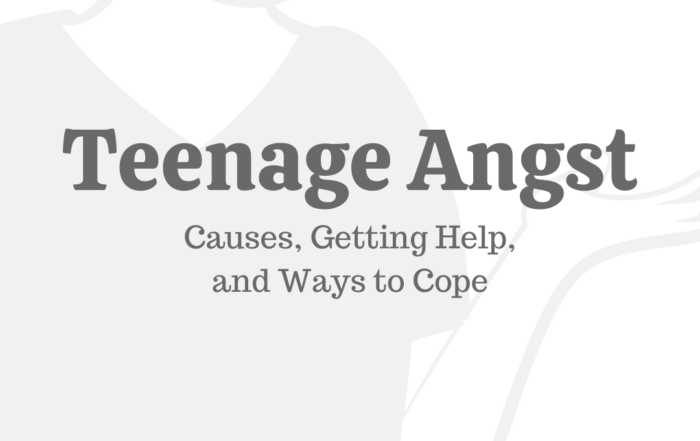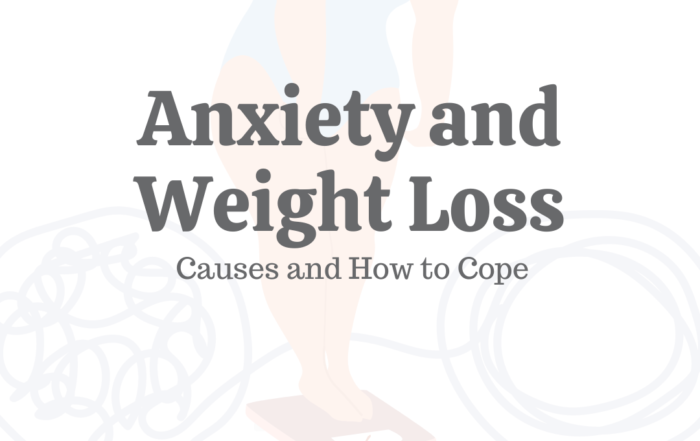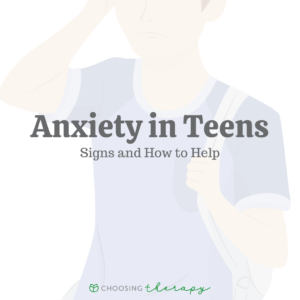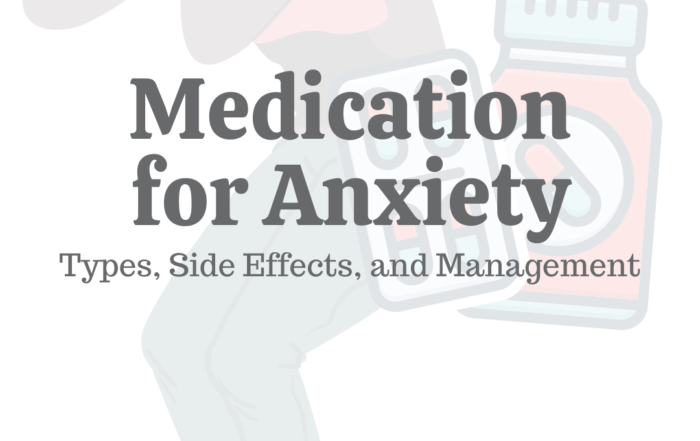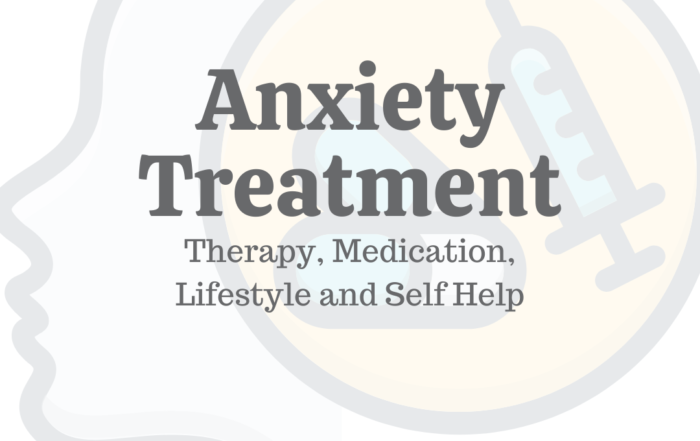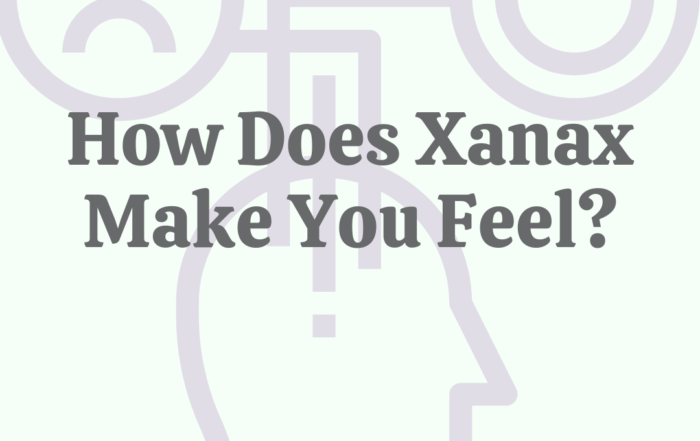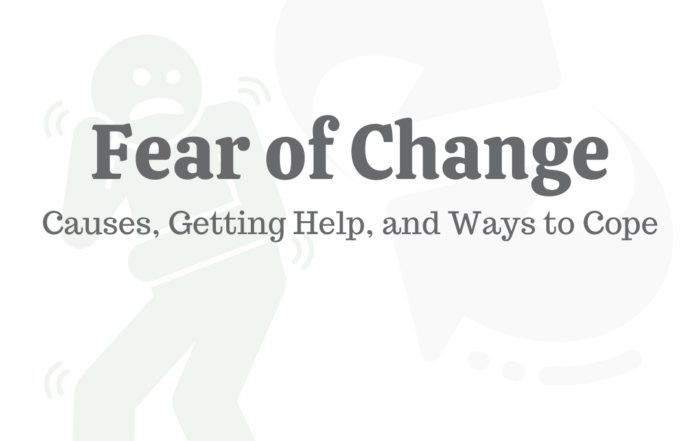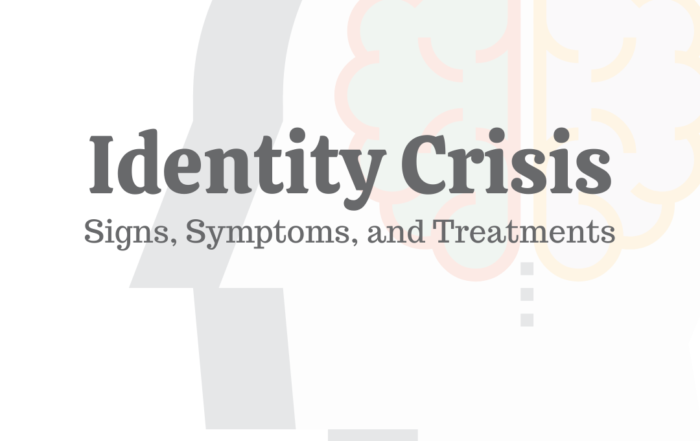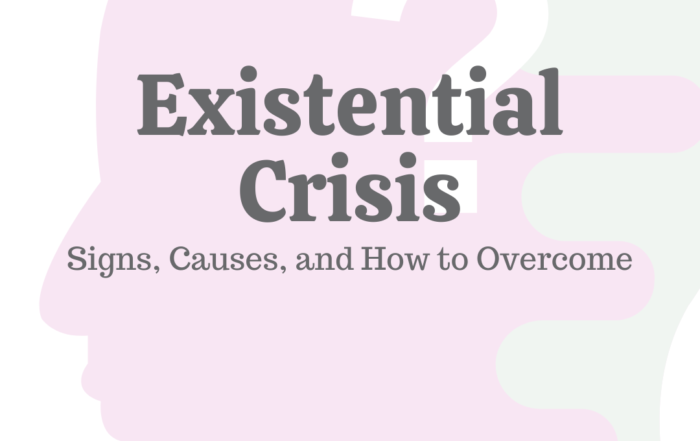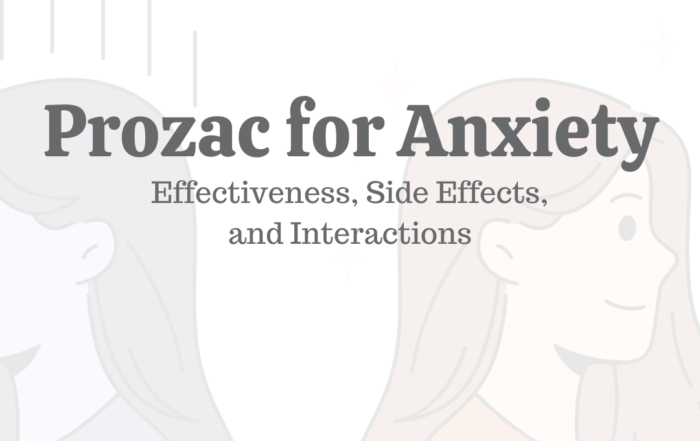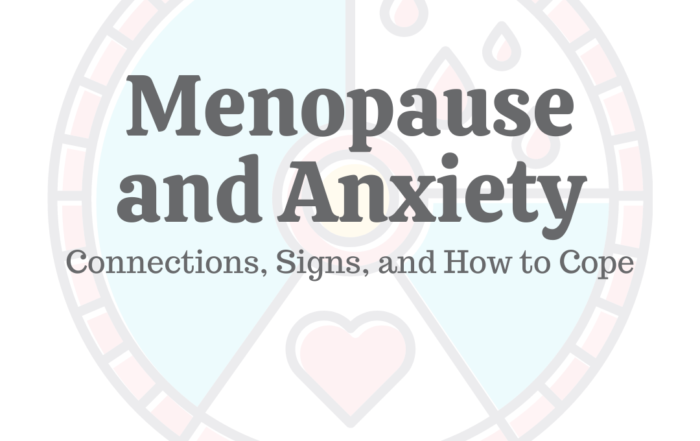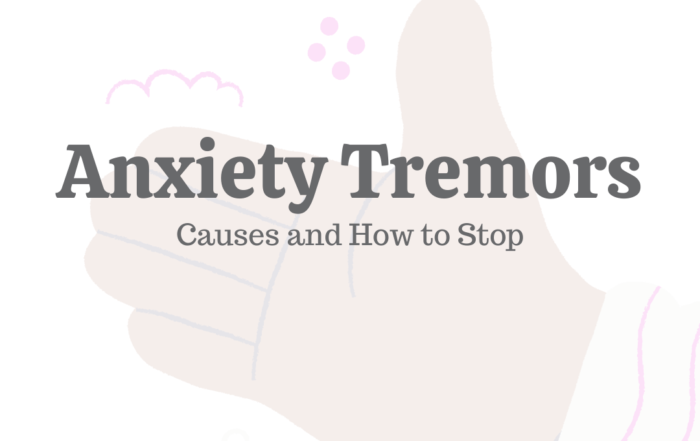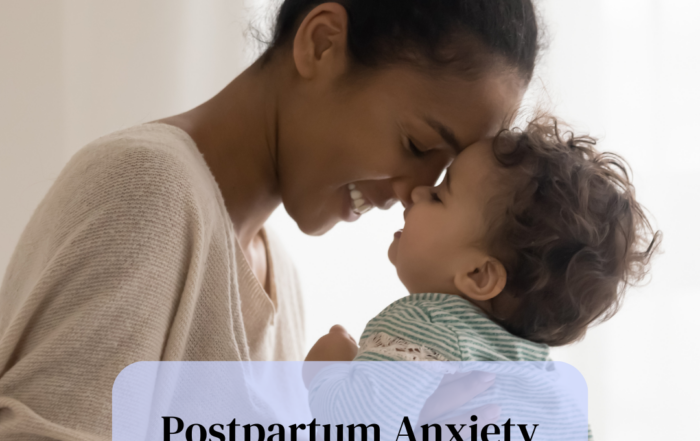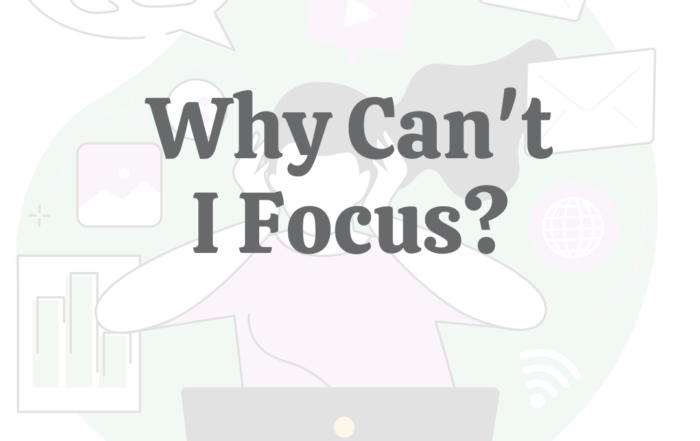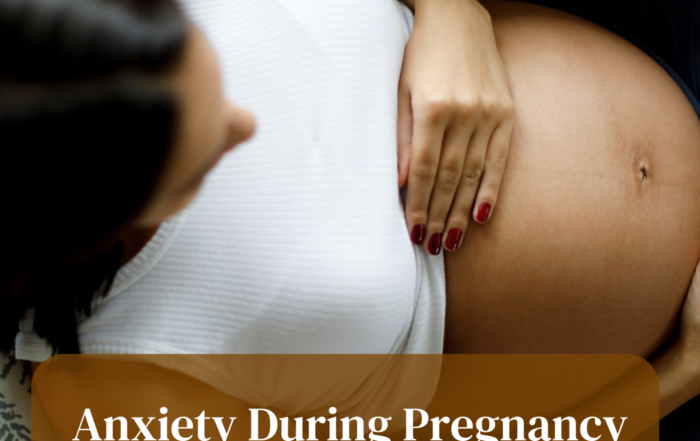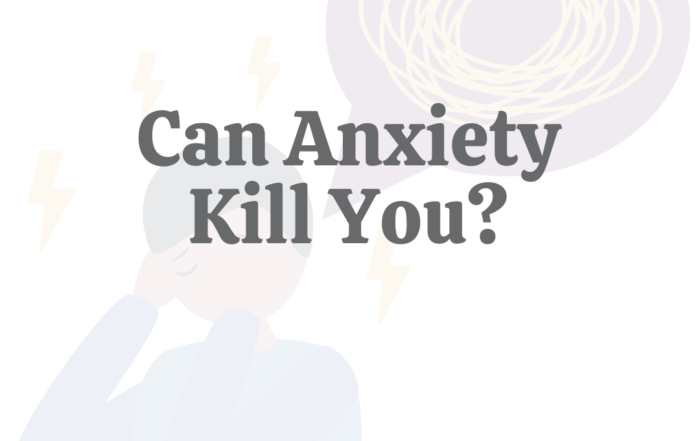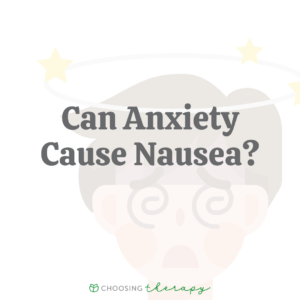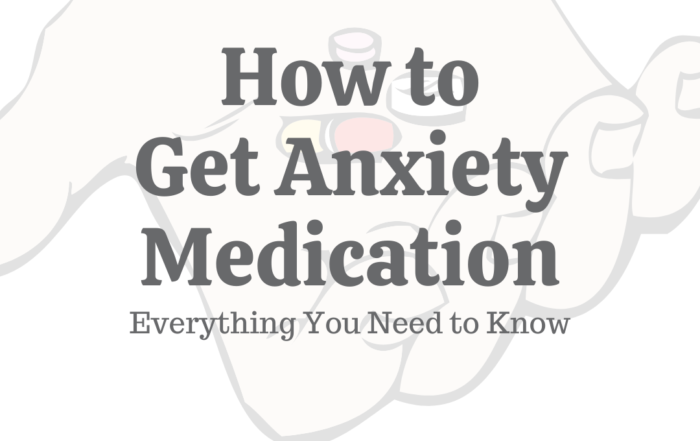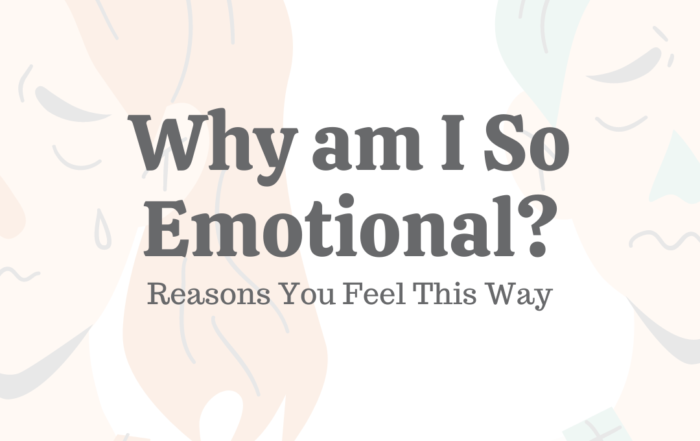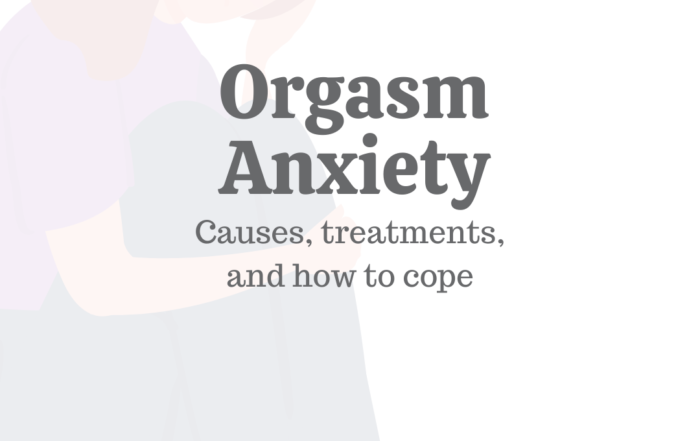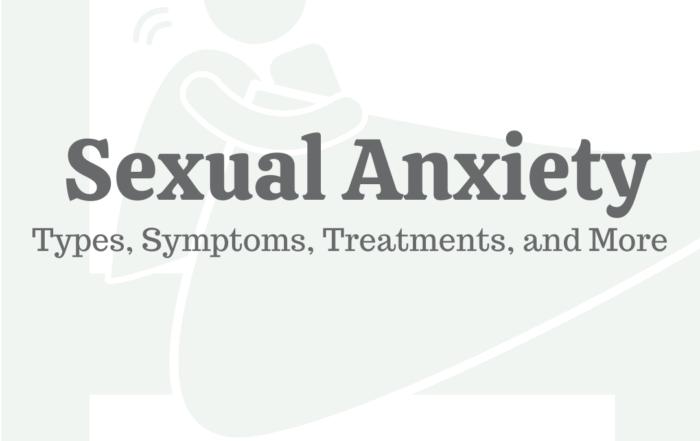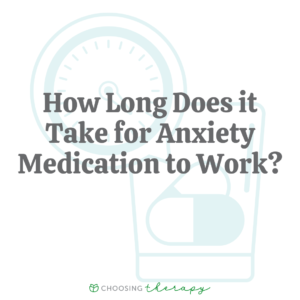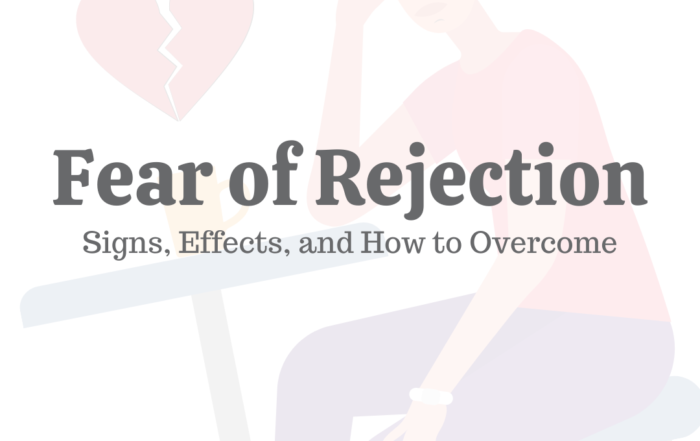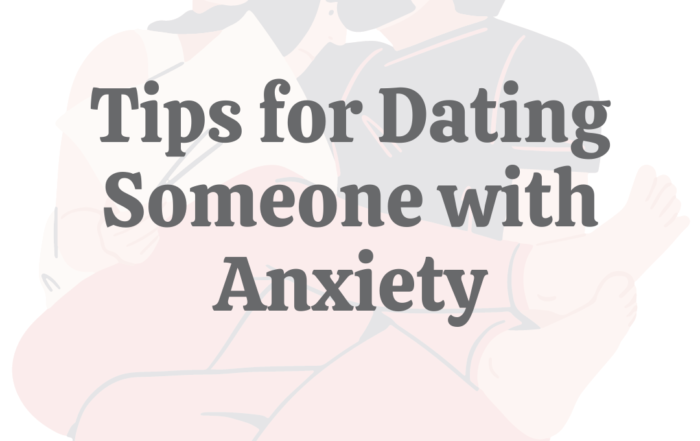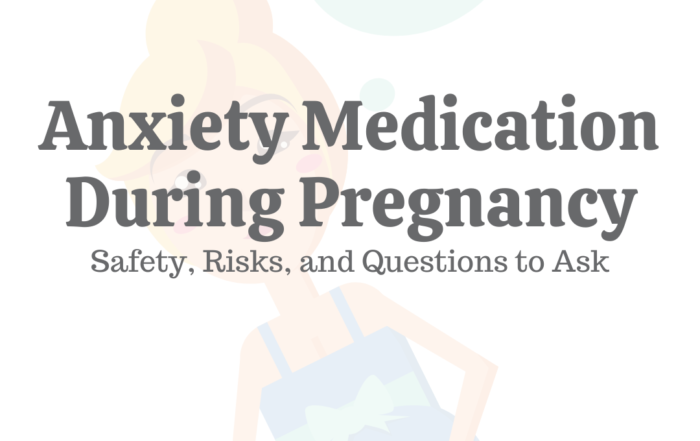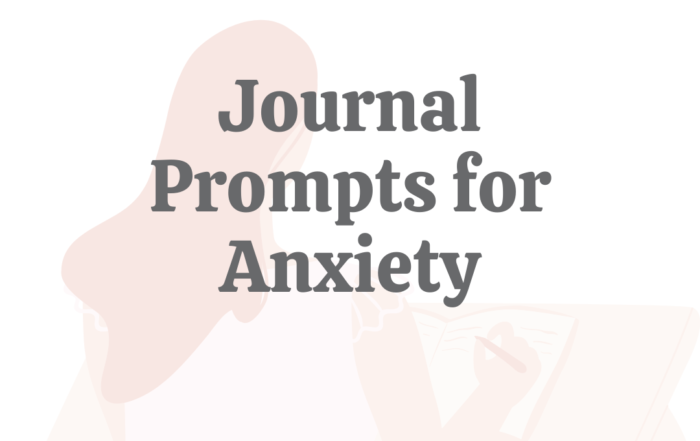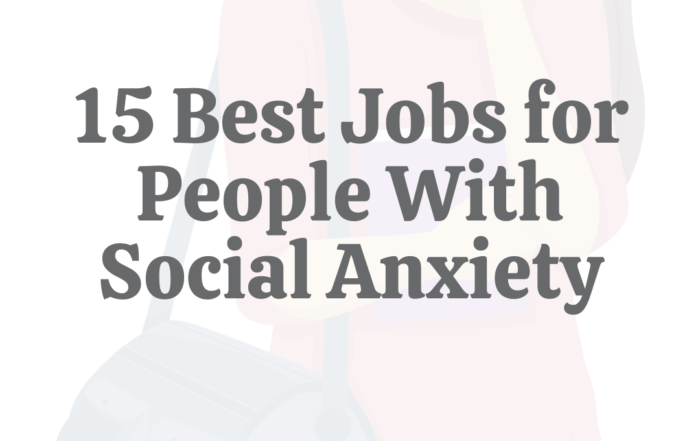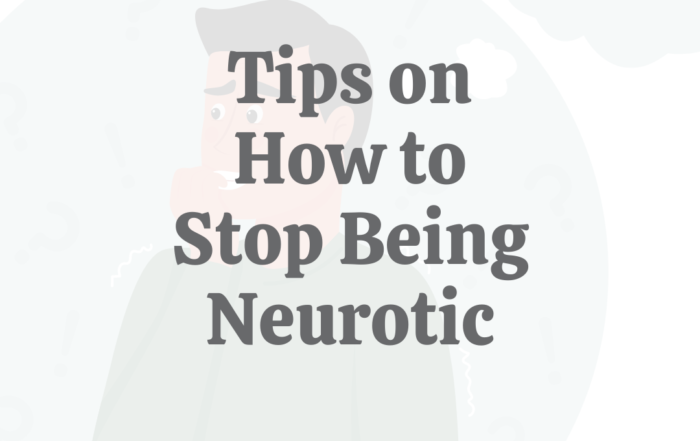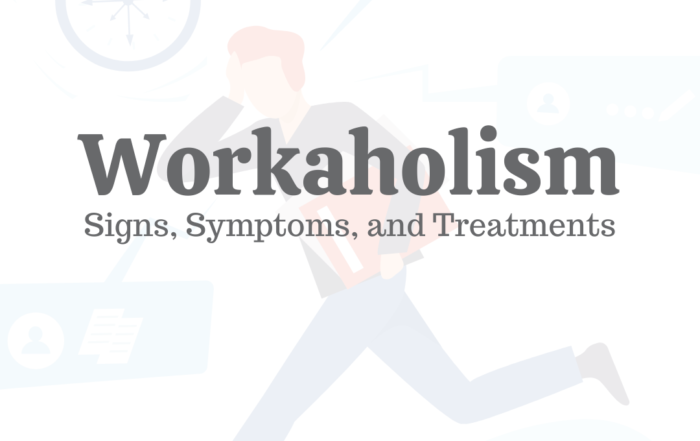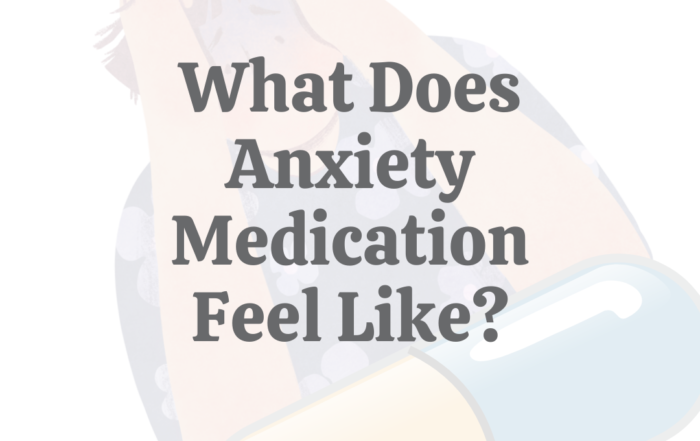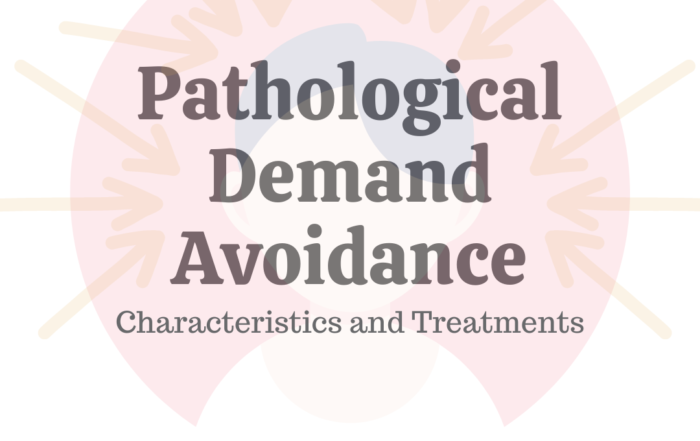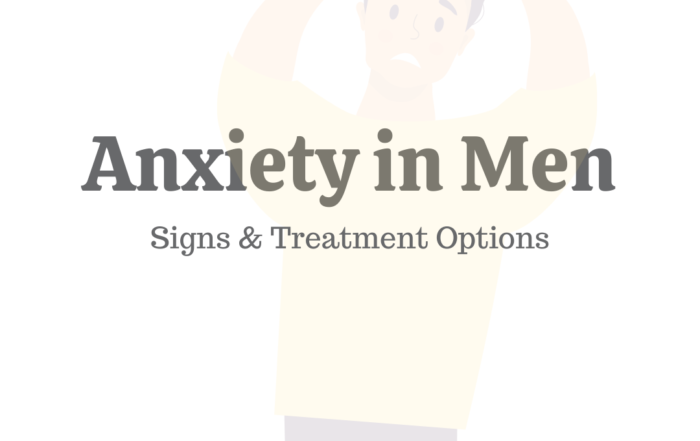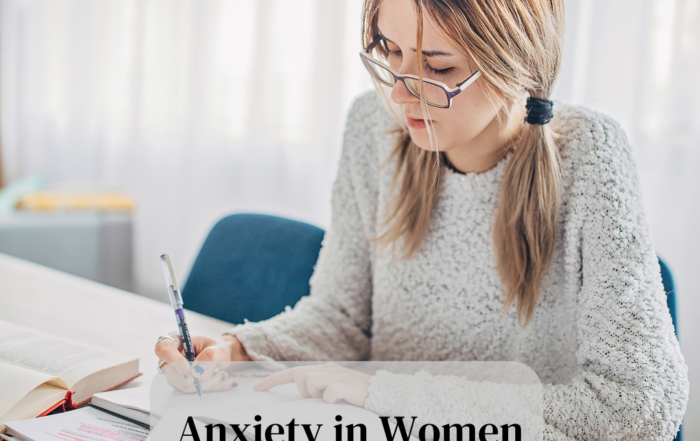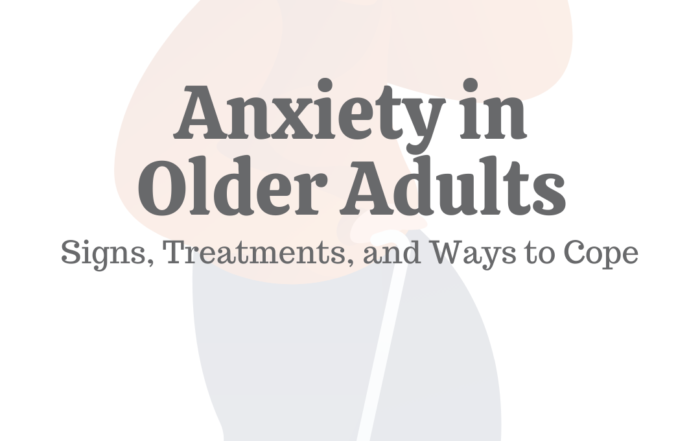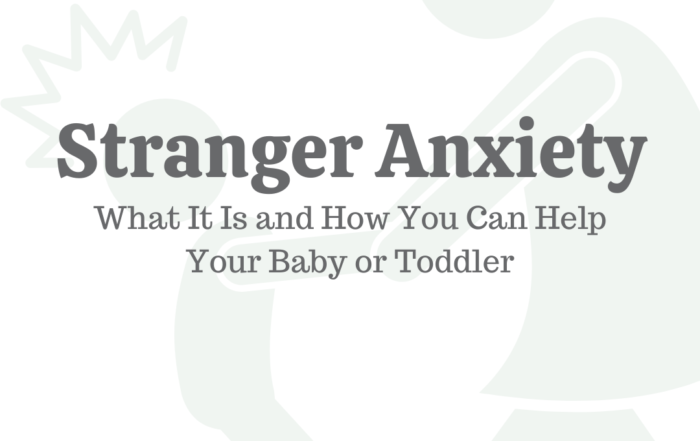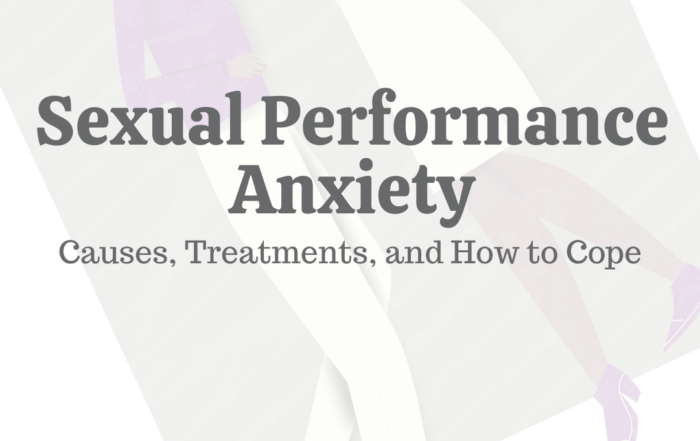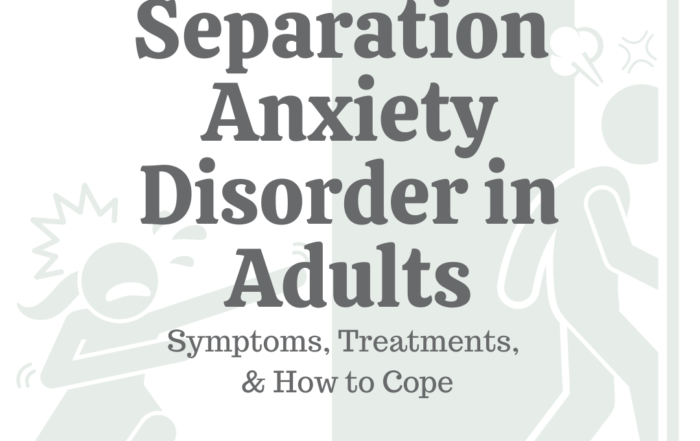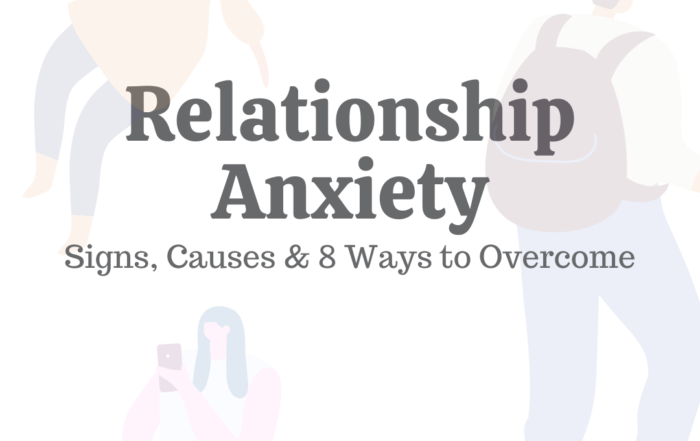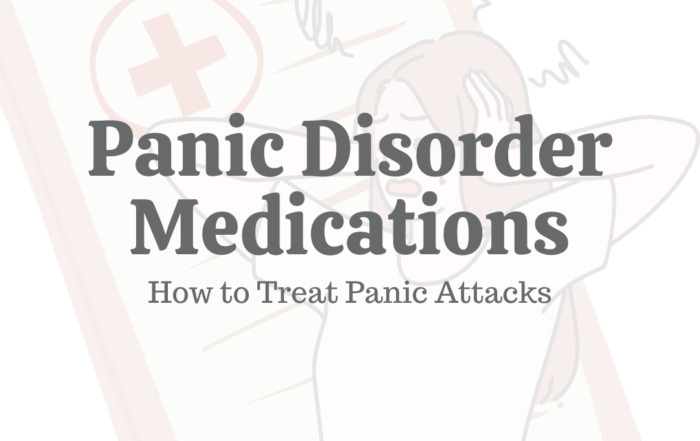Anxiety & Anxiety Disorders
What is Anxiety?
Anxiety describes the reactions within our minds and bodies to situations that are stressful, dangerous, or create a sense of uncertainty. Nearly everyone experiences occasional feelings of anxiety – nervousness, worry, or fear. These feelings are typically triggered by a specific event or situation and pass once the event is over. Anxiety disorders describe feelings of anxiety that occur so frequently and with such intensity that people aren’t able to enjoy and participate in daily life as they once were. Anxiety disorders are both very common and highly treatable.
Signs of Anxiety
Excessive worrying or fear
Decline in work performance
Restlessness, inability to focus
Avoidance of tasks or situations of importance
Irritability and lashing out
Teens: moody, increasingly confrontational, socially isolating
Children: increase in tantrums and/or defiant behavior
Symptoms of Anxiety
Rapid heart rate
Sweating
Dizziness
Changes in appetite
Difficulty sleeping
Muscle tension
Upset stomach or other GI problems
The signs and symptoms of anxiety will vary from person to person. At times, symptoms will be severe and impact people’s lives in significant and negative ways. But symptoms can also be mild for long stretches. Similarly, the signs of anxiety can be readily apparent in some situations and quite difficult to recognize in others. If you’re experiencing any of the symptoms of anxiety and think it’s negatively impacting your life, your relationships, or creating changes in your behavior or thoughts that you’re unhappy with, speak with a licensed professional that specializes in anxiety and anxiety disorders.
Treatment of Anxiety
What are Treatment Options for Anxiety?
Quick Answer ⊕
What are Medications Options for Anxiety?
Quick Answer ⊕
What is CBT for Anxiety?
Quick Answer ⊕
Anxiety disorders are quite common. In fact, every year nearly 1 in 5 adults in the US will struggle with anxiety. Fortunately, the effects of anxiety disorders can be significantly reduced, and even eliminated, with treatment. Finding a licensed mental health professional that has experience treating anxiety disorder, that you trust and feel comfortable talking to is a great first step toward reducing anxiety’s impact on your life.
Types of Anxiety Disorders
What is Generalized Anxiety Disorder?
Quick Answer ⊕
What is Social Anxiety Disorder?
Quick Answer ⊕
What are Specific Phobias?
Quick Answer ⊕
What is Panic Disorder?
Quick Answer ⊕
Panic Attacks vs Anxiety Attacks
Quick Answer ⊕
What is Obsessive Compulsive Disorder?
Quick Answer ⊕
What is Acute Stress Disorder?
Quick Answer ⊕
Stress vs Anxiety
Quick Answer ⊕
What is Separation Anxiety Disorder?
Quick Answer ⊕
There are many types of anxiety disorders, each with its own distinct pattern of onset, symptoms, and duration. It’s possible (and relatively common) to be living with two or more anxiety disorders at once. It’s also possible to be living with an anxiety disorder while also suffering from other co-occurring disorders, like depression. If you’re feeling unhappy with your behavior, your thoughts, or your relationships – for any reason at all – speaking with a licensed therapist is an appropriate first step.
Anxiety Statistics
adults, or 3.1% of the U.S, are affected by generalized anxiety disorder (GAD)
Read Our Most Recent Anxiety Articles
Caffeine & Anxiety: Understanding the Connection
Can Anxiety Cause Migraines? Understanding the Connection
Does Art Therapy for Anxiety Help You Cope With Symptoms?
Comforting Words for Someone With Anxiety, According to a Therapist
Can Video Games Cause Anxiety? Connection & Effects
Kava for Anxiety: Effectiveness, Side Effects, & Dosage
DBT for Anxiety: How It Works, Effectiveness, & How to Begin
Holiday Anxiety: Signs, Causes & How to Cope
Grief & Anxiety: 9 Ways to Overcome Grief-Related Anxiety
Is Anxiety Neurodivergent? Research-Based Answers
NOCD Review 2024: Pros & Cons, Cost, & My Experience
Psilocybin for Anxiety: How it Works, Effectiveness, & How to Try It
Severe Anxiety: Causes, Symptoms, & Treatment
Inference-Based CBT (I-CBT): How it Works, Examples, & Effectiveness
7 Common Myths & Misconceptions About OCD
Can Anxiety Cause Dizziness? Why it Happens & How to Treat
Does Adderall Help With Anxiety?
Anxiety Spiral: Why It Happens & How to Stop It
How to Get Over a Phobia: 11 Ways to Overcome Phobias
How to Calm an Anxiety Attack: 9 Ways to Stop an Anxiety Attack Fast
Treatment-Resistant Anxiety: Signs, Causes, & How to Manage
How to Distract Yourself From Anxiety: 17 Distraction Techniques for Anxiety
Can Anxiety Cause Tingling in the Face?
Irrational Fears: Definition, Examples, & Treatment
Chronic Procrastination: Signs, Causes, & How to Overcome It
Xanax Dosage Guide
Ketamine for OCD: How it Works, Effectiveness & How to Try It
Afraid to Make a Wrong Choice: What Can Cause a Fear of Making Decisions?
Doomscrolling: What It Is & How to Stop
Can Stress Cause Constipation?
Can Anxiety Cause Chest Pain?
What Is Chronic Anxiety? Symptoms, Causes, & Treatment
Service Dogs for Anxiety: How to Get a Service Dog for Anxiety
Brain Fog: Symptoms, Causes, & How to Cope
Feeling Overwhelmed: Symptoms, Causes, & How to Cope
Does Sour Candy Help With Anxiety?
Gluten and Anxiety: What’s the Connection?
Subconscious Anxiety: Signs, Causes, & Treatment
Anxiety Coping Skills for Teens: Types, Tools & How to Begin
Groinal Response & OCD: Understanding the Connection
Cycle of Anxiety: What It Is & How to Break It
Ativan Dosage Guide
Why Do I Have Anxiety for No Reason?
Magnesium for Anxiety: Does It Work?
Hoarding OCD: Symptoms, Examples & Treatment
Post-Traumatic Stress Disorder (PTSD) & COVID-19
How to Stop Intrusive Thoughts: 8 Tips From an Expert
Yoga for OCD: Why it Works & 10 Poses to Try
Seroquel for Anxiety: Effectiveness, Side Effects, & Risks
OCD Death Obsessions: Coping With a Fear of Death
Is Social Anxiety Genetic?
Rumination & OCD: Understanding the Connection
OCD & Paranoia: Understanding the Connection
OCD Mental Compulsions: Definition, Examples, & Treatment
Fear of Abandonment: Why It Happens & How to Overcome
The Fear of Pooping: Why It Happens & How to Overcome
How to Stop Worrying About the Future
Staring OCD: What It Is, Symptoms, & Treatment
Sensorimotor OCD: Symptoms, Examples & Treatment
Binaural Beats For Anxiety
Nervous Breakdown: Symptoms, Causes, & Treatment
Uncontrollable Crying: Potential Causes & How to Stop
Trazodone for Anxiety: Is It Effective?
Supplements for Anxiety
Is Anxiety a Disability? Qualifications & Benefits
Somatic Anxiety: Symptoms & Tips for Coping
Severe OCD: Symptoms, Causes, & Treatment
Iatrophobia: 8 Ways to Overcome the Fear of Doctors
Anxiety Coping Skills for Kids: 9 Exercises to Try
Travel Anxiety: Signs, Causes, & Tips for Overcoming
Mindfulness for OCD: How It Works & Techniques to Try
Ketamine for Anxiety: How it Works, Effectiveness & How to Try It
Arithmomania: What it Is, Examples, & Treatment
Anxiety Dry Mouth: Causes, Symptoms, & Solutions
Stress Vs. Anxiety: Understanding the Difference
Anxiety Shivers & Chills: Symptoms, Causes, & Treatment
28 Breathing Exercises for Anxiety
CBT for OCD: How It Works, Examples & Effectiveness
Atelophobia: 7 Ways to Overcome the Fear of Imperfection
Racism OCD: Understanding Racist Intrusive Thoughts
What Is Pedophobia? Definition, Symptoms, & Treatments
OCD & Bipolar: Understanding the Connection
Sexual Orientation OCD: Symptoms, Examples & Treatment
OCD Recovery: 9 Tips for Success
Comphet: Definition, Symptoms, & How to Overcome
Responsibility OCD: Symptoms, Examples & Treatment
OCD in Women: Symptoms, Treatment, & Getting Help
OCD & Sex: Impacts, Treatment, & How to Cope
Ativan Withdrawal: Symptoms, Timeline, & What to Do
Can Anxiety Cause Blurred Vision?
OCD & Alcohol: Understanding the Connections
Perfectionism & OCD: Understanding the Connection & Differences
Excoriation (Skin-Picking Disorder): Signs, Symptoms, & Treatments
Symmetry OCD: What It Is, Symptoms, & Treatment
Is OCD Genetic? Possible Causes & Risk Factors
Real Event OCD: What It Is, Symptoms, & Treatment
Transient Tic Disorders: Signs, Symptoms, & Treatment
What to Know When Dating Someone With OCD
The Fear of Imperfection: Why It Happens & How to Overcome
Limerence: Definition, Causes, & How to Cope
The Fear of Losing Control: Why It Happens & How to Overcome
Avoidance Behavior: Examples, Impacts, & How to Overcome
OCD Compulsion: What It Is, Examples, & Treatment
Is OCD Curable?
What Causes OCD to Get Worse? 7 Triggers to Be Aware of
What Is Magical Thinking?
Is OCD an Anxiety Disorder? How to Tell the Difference
ADHD & OCD: Understanding the Connection
Magical Thinking OCD: Symptoms, Causes, & Treatment
Hoarding Disorder: Signs, Symptoms, & Treatments
OCD Symptoms, Signs, & What to Watch For
Just Right OCD: Obsessions, Compulsions, & Treatments
Relationship OCD: Symptoms, Examples, & Treatment Options
Postpartum OCD: Signs, Symptoms, & Treatments
Contamination OCD: Obsessions, Compulsions, & Treatments
Scrupulosity OCD: Symptoms, Examples, & Treatment Options
OCD & Autism: Understanding the Link
Suicidal OCD: What it Is, Causes, & Treatment
OCD & Eating Disorders: Connections, Symptoms, & Treatments
Exposure and Response Prevention Therapy: What It Is & How It Works
Chromophobia (Fear of Color): Meaning, Symptoms, & Causes
Olfactory Reference Syndrome: Characteristics, Causes, & Treatment
Rumination: Definition, Causes, & 10 Tips to Stop
OCD & Sexual Intrusive Thoughts: Connections & Treatment Options
OCD & Narcissism: Links, Causes, & Treatment
Common Types of Obsessive Compulsive Disorder (OCD)
Somatic OCD: Definitions, Symptoms, & Treatment
Medication for OCD: Types, Side Effects, & Effectiveness
Pure O OCD: Signs, Symptoms & Treatments
OCD Diagnosis: Understanding the Process
ADHD & Anxiety: Understanding the Link
Harm OCD: Signs, Symptoms, & Treatments
Xanax Alternatives: What You Need to Know
Existential OCD: Obsessions, Compulsions, & Treatments
False Memory OCD: What It Is, Symptoms, & Treatment
Does CBD Help With Depression?
ERP for OCD: How It Works, Examples & Effectiveness
15 Songs About Anxiety
Anxiety Brain Fog: Symptoms, Causes, & Tips for Coping
OCD Attacks: What It Is & How to Cope
Common OCD Triggers: What They Are & How to Cope
Clorazepate (Tranxene): Uses, Side Effects, Warnings, & More
Neurofeedback for OCD: How it Works Effectiveness & How to Try It
Hydroxyzine Vs Xanax for Anxiety: How Do They Compare?
OCD Comorbidity: Anxiety, Depression, ADHD, & More
17 Grounding Techniques for Anxiety
Box Breathing: Square Breathing Benefits & How to Do It
OCD at Work: Common Challenges & How to Cope
Is OCD Neurodivergent?
Hit & Run OCD: What It Is, Symptoms, & Treatment
The Spotlight Effect: What It Is & How to Cope
How to Overcome Fear: 10 Tips to Conquer Fear
CBD for OCD: Effects, Benefits, & Risks
Prozac for OCD: Everything You Need to Know
Misophonia: Definition, Symptoms, & Treatments
Best Online OCD Resources: Therapy, Apps, & Support Groups
Gabapentin for Anxiety: Uses, Dosage, Side Effects, & More
ACT for OCD: How It Works, Examples, & Effectiveness
What Not to Say to Someone With OCD, According to a Therapist
Exposure Therapy for Anxiety: How it Works, Effectiveness & Examples
Is It ROCD or Just the Wrong Relationship?
Transcranial Magnetic Stimulation (TMS) for OCD: Is it Effective?
Zoloft for OCD: Everything You Need to Know
Hydroxyzine for Anxiety: How it Works, Side Effects, & More
Mirtazapine for Anxiety: All You Need to Know
Anxiety Statistics, Facts, & Resources
Dentophobia (Fear of the Dentist): 8 Ways to Deal With Dental Anxiety
Email Anxiety: What It Is & How to Overcome
Coping Skills for Anxiety: Types, Tools, & How to Begin
Klonopin (Clonazepam) Overdose: Signs, Symptoms, & Treatment
OCPD Vs. OCD: What Is the Difference?
Social Anxiety & Alcohol: What’s the Connection?
Transcranial Magnetic Stimulation (TMS) for Anxiety: Is it Effective?
Is OCD a Disability? Qualifications & Benefits
Defense Mechanisms: Definition, Types, & Examples
Coping Skills for OCD: 6 Types & How to Use Them
13 Grounding Techniques for Panic Attacks
Propranolol for Anxiety: What You Need to Know
Diabetes and Anxiety: Connection, Symptoms, & Treatment
Sensory Overload: What It Is, Symptoms, & Treatments
Introvert Vs. Social Anxiety: What’s the Difference?
What to Know About Vitamins for Anxiety & Depression
PTSD & Social Anxiety: Connection & Tips to Overcome
OCD Cycles: What They Are & How to Break Them
Lexapro for OCD: Everything You Need to Know
10 Famous People With OCD & What You Can Learn From Them
How to Overcome Social Anxiety: 9 Strategies From an Expert
Obesity & Mental Health: What’s The Connection?
PTSD & OCD: Understanding the Link
Anxiety in Children: Signs, Symptoms, & Treatments
Separation Anxiety Disorder: Signs, Symptoms, & Treatments
ACT for Anxiety: How It Works, Examples, & Effectiveness
Selective Mutism: Symptoms, Signs & Treatments
Separation Anxiety Disorder In Children: Signs, Symptoms, & Treatments
Worry Vs. Anxiety: What’s the Difference?
Driving Anxiety: Symptoms, Causes, & How to Overcome
Anxiety at Work: When to Quit
Somatic Symptom Disorder: Signs, Symptoms, & Treatments
Alcohol & Anxiety: Connections & Risks
Klonopin Vs. Ativan: Differences, Similarities, & Which to Take
50 Best Anxiety Quotes for This Year
Emotional Contamination OCD: Symptoms, Examples, & Treatment Options
10 Anxiety Coloring Books & Coloring Pages for Anxiety
Anxiety Music Therapy: What It Is, Types, & Benefits
Best Tea for Anxiety: 9 Calming Teas
Anxiety After a Breakup: 11 Tips to Cope
Cyberchondria: Signs, Symptoms, & Treatments
60 Bible Verses for Anxiety
OCD & Reassurance Seeking: Understanding the Connection
Exposure Therapy for Social Anxiety
How to Get Out of a Funk: 13 Tips for Shaking It Off
Anxiety in College Students: Signs, Symptoms & Treatments
Neurotic Anxiety: Signs, Symptoms, & Treatment
What Is Phonophobia? Definition, Symptoms, & Treatments
Necrophobia: Definition, Symptoms & Treatment
Second-Hand Embarrassment: What It Is & How to Stop It
Hangxiety: How to Deal With & Prevent Hangover Anxiety
Social Phobia Vs. Social Anxiety: What Is the Difference?
Meditation for Panic Attacks: Why it Works & How to Begin
OCD Guilt: Why It Happens & How to Cope
Counting OCD: Types, Causes, & Treatment
Beta-Blockers for Anxiety: Types, Uses, Side Effects, & More
What Does it Feel Like When Prozac Starts Working?
Hypnosis for Anxiety: How It Works, Examples, & Effectiveness
Asocial Vs. Antisocial Behavior: Understanding the Differences
What Not to Say to Someone With Anxiety, According to a Therapist
Anxious Vs. Nervous: Understanding the Differences
OCD & Cleaning: Understanding the Connection & Differences
Virtual Reality Exposure Therapy: How It Works & Who It’s Right For
Exposure Therapy: How It Works & What to Expect
What Are the 4 Types of OCD?
Lexapro Insomnia: What You Need to Know
How to Help Someone With OCD: 11 Tips for Offering Support
Does Zoloft Make You Tired?
What Does Xanax Do Sexually? Everything You Need to Know
How to Stop Ruminating: 10 Tips from a Therapist
Lexapro & Pregnancy: Everything You Need to Know
Klonopin & Alcohol: Understanding the Dangers
Erotophobia: Symptoms, Causes, & Tips for Overcoming
Emetophobia: Definition, Symptoms, & Treatments
Exercise & Anxiety: Does Working Out Help With Anxiety?
Gym Anxiety: What It Is & How to Overcome It
Guided Imagery for Anxiety
OCD Vs. Anxiety: What Is the Difference?
Meditation for OCD: Benefits, Techniques, & Exercises to Try
OCD Treatment: Therapy & Medication Options
Feeling of Impending Doom: What is the Meaning?
Deipnophobia: Definition, Symptoms, & How to Treat It
OCD & Depression: Understanding the Connection
OCD in Teens: Signs & How to Help
OCD in Children: Signs, Symptoms, & Treatments
10 Anxiety Exercises to Help You Relax
How to Stop Shaking From Anxiety: Tips from a Therapist
Pedophilia OCD (POCD): Symptoms, Causes & Treatment
EMDR for OCD: How It Works, Examples, & Effectiveness
Obsessive Compulsive Disorder: Signs, Symptoms, & Treatments
HOCD: Signs, Symptoms, & Treatments
Dating Anxiety: 11 Coping Strategies From a Therapist
Anxiety & Anger: Connections, Treatments, & How to Cope
10 Foods That Cause Anxiety
Selective Hearing: Meaning, Causes & Examples
Jobs for People With Anxiety: Advice From a Therapist
PTSD Panic Attacks: Symptoms, Causes, & Treatment
The Link Between Anxiety & Memory Loss
15 Best OCD Books
10 Foods That Help With Anxiety
17 Best OCD Podcasts
21 Best OCD Youtube Channels
Paralyzing Anxiety: What It Is, Symptoms, & How to Cope
Pristiq for Anxiety: How It Works & Comparisons to Other Medications
Cardiophobia (Fear of Heart Attacks): Definition, Symptoms, & Treatment
Noise Sensitivity Anxiety: Symptoms, Causes, & Tips for Coping
What Is Gynophobia (Fear of Women): Symptoms, Causes, & Treatment
Best Anxiety Books for Teens
What Is Pediophobia? Definition, Symptoms, & Treatments
Completion Anxiety: Signs, Causes, & 8 Ways to Cope
Haphephobia (Fear of Being Touched): Symptoms, Causes, & Treatments
19 Best Books for Social Anxiety
Cibophobia: Definition, Symptoms, & Treatments
Can You Treat OCD on Your Own? 10 Tips From a Therapist
Chronic Pain and Depression, Anxiety, and Mental Health
Anxiety & Dissociation: How Are They Connected?
Best Books for Anxiety: 27 Unlikely Essentials
18 YouTube Channels for Anxiety
19 Best Anxiety Podcasts for Information & Relief
21 Best Anxiety Blogs for Information & Support
Claustrophobia: Symptoms, Causes & Treatments
What Are The Hidden Benefits of Anxiety?
Ophidiophobia (Fear of Snakes): Symptoms, Treatments, & How to Cope
Thalassophobia: Signs, Symptoms, & Treatments
Phobia Treatments: Therapy, Medication, & Self-Help
Mysophobia (Fear of Germs): Symptoms, Treatments, & How to Cope
Astraphobia (Fear of Thunder & Lightning): Symptoms, Causes & Treatments
Erythrophobia (Fear of Blushing): Symptoms, Treatments, & How to Cope
Crippling Anxiety: What It Is, Symptoms, & Treatment
Trypanophobia (Fear of Needles): Symptoms, Treatments, & How to Cope
Nyctophobia (Fear of the Dark): Symptoms, Causes, & Treatments
Arachnophobia (Fear of Spiders): Symptoms, Causes, & Treatment Options
Zoophobia (Fear of Animals): Symptoms, Treatments, & How to Cope
Phone Anxiety: What It Is, Symptoms, & Treatments
Ephebiphobia: Definition, Causes, & Treatment
How to Deal With College Graduation Depression & Anxiety
Separation Anxiety in Relationships: Signs, Causes, & How to Cope
What is the L-theanine Dose for Anxiety?
Aerophobia (Fear of Flying): Symptoms, Treatments, & How to Cope
Chronophobia (Fear of Time): Symptoms, Treatments, & How to Cope
Panic Attack Treatment: 12 Ways to Stop a Panic Attack
Acrophobia: Symptoms, Treatments & How to Cope
Tokophobia (Fear of Pregnancy): Symptoms, Treatments, & How to Cope
Fear of Cancer: Causes, Treatments, & How to Overcome
Hemophobia (Fear of Blood): Symptoms, Treatments, & How to Cope
Cynophobia (Fear of Dogs): Symptoms, Treatments, & How to Cope
Fear of Bees (Apiphobia): Symptoms, Treatments, & How to Cope
Agoraphobia: Signs, Symptoms & Treatments
Somniphobia (Fear of Sleep): Symptoms, Treatments, & How to Cope
Coping With the Fear of Dying Alone
Ommetaphobia (Fear of Eyes): Symptoms, Treatments, & How to Cope
How to Get Prescribed Xanax: Everything You Need to Know
Dating With Social Anxiety: 7 Tips From a Therapist
Thanatophobia: Signs, Symptoms, & Treatments
Lexapro For Anxiety: Effectiveness, Dosage, & More
Texting Anxiety: What It Is & How to Deal With It
Performance Anxiety: Symptoms, Causes, & How to Cope
Bathophobia (Fear of Depths): Symptoms, Treatments, & How to Cope
How to Help Someone With Social Anxiety
Fear of Driving (Vehophobia): Symptoms, Causes, & Treatments
Scopophobia (Fear of Being Stared At): Symptoms, Treatments, & How to Cope
Specific Phobias: Signs, Symptoms, & Treatments
Fear of the Unknown: Causes, Signs, & How to Overcome
Entomophobia (Fear of Insects): Symptoms, Treatments, & How to Cope
Ergophobia (Fear of Working): Signs, Symptoms, & Treatments
Autism & Anxiety: Connections, Support Options, & Tips for Coping
Lack of Sleep and Anxiety: Connections & How to Cope
Ashwagandha for Anxiety: Benefits, Side Effects, & Uses
Anxiety Dreams: 16 Types & What They Mean
Racing Thoughts at Night: Causes & 5 Tips to Help You Sleep
Glossophobia (Fear of Public Speaking): Signs, Symptoms, & Treatments
Transgender OCD (TOCD): Symptoms, Causes, & Treatment
Monophobia (Fear of Being Alone): Signs, Symptoms, & Treatments
How to Deal With High School Graduation Depression & Anxiety
Anthropophobia (Fear of People): Symptoms, Treatments, & How to Cope
Autism Vs. Social Anxiety: Understanding the Difference
Stage Fright: Definition, Causes, & How to Get Over It
Fear of Failure: Causes & 10 Ways to Cope With Atychiphobia
Wellbutrin For Anxiety: Effectiveness, Dosage, & More
Paranoia vs. Anxiety: How to Spot the Difference
How Long Do Panic Attacks Last?
Panic Attacks While Driving: Signs, Causes, & How to Stay Calm
Racing Thoughts: Causes, Treatment, & How to Cope
Cognitive Behavioral Therapy for Panic Disorder: How It Works & What to Expect
Nocturnal Panic Attacks: Symptoms, Causes, & How to Cope
How To Help Someone Having a Panic Attack: 19 Tips
Social Anxiety & Depression: Symptoms, Connections, & Treatment
Panic Attacks in Children: Symptoms, Causes, & Treatment
Back-to-School Anxiety: Signs & How to Help a Child
How to Help a Child With Anxiety: 12 Tips From a Therapist
Chrometophobia (Fear of Money): Symptoms, Causes, & How to Treat It
Checking OCD: What It Is, Symptoms, & Treatment
How to Deal With a Panic Attack at Work: 8 Tips From a Therapist
Anxiety Vs. Depression: Understanding the Differences
Depression & Anxiety: Connections, Symptoms, & Treatment Options
Panic (Anxiety) Attack Hangover: Symptoms & How to Cope
Is It Possible to Have Mild OCD?
Effexor (Venlafaxine) For Anxiety: Effectiveness, Dosage, & More
Avoidant Personality Disorder Vs. Social Anxiety: Key Differences
CBT for Social Anxiety: How It Works, Examples & Effectiveness
23 Tips for Overcoming Test Anxiety
How to Get a Cymbalta (Duloxetine) Prescription: Everything You Need to Know
Anxiety & Insomnia: Connections & How to Cope
OCD & Sleep: Understanding the Connection & How to Cope
School Anxiety: Symptoms, Causes, & How to Help
Shyness Vs. Social Anxiety: Understanding the Difference
Signs You’re Socially Awkward & How to Deal With It
Social Anxiety Treatment: Therapy, Medication, & Self-Help
Social Anxiety Disorder: Signs, Symptoms, & Treatments
Panic Attacks in the Elderly: Causes, Getting Help, & 8 Ways to Cope
Time Anxiety: Symptoms, Causes, & Tips for Coping
Trichophagia (Rapunzel Syndrome): Symptoms, Health Risks, & Treatments
Can You Die From a Panic Attack?
Zoloft For Anxiety: Effectiveness, Dosage, & More
Paxil for Anxiety: Effectiveness, Dosage, & More
Is Anxiety Genetic? What Research Says & How to Cope
Cymbalta For Anxiety: Effectiveness, Dosage, & More
Panic Attack: Symptoms, Causes, & How to Cope
Social Anxiety in Teens: Symptoms, Causes, & Treatment
ADHD Vs. Anxiety: What Is the Difference?
Panic Disorder: Signs, Symptoms & Treatments
Panic Attack vs. Heart Attack: Differences in Signs, Pain, & Risk Factors
Anxiety Attack vs Panic Attack: Differences, Similarities, & What To Do
Types of Anxiety Disorders
How to Calm Anxiety: 31 Tips From Therapists
24 Tips for Overcoming Procrastination
Panic Disorder Treatment: Medication, Therapy, & How to Cope
ADHD & Social Anxiety: Connections & How to Cope
Postcoital Dysphoria: Symptoms, Causes, & Treatment
Anxiety Treatment Without Medication: 17 Non-Drug Options
Anxiety Symptoms & Signs: What to Look For
Generalized Anxiety Disorder: Symptoms, Signs & Treatments
Anxiety Disorders: Types, Symptoms, & Treatments
Medication for Social Anxiety: Types, Side Effects, & Management
Anxiety Dreams: What They Are, Causes, & How to Stop Them
Intrusive Thoughts: Types, Causes, & Treatment
Systematic Desensitization: How It Works & What to Expect
Perinatal Mood & Anxiety Disorders (PMADs): Types, Symptoms, & Treatments
CBD Oil for Anxiety: How It Works & Effectiveness
EMDR for Anxiety: How It Works, Examples & Effectiveness
8 Options for Anxiety Therapy
Marijuana & Anxiety: Connections, Potential Benefits, & Risks
22 Natural Remedies for Anxiety
Acupuncture for Anxiety: Benefits, Risks, & What to Expect
Anxiety at Night: Symptoms, Causes, & How to Cope
CBT for Anxiety: How It Works & Examples
How to Overcome Perfectionism: 21 Tips for Success
How to Stop Worrying: 25 Tips
How to Help Someone With Anxiety
Catastrophizing: Definition, Causes, & How to Stop
Anxiety After Eating: 9 Causes & How to Cope
Social Anxiety in Children: Symptoms, Causes, & How to Help
Mindfulness for Anxiety: How It Works & Techniques to Try
Money Anxiety: Symptoms, Causes, & Treatments
Havening: What It Is & How It Works
Meditation for Anxiety: How It Works & Tips for Getting Started
Grounding Techniques: 30 Examples & How They Help
Celexa (Citalopram) For Anxiety: Effectiveness, Dosage, & More
Yoga for Anxiety: Effectiveness & Poses to Try
Avoidance Coping: What It Is, Effectiveness, & Alternatives to Try
Defensive Pessimism: Definition & Effectiveness
Anticipatory Anxiety: Signs, Symptoms, & Treatment
Premenstrual Dysphoric Disorder (PMDD): Symptoms, Causes, & Treatments
Bipolar Disorder vs. Anxiety Disorder: Understanding the Differences
Perfectionism & Anxiety: Connections & How to Cope
23 Tips for How to Deal With Existential Dread
Inferiority Complex: Definition, Symptoms, & Treatments
Imposter Syndrome: Signs, Causes, & 11 Ways to Overcome
Work Anxiety: Signs, Causes, & 13 Ways to Cope
Hypervigilance: Signs, Symptoms, & Treatments
17 Common Anxiety Triggers & How to Cope With Them
Free Floating Anxiety: Symptoms, Treatments, & How to Cope
Insecurity: Definition, Causes, & 11 Ways to Cope
Climate Anxiety: What It Is & How to Deal With It
Illness Anxiety Disorder: Signs, Symptoms, & Treatments
Eco Anxiety: What It Is & How to Deal With It
Test Anxiety: Symptoms, Causes, & How to Cope
Situational Anxiety: What It Is & How to Cope
35 Tips for Overcoming New Job Anxiety
35 Tips for Overcoming Interview Anxiety
Anxiety After Miscarriage: Common Types & How to Cope
Fear vs. Anxiety: What’s the Difference?
Perfectionism: Signs, Causes, & Ways to Overcome
High Functioning Anxiety: Signs, Symptoms, & Treatments
Bipolar Disorder & Anxiety: Connections, Symptoms, & Treatment Options
Morning Anxiety: Why It Happens & How to Cope
Election Anxiety: Symptoms, Causes, & 10 Ways to Cope
Technophobia: Causes, Symptoms, & Treatment
Cyberphobia (Fear of Computers): Causes, Symptoms, & Treatment
Megalophobia (Fear of Large Objects): Symptoms, Treatments, & How to Cope
What Is Emotional Attachment & When Does It Become Unhealthy?
Dementophobia: Symptoms, Causes, & Treatments
Serial Monogamy: Signs, Causes, & Breaking the Cycle
Anxiety & Eating Disorders: Understanding the Connection
Parental Anxiety: Symptoms, Causes, & Tips for Management
Infertility’s Impact on Communication With Your Partner
Abandonment Issues: Signs, Causes & How to Overcome
Fear of Intimacy: Causes, Getting Help, & Ways To Cope
Mantras for Anxiety: 12 Mantras & How They Help
Xanax (Alprazolam): Uses, Side Effects, Dosage, & More
How to Overcome Imposter Syndrome: 13 Tips From a Therapist
What’s the Connection Between IBS and Anxiety?
Motherhood Imposter Syndrome: What It Is, Effects, & How to Overcome
The 333 Rule: Benefits & How to Use It
The 54321 Method: Benefits & How to Use It
Quarter Life Crisis: Signs, Causes, & How to Cope
Teenage Angst: Causes, Getting Help, & 10 Ways to Cope
Anxiety & Weight Loss: Causes & How to Cope
Anxiety in Teens: What It Looks Like, Causes, & Treatments
Medication for Anxiety: Types, Side Effects, and Management
Anxiety Treatment: Therapy, Medication, Lifestyle & Self Help
How Does Xanax Make You Feel?
Fear of Change: Causes, Getting Help, & Ways to Cope
Midlife Crisis: Signs, Coping, & Getting Help
Identity Crisis: Signs, Symptoms, & Treatments
Existential Crisis: Signs, Causes & How to Overcome
Prozac for Anxiety Disorders: Effectiveness, Side Effects, & Interactions
Menopause & Anxiety: Connections, Signs, & How to Cope
Anxiety Tremors: Causes & How to Stop
Postpartum Anxiety: Signs, Symptoms, & Treatments
Why Can’t I Focus?
Anxiety While Pregnant: Causes & Treatments of Perinatal Anxiety
Can Anxiety Kill You?
Can Anxiety Cause Nausea?
How to Get Anxiety Medication: Everything You Need to Know
Why Am I So Emotional? 16 Reasons You Feel This Way
Orgasm Anxiety: Causes, Treatments & How to Cope
Sexual Anxiety: Types, Symptoms, Treatments, & More
How Long Does it Take for Anxiety Medication to Work?
Fear of Rejection: Signs, Effects, & How to Overcome
17 Tips for Dating Someone With Anxiety
Anxiety Medication During Pregnancy: Safety, Risks & Questions to Ask
63 Journal Prompts for Anxiety & Tips for Getting Started
15 Best Jobs for People With Social Anxiety & Tips to Make Any Job Work
How to Stop Being Neurotic: 12 Tips
Workaholism: Signs, Symptoms & Treatments
What Does Anxiety Medication Feel Like?
Pathological Demand Avoidance: Characteristics & Treatments
Anxiety in Men: Signs & Treatment Options
Anxiety in Women: Symptoms, Causes, & Treatments
Anxiety in Older Adults: Signs, Treatments, & Ways to Cope
Stranger Anxiety: What It Is & How to Help Your Child
Sexual Performance Anxiety: Causes, Treatments, & How to Cope
Separation Anxiety Disorder In Adults: Symptoms, Treatments, & How to Cope
Relationship Anxiety: Signs, Causes, & 8 Ways to Overcome
Existential Anxiety: Causes, Treatments, & How to Cope
Panic Disorder Medications: How to Treat Panic Attacks
Updated by the Choosing Therapy Team on 9.30.20.

